January 1
Dax Shepard
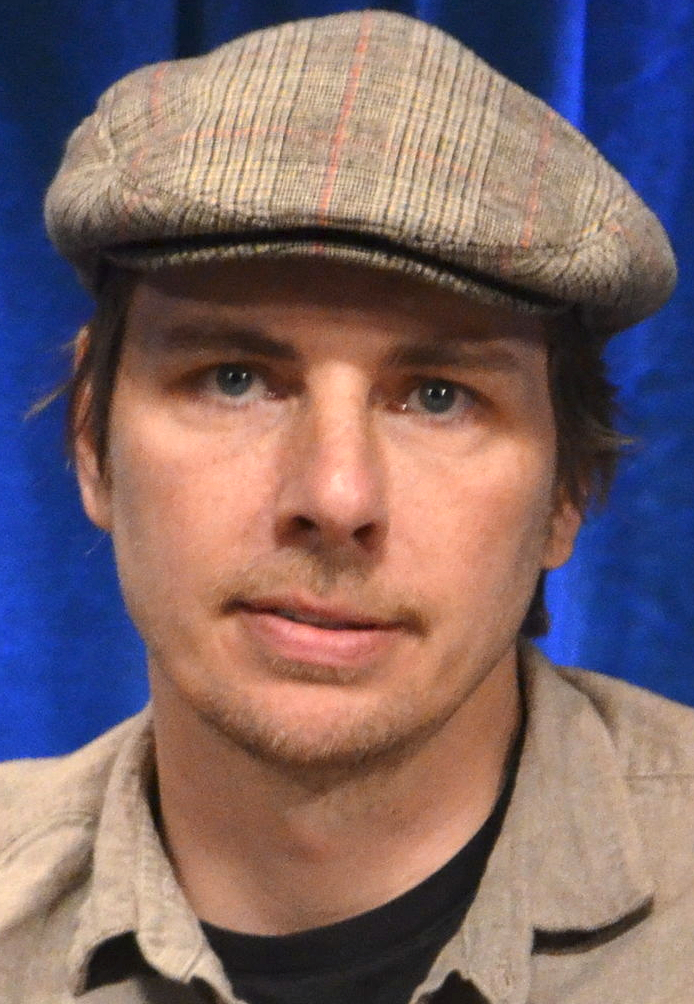
On this date in 1975, Dax Randall Shepard was born in suburban Detroit, the son of Laura LaBo, who worked at General Motors, and David Shepard, a car salesman. He was named Dax for Diogenes Alejandro Xenos, the wealthy playboy in Harold Robbins’ novel “The Adventurers.” His parents divorced when he was 3.
After high school graduation he enrolled in a school operated by the Groundlings, an improvisational and sketch comedy troupe based on Melrose Avenue in Los Angeles. He’d always known he could be funny but had stage fright about doing stand-up in Detroit so he moved to California, thinking “that commitment would force him to do it.” (2014 interview with Marc Maron) He attended Groundlings classes while enrolled at UCLA, where he graduated magna cum laude with a B.A. in anthropology in 2000.
In 2003 he joined the cast of “Punk’d,” a hidden camera, practical joke reality show created by Ashton Kutcher and Jason Goldberg that aired on MTV. In 2004 he starred in “Without a Paddle” with Seth Green and Matthew Lillard, followed by roles in “Employee of the Month” with Dane Cook and Jessica Simpson (2006), “Idiocracy” (2006), “Let’s Go to Prison” (2006) and “Baby Mama” (2008) with Tina Fey and Amy Poehler.
In 2010 he wrote, directed and starred in the low-budget mockumentary “Brother’s Justice” and had a supporting role in the rom-com “When in Rome, which starred his future wife Kristen Bell. From 2010-15 he played Crosby Braverman in the NBC drama “Parenthood.” His other movies since then as of this writing include “Hit and Run” with Bell and Bradley Cooper (2012), “The Judge” (2014), “CHiPs” and “El Camino Christmas” (2017).
His ad with Bell for the Samsung Galaxy Tab S tablet in 2014 garnered over 20 million YouTube views. In 2018 he launched the podcast “Armchair Expert” with co-host Monica Padman. It features the lives of celebrity guests and was the most popular new podcast on iTunes in 2018.
Shepard and Bell started dating in 2007 and got engaged in 2010 but refused to marry until California legalized same-sex unions, which happened in 2013. They have two daughters, Lincoln and Delta. He’s an atheist and Bell is also nonreligious. In 2013 she told Australian Women’s Health that they start their days with a 20-minute transcendental meditation session, sometimes holding hands. On his Twitter account, he describes himself as “Humanist. Comedic actor who is light on both comedy and acting. Alt Centrist.”
PHOTO: Shepard at PaleyFest 2013 in Los Angeles; photo by Genevieve under CC 2.0 Generic.
“I’m an atheist. Slow your roll :)”
— Shepard tweet replying to @JusPressPlay @PerezHilton (March 14, 2017)
Butterfly McQueen
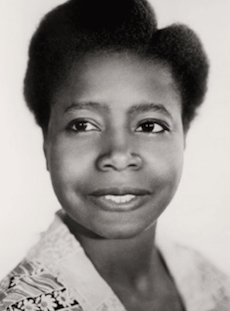
On this day in 1911, Thelma “Butterfly” McQueen was born in Tampa, Fla. She was best known for her role as Prissy in the 1939 MGM movie “Gone with the Wind.” Butterfly, which she changed her legal name to, was a lifelong atheist except for her childhood religious indoctrination.
The role of Prissy, she would later say, “was not a pleasant part to play — I didn’t want to be that little slave. But I did my best, my very best.” She quit movie acting in 1947 to avoid further typecasting, going to work as a real-life maid, Macy’s sales lady and seamstress.
She earned her bachelor’s degree in political science in 1974 at age 64 from the New York City College. McQueen became FFRF’s premiere Freethought Heroine recipient (see that for more interesting biographical details) in 1989 and was an FFRF Life Member. She died in Augusta, Ga., at age 84 from burns sustained when a kerosene heater she was lighting malfunctioned and burst into flames. (D. 1995)
“As my ancestors are free from slavery, I am free from the slavery of religion.”— Butterfly McQueen, Atlanta Journal and Constitution (Oct. 8, 1989)
Sarah Polley
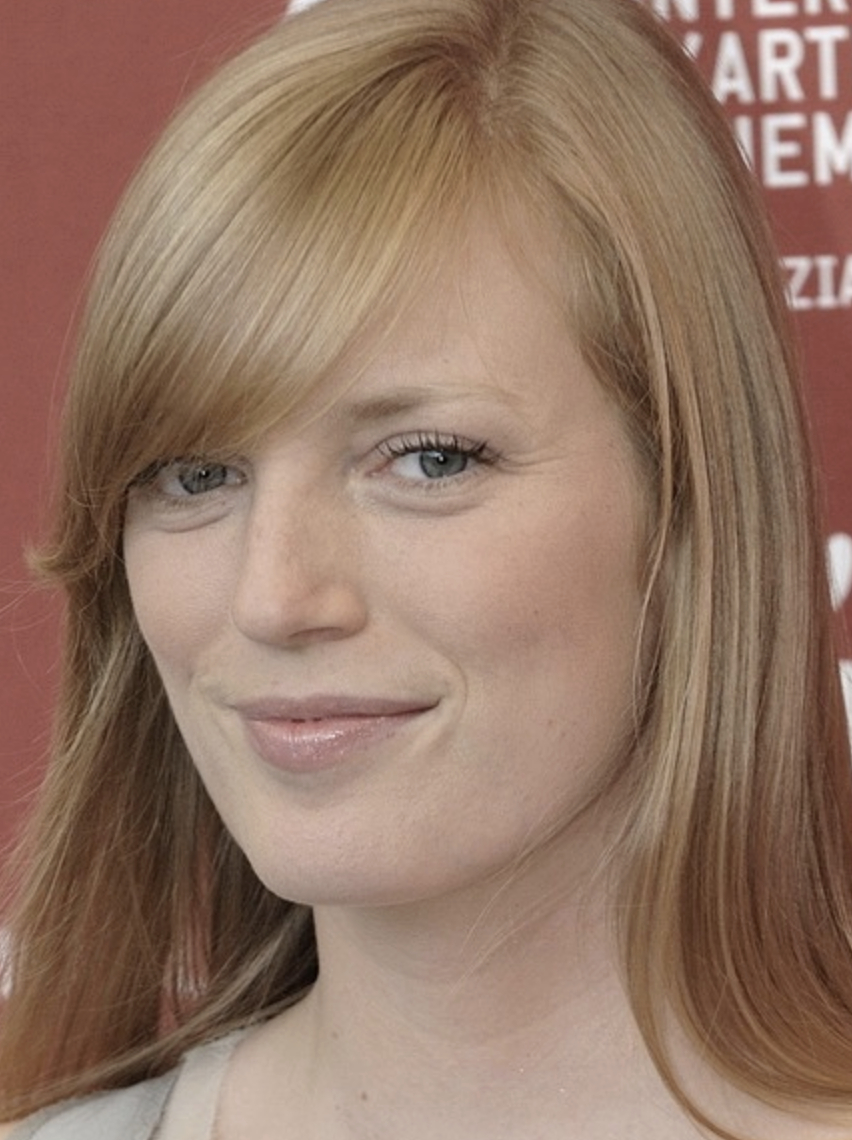
On this date in 1979, actress and filmmaker Sarah Ellen Polley was born in Toronto, Canada, to Diane (née MacMillan) and Michael Polley. Her British father and her mother both had acting backgrounds. She would learn as an adult that her biological father was actually film producer Harry Gulkin, with whom her mother had had an affair. (“Stories We Tell” documentary, 2012)
Her mother had died of cancer when Polley was 11. Her home life started a downward spiral, moving from an “incredibly boisterous place, with music playing all the time, and political discussions, and books being discussed, and laughter” to life with a depressed dad in which she was basically left to her own devices and stopped going to school. By age 15, she had lived with her brother’s ex-girlfriend, her first boyfriend and then alone. (The New Yorker, March 13, 2022)
“[The Ontario Coalition Against Poverty] took me in when I was 15, living on my own, with no community. They gave me a political education and a place to belong. It’s why, to this day, I don’t understand why many progressives are so focused on being ‘civil’ and ‘polite’ about the war on the poor,” she later wrote. (Twitter, Nov. 27, 2020)
Asked as an adult how she got into acting, Polley said that as a child of about age 5 or 6, she and her older siblings (she was the youngest) were surrounded by it. “My dad had been an actor — he wasn’t when I was a kid, he was working at an insurance company to support the family — and my mom was a casting director and produced comedy shows.” (Ibid., The New Yorker)
Her first credited movie role was in Disney’s “One Magic Christmas” (1985), starring Harry Dean Stanton and Mary Steenburgen and filmed in Ontario. Her first major role was at age 8 as Ramona Quimby in the Canadian TV series “Ramona” (1988), based on Beverly Cleary’s books. It aired for one season before going to video. Her role in the popular series “Road to Avonlea” (1990-96) made her financially independent and she was dubbed “Canada’s Sweetheart” by some in the press.
“Avonlea” was picked up by the Disney Channel for U.S. distribution. At age 12 she attended an awards ceremony while wearing a peace sign to protest the first Gulf War. Disney executives asked her to remove it but she refused, not a decision the company liked.
“The Sweet Hereafter” (1997), in which she sang three songs and co-wrote the title track, brought her to the attention of more of the public outside Canada. Subsequent roles of note included “Go” (1999), “My Life Without Me” (2003), a remake of “Dawn of the Dead” (2004) and “The Secret Life of Words,” opposite Tim Robbins and Julie Christie, for which she was nominated as Best European Actress by the European Film Academy.
Polley made her feature film directorial debut with “Away From Her” (2006), for which she won the Canadian Screen Award for Best Director and was nominated for the Academy Award for Best Adapted Screenplay. In 2017 she wrote the six-part miniseries “Alias Grace,” based on the 1996 novel of the same name by her longtime friend Margaret Atwood, which Polley had started adapting in 2012.
She was married to film editor David Wharnsby from 2003-08. She married David Sandomierski in 2011. He went on to become a law school professor at Western University in London, Ontario. They have three children together. She suffered a debilitating concussion in 2016 when struck on the head by a fire extinguisher hung over a lost-and-found box at her pool and community center. It would seriously affect her ability to work for over four years.
“Women Talking,” written and directed by Polley, had its world premiere at the Telluride Film Festival in September 2022. It’s based on Miriam Toews’ 2018 novel about several Mennonite women who come to realize they have all been drugged and raped by men in their community.
Polley admires directors Ingmar Bergman and Terrence Malick, saying that Malick’s “The Thin Red Line” (1998) “single-handedly brought me out of a deep depression. It shifted something in me. I’m an atheist, but it was the first time that it gave me faith in other people’s faith.” (Toronto Life magazine, October 2006)
PHOTO: Polley at the 2009 Venice Film Festival; Nicolas Genin photo under CC 2.0.
“I don’t have faith in anything but my fellow human beings and the world around me. I have strong faith in people, but not beyond people. The world is a beautiful place, it’s a beautiful enough place for me to worship and have faith in and — it’s enough for me.”
— Polley, quoted in "She Should Talk: Conversations With Exceptional Young Women About Life, Dreams & Success" by Erica Ehm (1994)
Paul Newman
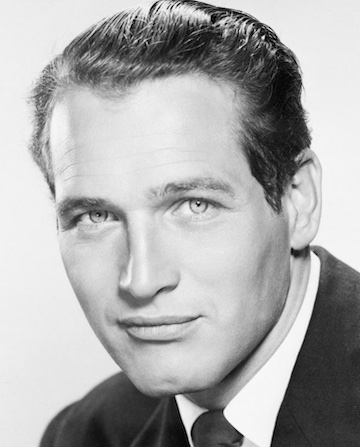
On this date in 1925, actor and philanthropist Paul Newman was born in a suburb of Cleveland, Ohio, to a Catholic mother and a Jewish father. Newman enlisted in the Naval Air Corps but his service was cut short due to color blindness. He served in the Navy in the South Pacific during World War II. Upon his return from the war, Newman enrolled at Kenyon College, Ohio, and received his B.A. in 1949.
He worked in summer stock, married Jackie Witte, with whom he had three children, enrolled at the Yale University grad program in acting, then left it for Broadway. His first Broadway success was playing the lead in “Picnic” (1953). Newman was admitted to the Actor’s Studio, studying “method” acting. His first film, “The Silver Chalice,” came out in 1954 and was a flop. His breakthrough role was portraying boxer Rocky Graziano in “Somebody Up There Likes Me” (1956). He met actress Joanne Woodward while making “The Long, Hot Summer” (1957) and married her in 1958. They had three daughters.
Newman was nominated often for “best actor” Oscars for such movie classics as: “Cat on a Hot Tin Roof” (1958), “The Hustler” (1961), “Hud” (1963) and “Cool Hand Luke” (1967). He won for “The Color of Money” (1987). Other films include “Butch Cassidy and the Sundance Kid” and “The Sting,” in which he was paired with Robert Redford.
Newman founded “Newman’s Own” line of food, donating much of the proceeds to charity. Newman was listed on the website of the Unitarian Universalists, which is creedless, as one of its famous members. According to Who’s Who in Hell, edited by Warren Allen Smith, Newman once told TV interviewer Barbara Walters that he didn’t believe in an afterlife. (D. 2008)
“Although never overtly religious, Newman said he chose to think of himself as Jewish because it was ‘more challenging.’ “
— Associated Press obituary (Sept. 27, 2008)
Patton Oswalt
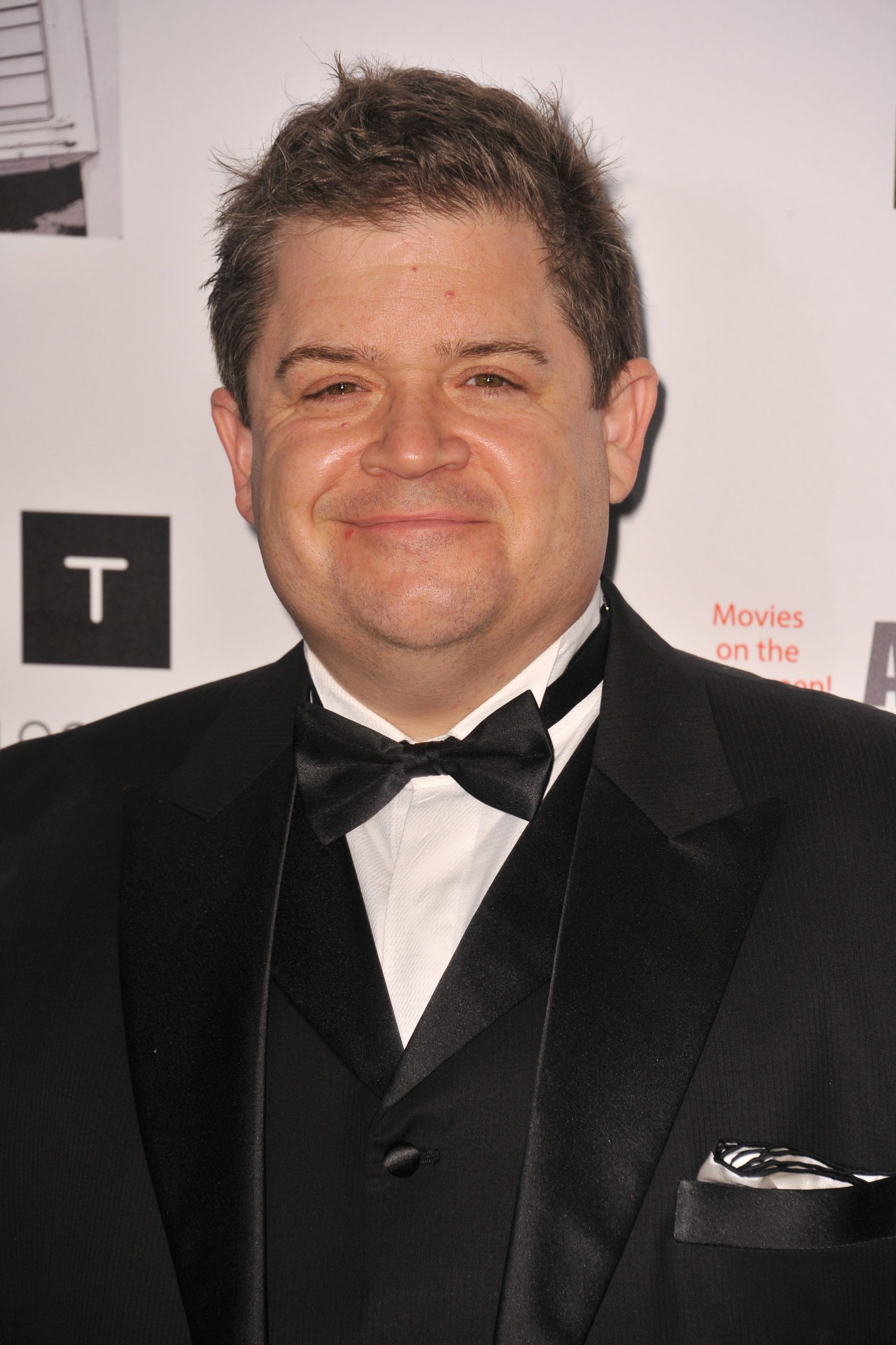
On this date in 1969, Patton Oswalt was born in Portsmouth, Va. His father was a Marine Corps officer who named him after Gen. George S. Patton. Oswalt began to perform stand-up comedy in the late 1980s, before graduating from the College of William and Mary in 1991. He became widely known after he starred in an HBO comedy special in 1996. He began to headline at comedy clubs nationwide and also started his career as an actor.
Much of his comedic material addresses popular culture and his daily life, but he has been known to mock religion and religious believers. For example, his “Sky Cake” routine characterizes religion as a trick played by smart weak guys on big dumb guys. He describes himself as an atheist.
From 1998 to 2007, Oswalt was a regular on the CBS show “The King of Queens,” playing the role of Spence. He has appeared in many small roles in movies, as a guest star on television shows including “Dollhouse” and “Nurse Jackie,” and done voice work for movies, television and video games. Notably, he voiced the main character, the rat Remy, in the 2007 Pixar film “Ratatouille.” He also starred in the 2009 live-action film “Big Fan.”
His supporting role in Jason Reitman’s black comedy “Young Adult” (2011) was nominated for several awards. Oswalt has also written for TV and film, as well as doing uncredited work on a variety of live-action comedy and animated film scripts.
In 2011 Oswalt released the book Zombie Spaceship Wasteland and appeared in “A Very Harold & Kumar 3D Christmas.” He originated the role of Billy Stanhope on “Two and a Half Men.” His memoir Silver Screen Fiend: Learning About Life from an Addiction to Film was published by Simon & Schuster in 2015, when it was announced he would appear in the reboot of “Mystery Science Theater 3000.” His comedy special “Talking for Clapping” was released on Netflix in 2016 and his special “Annihilation” followed in 2017 on Netflix.
Oswalt married true-crime writer Michelle McNamara in 2005 and they had a daughter, Alice, in 2009. McNamara had a very sad, untimely end at age 46 in 2016. He married actress Meredith Salenger the following year.
“My feelings on religion are starting to morph. I’m still very much an atheist, except that I don’t necessarily see religion as being a bad thing. … I’m almost saying certain people do better with religion, the way that certain rock stars do better if they’re shooting heroin.”
— Oswalt, The Onion A.V. Club (Aug. 31, 2011)
Alan Alda
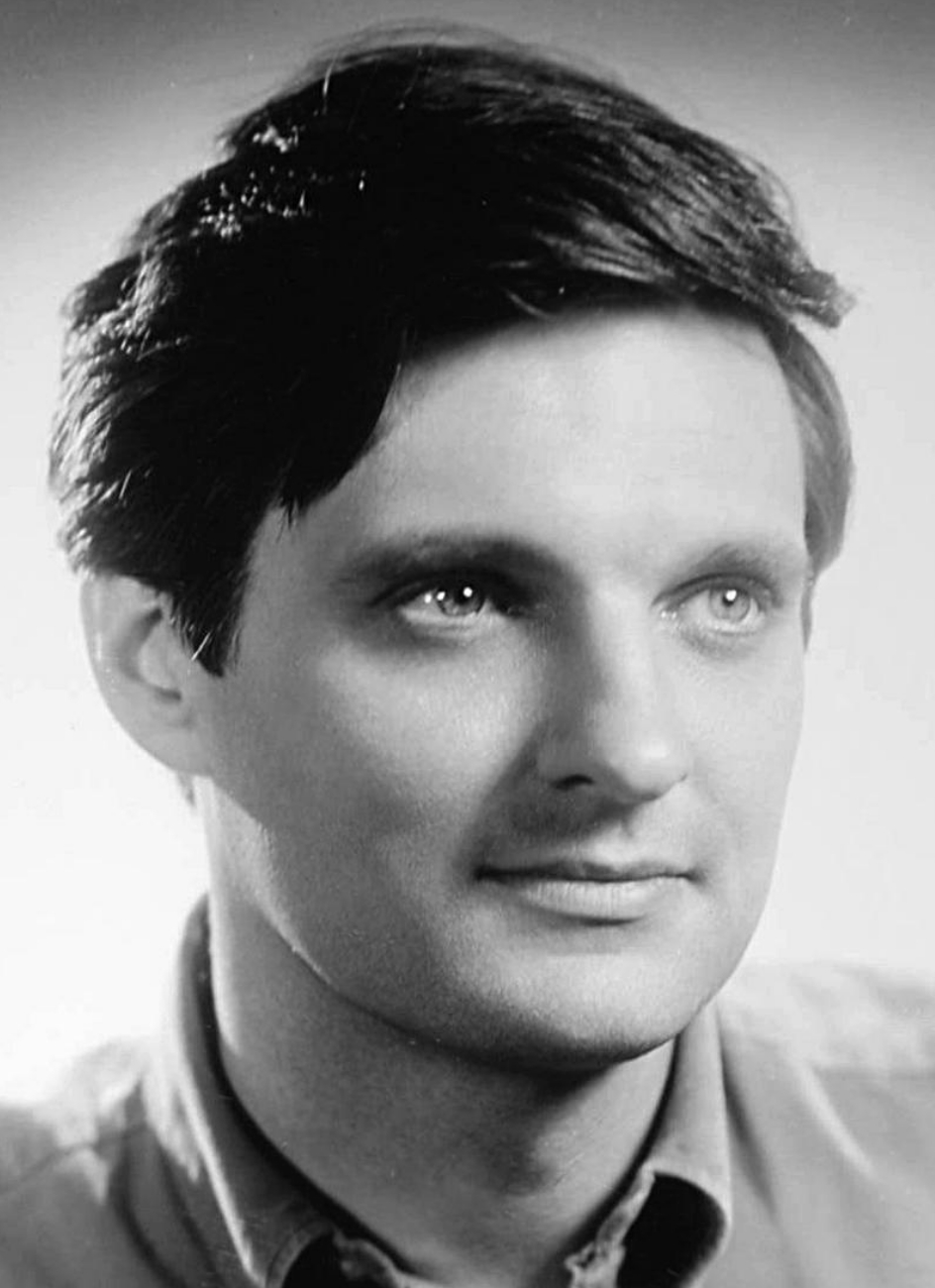
On this date in 1936, Alan Alda (né Alphonso Joseph D’Abruzzo) was born in Bronx, N.Y., to actor Robert Alda and Joan Browne Alda. He began acting at the age of 16, a hobby that he continued during his time at Fordham University, where he earned his bachelor’s degree in English in 1956. After graduating, he spent time performing at the Cleveland Playhouse and on Broadway. Alda’s best-known acting role is starring as surgeon Hawkeye Pierce on the television show “M*A*S*H” (1972-83), for which Alda wrote and directed numerous episodes.
Alda has acted in numerous movies, including “Crimes and Misdemeanors” (1989) and “The Aviator” (2004), for which he was Oscar-nominated as Best Supporting Actor. He has also written and directed films such as “The Four Seasons” (1981) and performed in Broadway plays, including “QED” (2001-02), in which he portrayed Richard Feynman. In 2019 he received a Lifetime Achievement Award from the Screen Actors Guild. He has written two books, Never Have Your Dog Stuffed (2005) and Things I Overheard While Talking to Myself (2007).
Alda hosted the television shows “Scientific American Frontiers” (1993-2007) and “The Human Spark” (2010). He was awarded a People’s Choice Award for Favorite Male Actor in 1975 and won an Emmy in 2006 for his portrayal of a Republican senator on “The West Wing” (2004-06). Alda’s character, Sen. Arnold Vinick stopped going to church and often battles the Religious Right in his own party.
He married photographer Arlene Weiss in 1957 and they have three daughters: Eve, Elizabeth and Beatrice.
Alda is open about his lack of belief but prefers to identify simply as a nonbeliever rather than as an atheist or agnostic. He told the Edge Foundation, “I still don’t like the word agnostic. It’s too fancy. I’m simply not a believer. But, as simple as this notion is, it confuses some people. Someone wrote a Wikipedia entry about me, identifying me as an atheist because I’d said in a book I wrote that I wasn’t a believer.”
“For a while in my teens, I was sure I had it. It was about getting to heaven. If heaven existed and lasted forever, then a mere lifetime spent scrupulously following orders was a small investment for an infinite payoff. One day, though, I realized I was no longer a believer, and realizing that, I couldn’t go back.”
— Alda, "Things I Overheard While Talking to Myself" (2007)
W.C. Fields
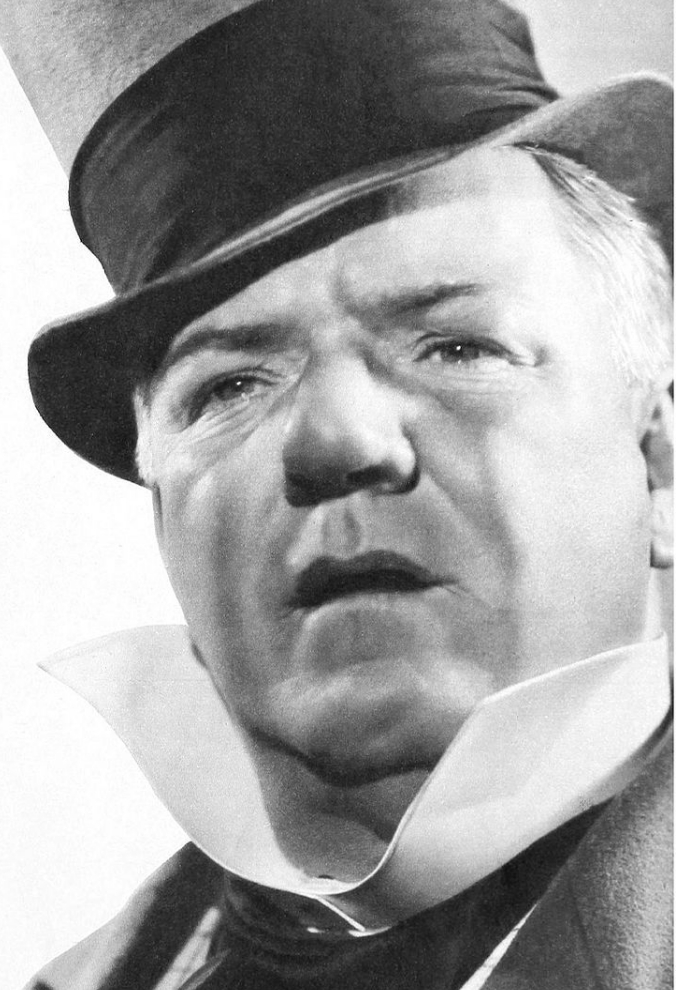
On this date in 1880, comedian W.C. Fields (né William Claude Dukenfield) was born in Philadelphia. His father was a Cockney immigrant and his mother a native Philadelphian. Fields dropped out after four years of schooling to work with his father, who ran a horse-drawn vegetable cart. A rough home life drove Fields away by the age of 11. He lived on the streets, was occasionally beaten up and sometimes jailed.
By 13 he had become skilled at juggling and playing pool. That year he moved to Atlantic City, where he was hired to juggle (perfecting the appearance of losing his juggling pieces) and, when business was slow, to pretend to drown for crowd amusement.
At 19 he was dubbed “The Distinguished Comedian.” By 23 he had played at Buckingham Palace in London, appearing the same evening as Sarah Bernhardt. Fields was on the program with Charles Chaplin and Maurice Chevalier at the Folies-Bergeres. Fittingly, his first movie, at age 35, was “Pool Sharks” (1915).
Fields appeared in 37 movies, including “David Copperfield” (despite his adage “Never work with animals or children”) and “My Little Chickadee” (1940). Known for his poses as a caustic curmudgeon and imbiber, Fields actually had two sons (one outside marriage who was raised by foster parents) and did not appear in public inebriated.
In 1945, crippled by arthritis and weakened by cirrhosis of the liver, he moved out of his Bel Air home into Las Encinas Sanitarium, where he died on Christmas Day 1946 of a gastric hemorrhage at age 66. His son and estranged wife contested a clause in his will leaving part of his estate to establish a “W. C. Fields College for Orphan White Boys and Girls, where no religion of any sort is to be preached.” (Man on the Flying Trapeze: The Life and Times of W.C. Fields by Simon Louvish, 1997.)
Actor Edgar Bergen, speaking at Fields’ memorial service in Forest Lawn, said: “Of the five hundred religions in the world he had his own, and he hoped his friends would understand his requests. It seems wrong not to pray for a man who gave such happiness to the world. But this is the way he wanted it.” (D. 1946)
PHOTO: Fields as Micawber in the 1935 film “David Copperfield.”
“[Fields] regarded all religions with the suspicion of a seasoned con man.”
— "W.C. Fields: A Biography" by James Curtis (2004)
Madison Arnold
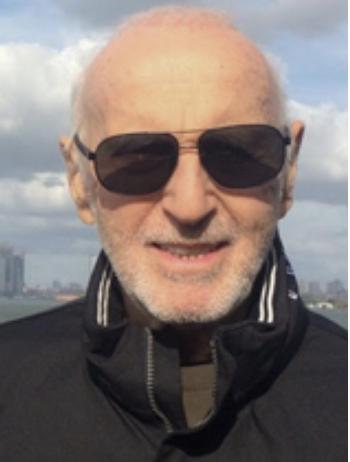
On this date in 1936, character actor Madison Arnold, who had roles in plays, films and television, was born in Allentown, Pa. Arnold graduated from Erasmus Hall High School in Brooklyn, NY, and Brooklyn College. He earned a master’s in European history from Columbia University and received scholarships to study abroad in Vienna and Berlin, where he did two years of postgraduate work in history, philosophy and languages.
Arnold, named after James Madison as a tribute to religious freedom in America, said in Freethought Today (March 1989): “I had a Jewish family background and have been an atheist as long as I can remember.” He and his brother refused to be bar-mitzvah’ed. Later, serving in Germany in the U.S. Army’s Second Armored Division, he was confronted with dog-tag preferences that provided no option for “atheist.”
Though he is best known for his television work, some film titles include “Escape from Alcatraz” (1979), “Xanadu” (1980), “The Lonely Guy” (1984), “Presumed Innocent” (1990), “The Turning” (1992), “White Lies” (1996), “Donnie Brasco” (1997), “Gracie” (2007) and “Monogamy” (2010). Some of his many television credits include: “Serpico” (1976), “Kojak” (1976-1978), “Baretta” (1978), “The Bionic Woman” (1977-1978), “Starsky and Hutch” (1976-1978), “Barney Miller” (1980), “Whiz Kids” (1980), “Hill Street Blues” (1985-1986), “Law & Order” (1999-2009), “Law & Order: Special Victims Unit” (2000-04) and “The Big C” (2010).
Most recently as of this writing, he appeared in three episodes of “The Village” series in 2019 on NBC.
Arnold, who has described himself as a “militant atheist” and even an “atheist of the hostile sect,” says there was never a time when he was not an atheist. “As a kid I looked up and saw no god and I wondered where ‘he’ got such a large notebook to write down X’s when I am bad, as I was told he did.” (Freethought Today, March 1989)
PHOTO: Courtesy of Madison Arnold
“I never accepted religion so I had nothing to reject as such. The history of ‘Christiansanity’ (my own coinage of which I am proud!) is so brutal of mind, emotions, freedom, progress, science and all that I hold precious, that by any standards of justice its leaders in almost any given period would be incarcerated for life, or worse!”
— "Madison Arnold: Actor, Activist, Atheist" (Freethought Today, March 1989)
William Jackson Harper

On this date in 1980, American actor and playwright William Jackson Harper was born in Dallas as William Fitzgerald Harper. Harper grew up in a heavily conservative Christian home. “When I was a kid, they made us write these essays about what heaven would be like. I went to this Christian school in Texas, and the thing that I wrote was no bees. No bees. No mud. No infirmities,” he told Ebony magazine.
In 2003, he graduated from the Santa Fe University of Art and Design. Harper began his acting career in the realm of theater and was cast in 2014 as James Harrison and Stokely Carmichael in “All the Way,” his Broadway debut. His most notable television role is Chidi Anagonye, a moral philosophy professor on “The Good Place” (2016). The first play he wrote, “Travisville,” was inspired by the Texas civil rights movement and premiered at the Ensemble Studio Theater in October 2018.
Dominique Redfearn photo, cropped. Creative Commons Attribution 2.0
“I was raised C.O.G.I.C., which is Church of God in Christ, a very conservative, very strict denomination of Christianity in the black community. I think all my neuroses come from having been religious. I hit a point of very studied agnosticism. I kind of like to believe in nothing and everything.”
— William Jackson Harper, New York Times interview, Sept. 14, 2018
Leslie Nielsen
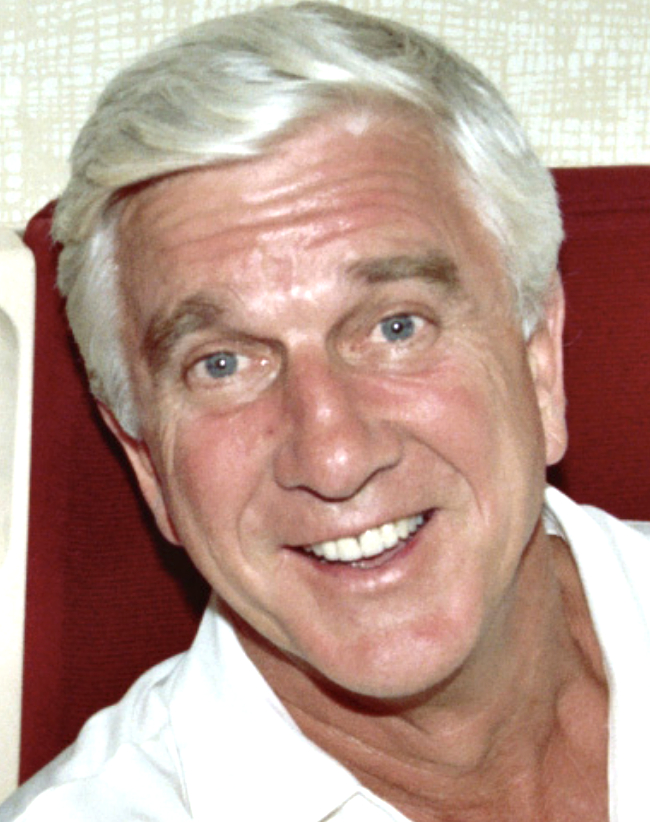
On this date in 1926, actor Leslie Nielsen, the oldest of four sons, was born to Ingvard and Maybelle Nielsen and spent his early childhood in Regina, Saskatchewan, Canada. Nielsen credited his father, a strict disciplinarian and an officer in the Royal Canadian Mounted Police, for giving him his first acting experiences: He frequently had to lie to his father in order to avoid being punished!
When Nielsen and his brother Eric, who grew up to become deputy prime minister, were old enough to start school, the family moved to Edmonton, Alberta. After graduation, Nielsen joined the Royal Canadian Air Force, where he was an aerial gunner for one year overseas. After World War II, he worked at a Calgary radio station, then enrolled in The Lorne Greene Academy of Radio Arts in Toronto.
Falling in love with acting, Nielsen, 23, earned a scholarship to study at the Neighborhood Playhouse in New York City. Quickly given parts on television shows, Nielsen continued in that medium for the next few years, playing dramatic roles. In the 1950s, Nielsen became interested in film, moved to Hollywood and made his big screen debut in “Forbidden Planet” (1956). He made more than 50 films over the next 20 years.
In 1980 Nielsen was an instant hit as the humorless doctor in the comedy spoof “Airplane!” He went on to play the inept police officer, Det. Frank Drebin, in the TV series “Police Squad!” Continuing to hit his stride in comedy, he got his big breakthrough in 1988, reprising the role of Drebin for film in “Naked Gun: Files From the Police Squad.” His success continued with the sequels, “Naked Gun 2 1/2: The Smell of Fear” (1991) and “Naked Gun 33 1/3: The Final Insult” (1994).
Switching back to drama in 1996 but in a new genre, Nielsen played the lead in the stage production of “Clarence Darrow,” a one-man show that had originated with freethinker Henry Fonda. Nielsen’s long career boasted more than 200 films and television programs. Winner of numerous awards, Nielsen received a star on the Hollywood Walk of Fame in 2001, was inducted into Canada’s Walk of Fame and received UCLA’s Jack Benny Award for his comedic roles.
Married and divorced three times, Nielsen resided in Arizona with his fourth wife and longtime friend, Barbaree Earl, until his death at age 84. He had two children. D. 2010.
“There’s an old saying that God exists in your search for him. I just want you to understand that I ain’t looking.”
—Esquire magazine interview, April 2008
Natalie Dormer
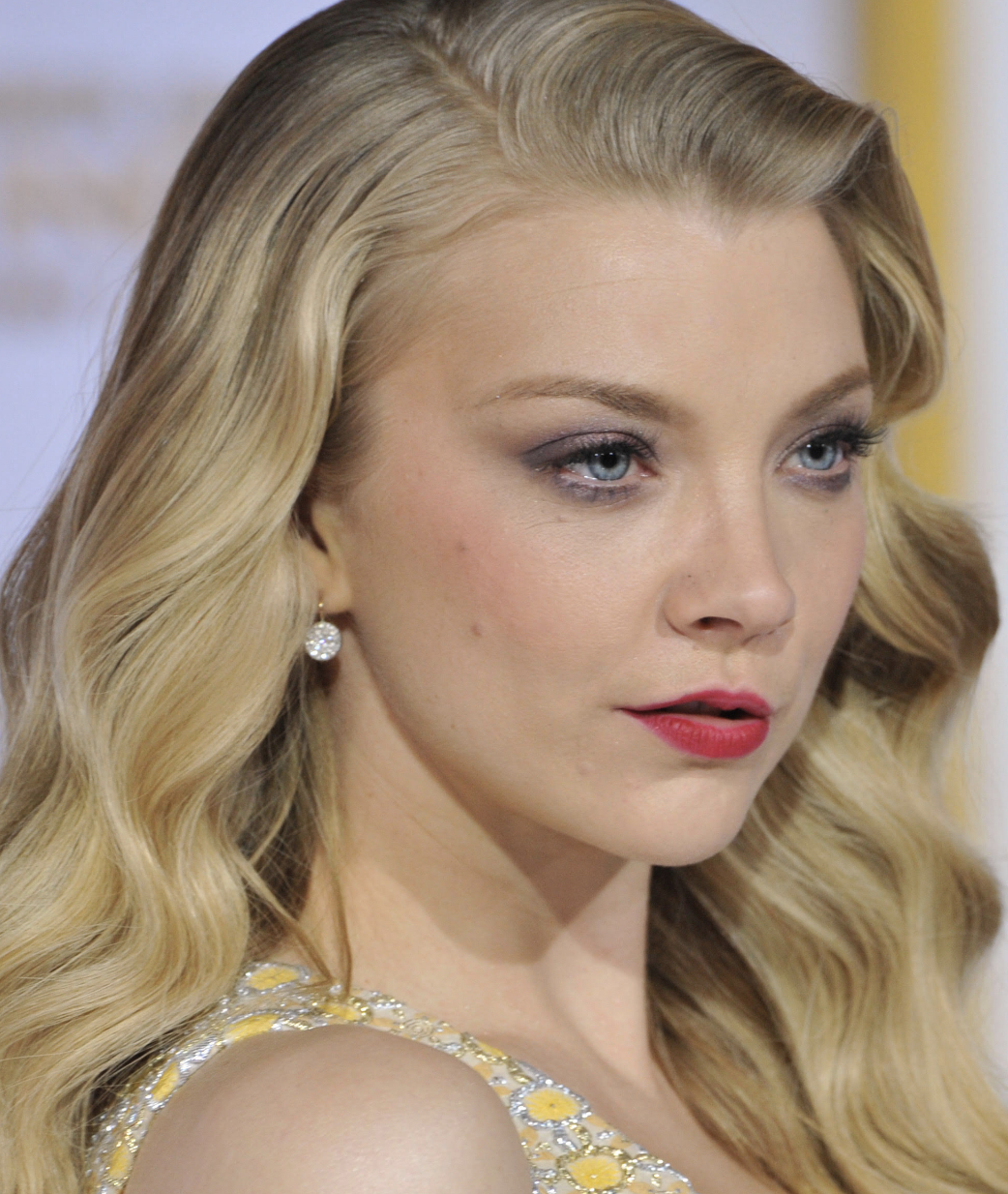
On this date in 1982, English actress Natalie Dormer was born in Reading, Berkshire. She studied drama at Webber Douglas Academy of Dramatic Art in London. Dormer is known for playing Anne Boleyn in the television show “The Tudors” and Margaery Tyrell in the HBO fantasy show “Game of Thrones” (2012-16). She also appeared in “Casanova” (2005), a romantic comedy starring Heath Ledger and Sienna Miller, and in “The First Avenger: Captain America” (2011). She was cast as Ilene Adler in the 2013 American adaptation of “Sherlock” titled “Elementary” and had roles in “The Forest” (2016), “In Darkness” (2018) and “The Professor and the Madman” (2019).
On World Humanitarian Day in 2016, Dormer gave a speech at UN headquarters in New York City to highlight the plight of refugees around the world, particularly the violence suffered by women and girls. In 2017 she visited Tanzania with the development and humanitarian group Plan International. The visit was part of a drive to ban child marriage.
PHOTO: Dormer at the Los Angeles premiere of “The Hunger Games: Mockingjay Part One” in 2014; photo via Shutterstock by Jaguar PS.
“I say I’m an atheist but I wouldn’t mind being visited by a ghost.”
— Dormer interview with Tudor News (Dec. 17, 2007)
Henry Rollins
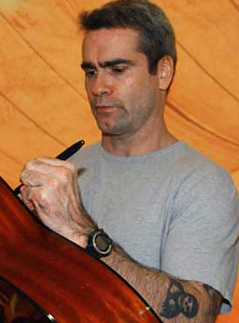
On this date in 1961, Henry Rollins (né Henry Lawrence Garfield) was born in Washington, D.C. After high school, Rollins worked on the crew of several D.C. punk bands including Teen Idles. He sometimes filled in for absent lead singers. By 1980, talk of his vocal ability had spread around the D.C. punk rock scene. Rollins became the lead vocalist and lyricist of a band called State of Alert. He was promoted to manager of an ice cream store in Georgetown, which he used to fund his musical hobby.
Rollins became a huge fan of the punk band Black Flag, exchanging letters with its bassist and attending as many concerts as he could and even putting the band up in his parents’ home during an East Coast tour. The band was won over by Rollins’ vocal talent and stage presence. He joined Black Flag as its new frontman and lead singer, quit his manager position, changed his name from Garfield to Rollins and moved to Los Angeles.
Black Flag disbanded in 1986, but Rollins was already touring successfully as a solo artist. He released three solo albums in 1987: Hot Animal Machine, with guitarist Chris Haskett, Drive by Shooting and Big Ugly Mouth. In that same year, Rollins assembled an alternative hard rock group called Rollins Band, active until 2003. Their first chart-topping album was The End of Silence (1992). In 2000, Rollins Band was 47 on VH1’s list of 100 Greatest Artists of Hard Rock. Rollins won a Grammy Award in 1995 for Best Spoken Word Album for Get in the Van: On the Road with Black Flag, a recording of Rollins reading his memoir of the same title.
Rollins has appeared on numerous television series, including MTV’s “Oddville,” (1997), “Batman Beyond” (2001), “The Henry Rollins Show” (2006-2007) and “Sons of Anarchy” (2009). He has authored several books, including a trilogy based on his travels called Black Coffee Blues (1992). He has also appeared in over a dozen films, including “Heat” (1995) with Al Pacino, “Lost Highway” (1997) with Bill Pullman, “Jackass The Movie” (2002) and “Jackass The Movie Two” (2006). Rollins is an activist for gay and human rights. An outspoken war critic, he is strongly supportive of troops.
Rollins said on SIRIUS XM radio: “I’m sure there’s gay people who are Catholics. How do they reconcile that? How do they reconcile that somewhere in the paperwork their religion doesn’t like them?” (“Ron & Fez on The Virus,” video, date unknown). On the same show, Rollins reacted to the expulsion of the child of two lesbians from a Catholic preschool: “When you encounter that kind of hatred, leave. … I was happy that the kid got expelled because maybe the kid has a chance now. They can be put into a place without discrimination, that doesn’t eventually make part of the curriculum to exclude people, like homosexuals.”
Rollins occasionally used “The Henry Rollins Show” to passionately critique religion: “Christian fundamentalists see their fingers being pulled off the steering wheel as their oppressive shackles are more and more being seen as fear-based nonsense” (video, date unknown). Friends with actor William Shatner, he contributed to the mostly secular “Shatner Claus: The Christmas Album” in 2018.
PHOTO: Rollins signing an airman’s guitar during a 2003 USO tour in Iraq.
“In the theory of evolution there is no talk of God and no Bibles are used. They’re not looking for higher powers, extraterrestrials, or anything else that could be found in the science fiction section, because they are not dealing with fiction.”
— Henry Rollins, on an episode of "The Henry Rollins Show” (date unknown)
Simon Pegg
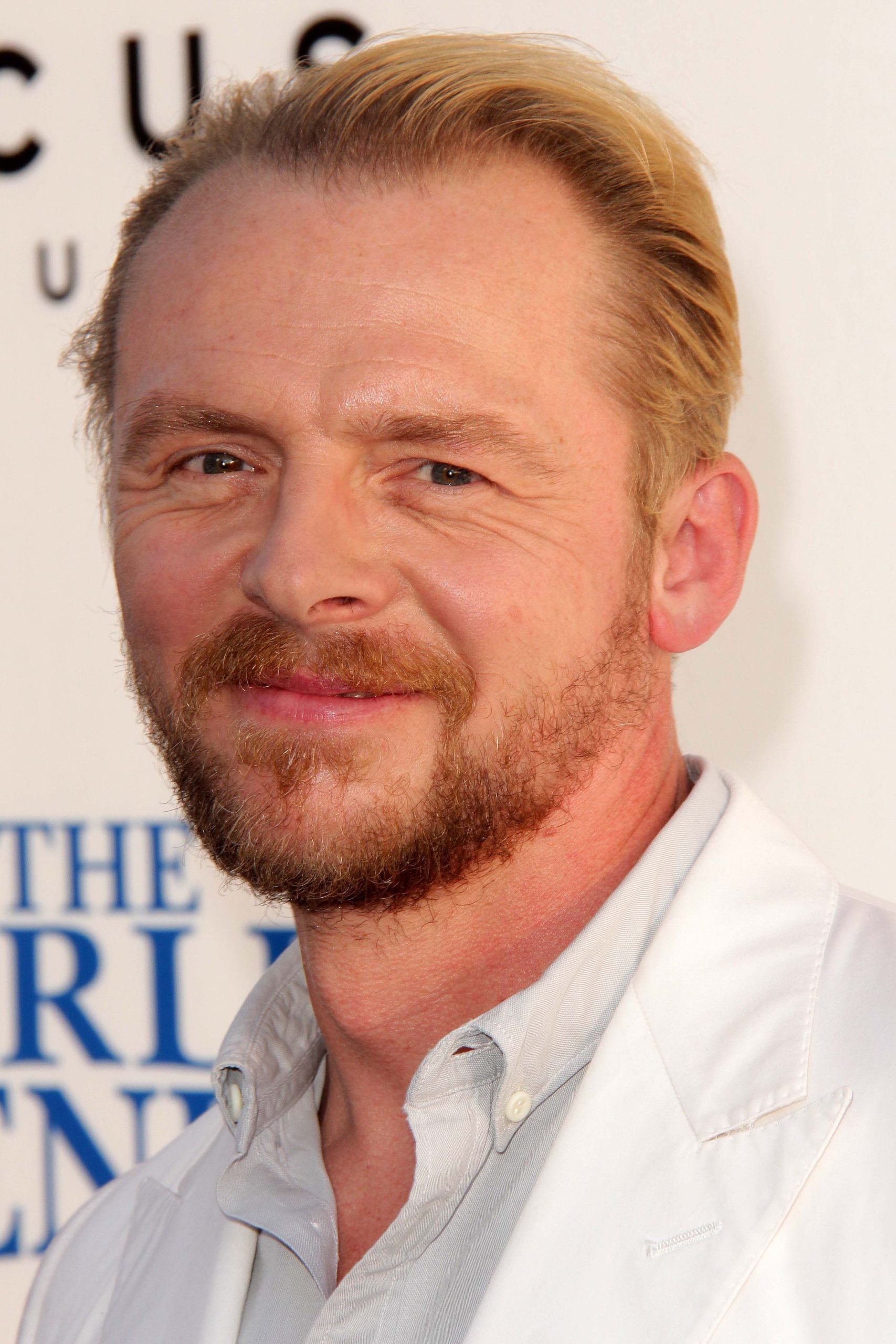
On this date in 1970, actor, screenwriter, comedian and author Simon John Pegg (né Beckingham) was born to parents Gillian Rosemary (née Smith), a civil servant, and John Henry Beckingham, a jazz musician, in Brockworth, England. Following his parents’ divorce when he was seven, Pegg adopted his stepfather’s surname.
Showing a penchant for comedy at a young age, Pegg was the drummer of a band called “God’s Third Leg” when he was 16. Pegg studied English literature and performance studies at Stratford-upon-Avon College, later graduating from Bristol University in 1991 with a bachelor’s degree in theater, film and television.
Moving to London, Pegg pursued a career in standup comedy, which soon led to television opportunities. He emerged into the spotlight after co-writing and co-starring in the sitcom “Spaced” (1999-2001), for which he won a British Comedy Award. For the show, Pegg worked with writer and director Edgar Wright and co-star Nick Frost, who also happened to be his best friend and flatmate. Following the success of the show, Pegg continued to work with them, creating his most lauded films in the Three Flavours Cornetto Trilogy — “Shaun of the Dead” (2004), “Hot Fuzz” (2007) and “The World’s End” (2013).
Pegg’s other major roles include parts in “Doctor Who” (2005), “Mission: Impossible III” (2006), “Run Fatboy Run” (2007), “How to Lose Friends and Alienate People” (2008), “Star Trek” (2009), “Mission: Impossible: Ghost Protocol” (2011), “Paul” (2011) and “Star Trek into Darkness” (2013). Pegg has also done voice parts for “Ice Age: Dawn of the Dinosaurs” (2009), “The Chronicles of Narnia: The Voyage of the Dawn Treader” (2010) and “The Adventures of Tintin” (2011).
Pegg married Maureen McCann in 2005 and they have one child.
“As an atheist, I’d skip the prayer and go straight to the colonel, who is arguably the god of affordable, bucket housed fried chicken bits.”
— Pegg, from his Twitter account (Nov. 18, 2010)
Christopher Eccleston
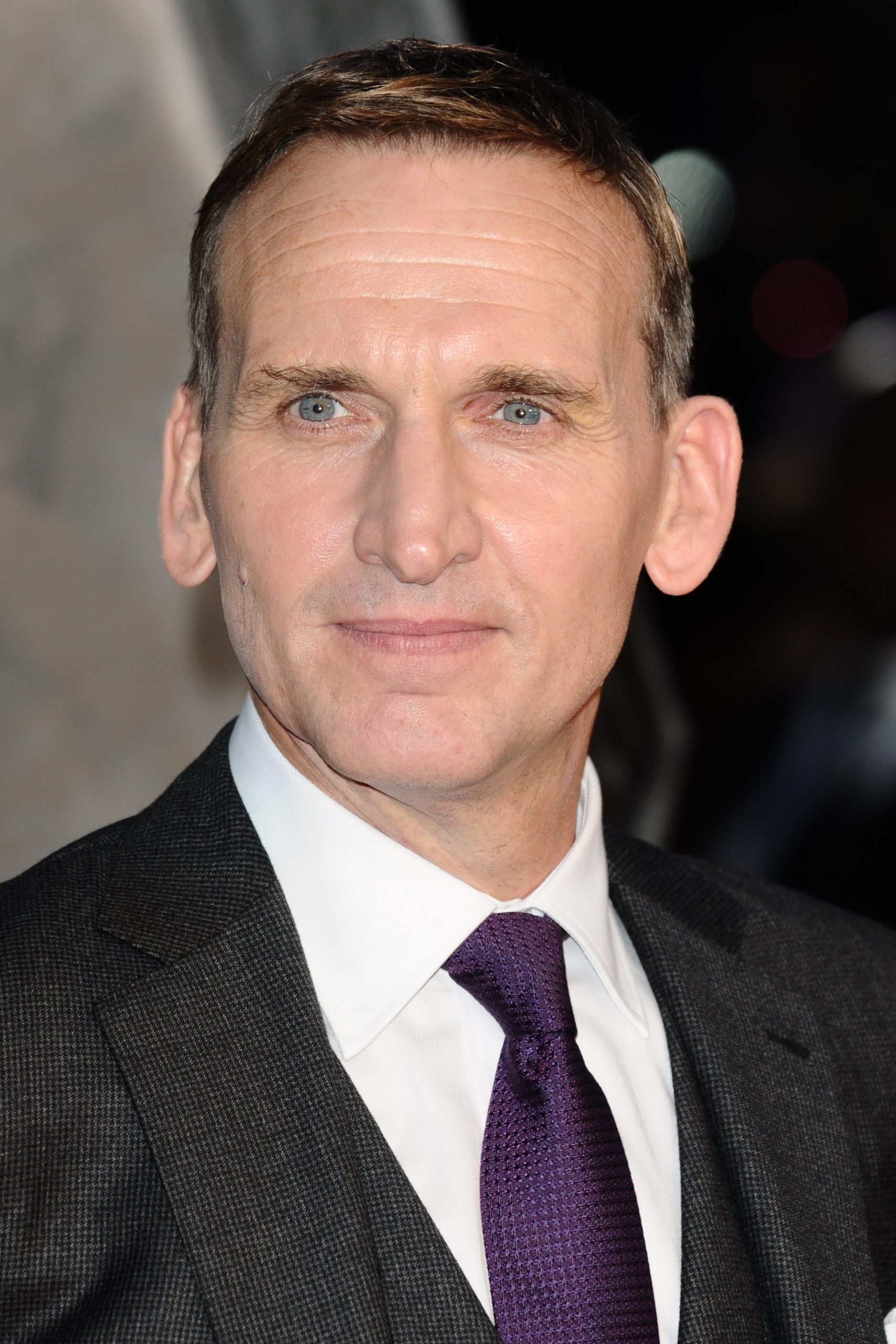
On this date in 1964, actor Christopher Eccleston was born in Little Hulton, near Lancashire, England, to working-class parents. He studied at the Central School of Speech and Drama and soon found himself performing the works of Shakespeare, Chekhov and Moliere. At 25 he made his professional stage debut in Bristol, performing in “A Streetcar Named Desire.” His role in the film, “Let Him Have It” (1991), brought him public notice. But it was the British TV series, “Cracker” (1993-94), which brought him fame in the UK.
In the movie based on the Thomas Hardy book “Jude” (1996), he played the title role opposite actress Kate Winslet. He played the ninth doctor in “Doctor Who,” winning “most popular actor” from the National Television Awards (2005). He has had numerous roles since on stage, screen and television, mainly in the UK.
After years of publicly declaring himself an atheist, Eccleston told NPR’s Terry Gross in 2016 that the death of his father and the birth of his children made him reconsider and call himself agnostic. Then in 2019 he returned to identifying as an atheist.
He and his wife Mischka, a copywriter 20 years his junior, married in 2011 and divorced in 2015 after having two children.
“I’m an atheist. My mother is very religious, a churchgoer. She would often encourage me to go to church as well, but never forced it upon me, which I thought was quite decent of her. “
“There was no defining moment in which I decided there was no god for me. It was more of a growing process. I do feel that whatever religious beliefs I had as a child were foisted upon me. It’s like when you ask where Grandma went when she died, and you’d be told that she went to heaven. I wouldn’t necessarily view that as a bad thing, but it was stuff like that which I think hindered my intellectual development. Now that I’ve grown, I prefer a different interpretation.”
— Eccleston, "The Heaven and Earth Show," BBC1 (April 3, 2005)
Matt Dillon
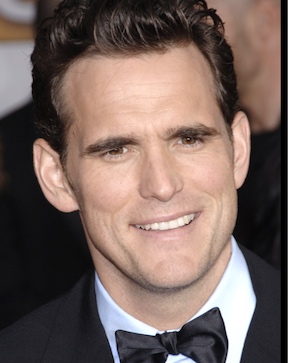
On this date in 1964, actor Matthew Raymond Dillon was the second of six children born into an Irish-Catholic family in New Rochelle, N.Y. Raised in Mamaroneck by homemaker Mary Ellen and toy manufacturer and portrait painter Paul Dillon, he started acting in 1979 and soon attained teen heartthrob status.
In his first 10 years in show business, Dillon had roles in such popular films as “The Outsiders” (1983), “Rumble Fish” (1983), “The Flamingo Kid” (1984), “Rebel” (1985), “Native Son” (1986) and “Drugstore Cowboy” (1989).
He transformed into a serious and often comedic actor, with successful parts in “A Kiss Before Dying” (1991), “Mr. Wonderful” (1993), “To Die For” (1995), “Beautiful Girls” (1996), “In and Out” (2001), “Wild Things” (1998), the popular Ben Stiller movie “There’s Something About Mary” (1998), “One Night at McCool’s” (2001), “Loverboy” (2005) and “You, Me and Dupree” (2006), among others.
Dillon co-starred in the 2005 Oscar-winning film “Crash” and was nominated for an Academy Award for Best Supporting Actor. Dillon had earlier directed, wrote the screenplay and starred in “City of Ghosts” (2002). In an interview after the movie was released, he described himself as a lapsed Catholic who thinks Jesus was a “great holy man” but is put off by the “magical realism” of miraculous stories like Jesus walking on water.
In 2018 he played the lead role of a serial murderer in the Lars von Trier thriller “The House That Jack Built.” He co-starred in Wes Anderson’s rom-com drama “Asteroid City” (2023) and portrayed Marlon Brando in the Maria Schneider biopic “Being Maria,” which premiered at the 2024 Cannes Film Festival.
He dated actress Cameron Diaz from 1995-98 and Italian actress Roberta Mastromichele from 2014 to 2023 and has led an active dating life but has never married.
PHOTO CREDIT: Featureflash / Shutterstock.com
“I’m not a Buddhist, or a card-carrying member of any religion.”
— Dillon, talking about "City of Ghosts," a film infused with Buddhist ideals (Beliefnet.com, 2003)
Robert Altman
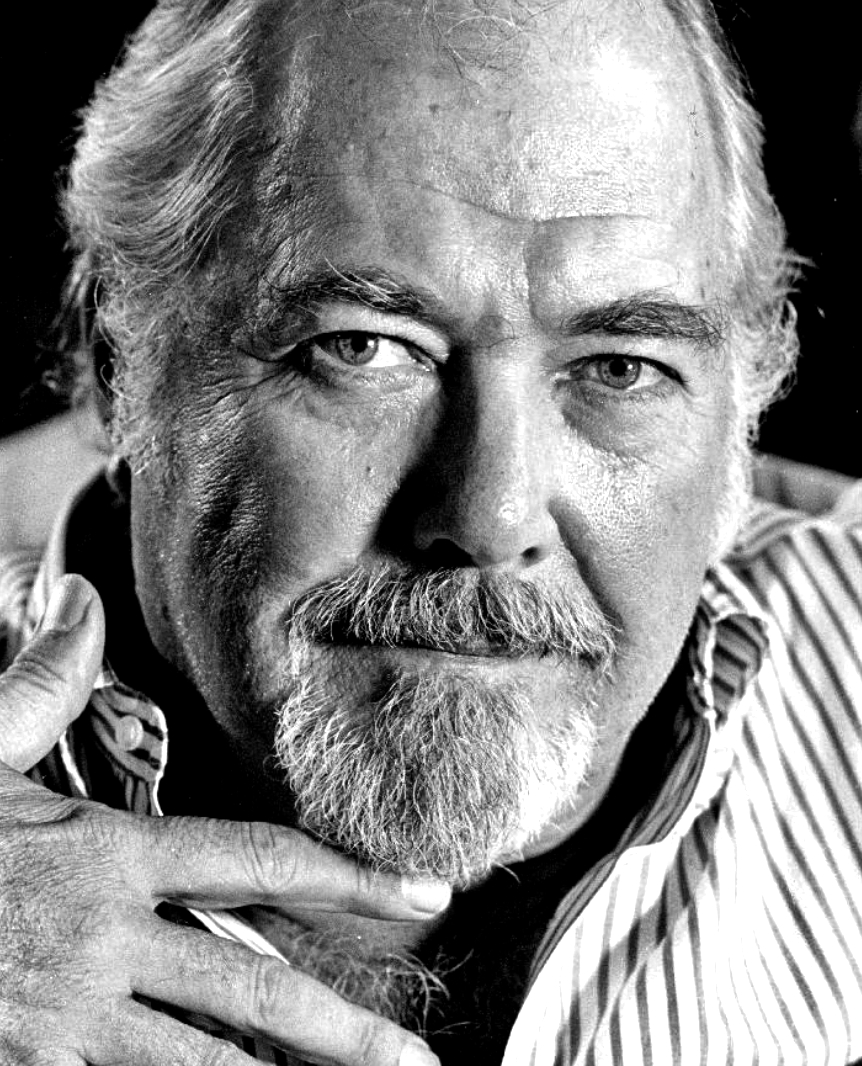
On this date in 1925, brilliant film director and screenwriter Robert Bernard Altman was born in Kansas City, Mo., into a Catholic family. Altman’s mother, a Christian Scientist who converted to Catholicism, and father, a wealthy insurance salesman, sent their eldest son to Catholic school. He was enrolled at age 16 in military school, and enlisted in the Army Air Force in 1945. Altman co-piloted B-24 bombers in World War II and participated in 46 missions over the Dutch East Indies.
Enthralled by film, Altman moved to Hollywood after his military discharge. He acted in the film “The Secret Life of Walter Mitty” (1947) and co-wrote the screenplay of a film called “Bodyguard” (1948). Struggling for a breakthrough in Hollywood, Altman returned to Kansas City and was hired by a local film company as a writer in 1950.
He began directing short films for the company and made his silver screen directorial debut with “The Delinquents” (1957). That year he returned to Hollywood and began directing the popular television series “Alfred Hitchcock Presents” (1957-58). “MASH” (1970) was his first cinematic success as a Hollywood director.
In his illustrious career as screenwriter, director and producer, Altman was nominated for seven Academy Awards: 1971 Best Director for “MASH,” 1976 Best Director and Best Picture for “Nashville,” 1993 Best Director for “The Player,” 1994 Best Director for “Short Cuts,” and 2002 Best Picture and Best Director for “Gosford Park.” He won a prestigious “Honorary Award” from the Academy in early 2006 for “a career that has repeatedly reinvented the art form and inspired filmmakers and audiences alike.”
Julie Christie, an actress who was directed by Altman in the memorable “McCabe & Mrs. Miller” (1971), noted, “Robert’s cool is part of his belief system. He won’t be bound by rules and he doesn’t expect you to be, either. … And he doesn’t expect people to be sheep” (The Guardian, April 30, 2004). Altman died at age 81 of complications from leukemia. He was survived by Kathryn Reed, his wife of 47 years, their two children and three children from two previous marriages. D. 2006.
“The day he left home [to fight in World War II], he remembers his mother and two sisters putting him on the train with the words, ‘Thank God you’ve got your religion. You’re going to need it now.’ From that day, he says, he never went to Mass again. ‘At home, you had to. Then, when I left the family, I stopped.’ “
— Journalist Suzie Mackenzie, remarking on and quoting Altman in a profile in The Guardian (April 30, 2004)
Tony Randall
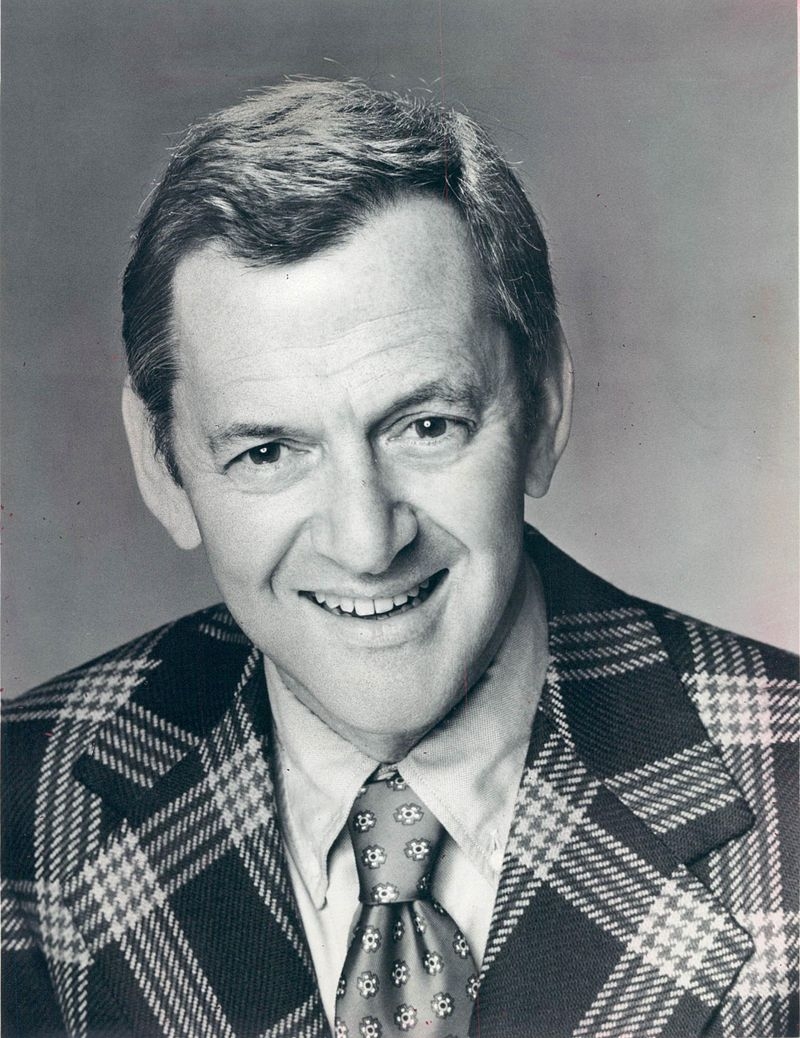
On this date in 1920, actor Tony Randall, né Aryeh Leonard Rosenberg, was born in Tulsa, Oklahoma. His talent for mimicry brought notes home from teachers to his parents begging, “Please stop him from making faces!” He attended Northwestern University for a year before enrolling in the Neighborhood Playhouse School of the Theatre in New York City. Randall also studied under choreographer Martha Graham.
He served in the U.S. Army Signal Corps during World War II, then went back to the stage. Randall portrayed the character based on H.L. Mencken in the 1955 Broadway production of “Inherit the Wind.” Randall’s career in television took off when he played the overbearing history teacher Harvey Weskit on “Mr. Peepers” (1952-55). His film roles, mostly comedies, included a recurring role as foil in the Rock Hudson/Doris Day movies. He portrayed the “brain” in Woody Allen’s “Everything You Always Wanted to Know About Sex (But Were Afraid to Ask,” 1972).
Randall’s television role in 1970 as Felix Unger in “The Odd Couple” opposite Jack Klugman lasted until 1975. Based on the Neil Simon play of the same name, it received three Primetime Emmy nominations for Outstanding Comedy Series.
A critic of right-wing cuts to the arts, Randall founded and funded the National Actors Theater in New York in 1991 to ensure that classic plays would be available to the public at reasonable ticket prices. Randall was a well-known opera aficionado and booster. His wife of 54 years, née Florence Gibbs, died in 1992 and he married Heather Harlan in 1995 when he was 75 and she was 25. They had two children.
In his autobiography, Which Reminds Me, he suggested for his epitaph: “I’m not going to take this lying down.” He died in New York City of pneumonia at age 84, several months after coronary bypass surgery. (D. 2004)
© Freedom From Religion Foundation. All rights reserved.“I wish I believed I’d see my parents again, see my wife again. But I know it’s not going to happen.”
— Randall, quoted in the Washington Post (Sept. 25, 2003)
Javier Bardem
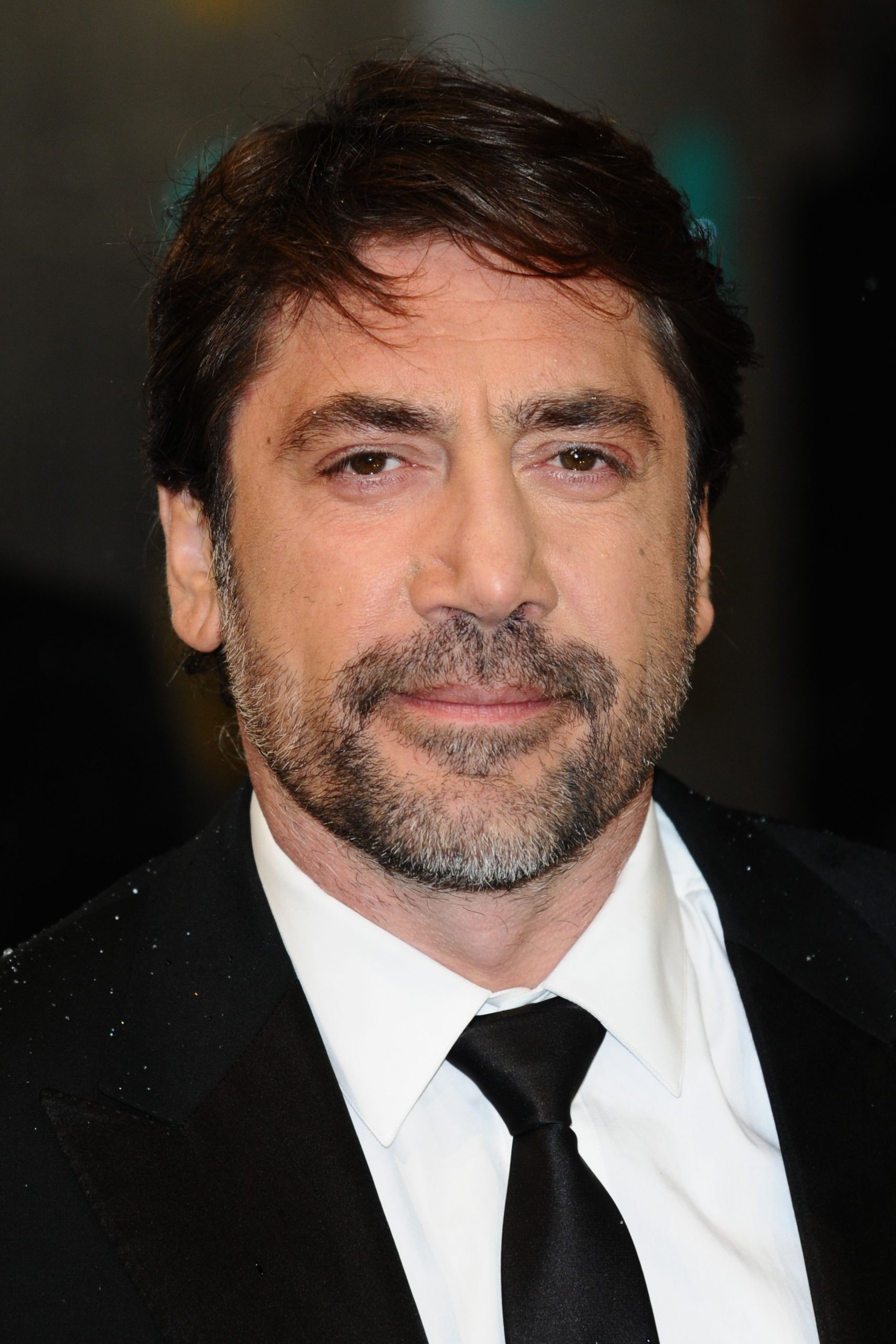
On this date in 1969, Javier Ángel Encinas Bardem was born in Las Palmas de Gran Canaria in the Canary Islands, Spain. Bardem grew up in a family of actors (except his father, who was a businessman). He began acting at age 6 in the Spanish television series “El Pícaro” (1974). As a teen he acted in television and played rugby for Spain’s national team. His breakthrough role was his Oscar-nominated portrayal of Cuban poet and novelist Reinaldo Arenas in “Before Night Falls” (2000).
Exceptional performances followed in “The Dancer Upstairs” (2002), directed by John Malkovich, “Collateral” (2004), “Goya’s Ghosts” (2006), also starring Natalie Portman, the Coen brothers’ “No Country for Old Men” (2007), “Love in the Time of Cholera” (2007), Woody Allen’s “Vicky Christina Barcelona” (2008), “Biutiful” (2010) and “Eat Pray Love” (2010). He won the 2008 Academy Award for Best Supporting Actor for his performance in “No Country for Old Men” and was nominated in 2011 in the Best Actor category for “Biutiful.”
In “Sons of the Clouds: The Last Colony” (2012), he demonstrated the suffering of the Sahrawi people in refugee camps. Other roles include 2017’s “Pirates of the Caribbean: Dead Men Tell No Tales,” the horror film “Mother!” (2017) and with his spouse Penélope Cruz in “Everybody Knows” in 2018. He was cast as Stilgar in “Dune” (2021).
An article in The Independent (U.K.) refers to Bardem’s turning point with religion: “Now an atheist, he experienced the loss of his father when he was 25. ‘I wasn’t a very committed Catholic before, but when that happened it suddenly all felt so obvious: I now believe religion is our attempt to find an explanation; to feel more protected’ “ (“People watch me. I feel absurd,” Jan. 16, 2011).
After the 2005 legalization of same sex marriage in Spain, Bardem stated if he were a homosexual he would “get married tomorrow just to fuck with the church.” He and Cruz married in 2010 and have two children.
“I always say, ‘I don’t believe in God, I believe in Al Pacino’ — and that’s true.”
— Bardem, Time magazine, “10 questions for Javier Bardem" (Aug. 14, 2008)
Matt Lucas
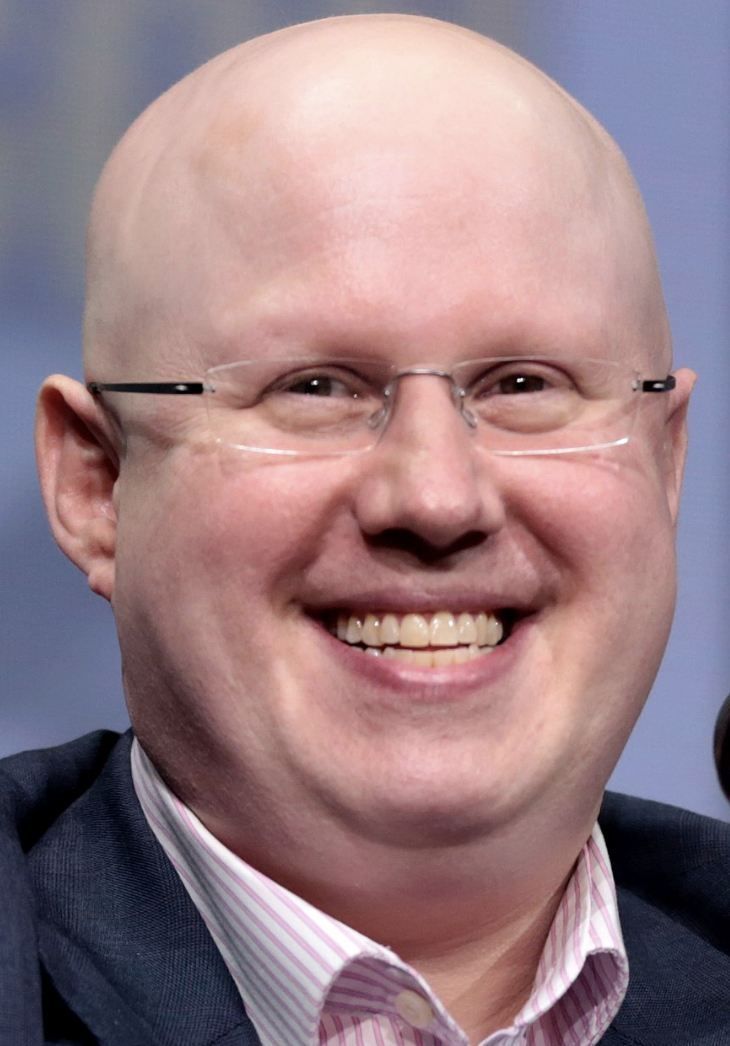
On this date in 1974, entertainer Matthew Richard Lucas was born in London to Diana (née Williams) and John Lucas, who owned a chauffeuring business. Some of his mother’s family fled Nazi Germany. Alopecia caused the loss of all his hair at age 6. His father died of a heart attack at age 52 when Lucas was 22.
Lucas attended the same boys school as comic actor Sacha Baron Cohen, then studied at the University of Bristol (1993-95) and spent time with the National Youth Theatre. He is best known for his work with David Walliams on the BBC sketch comedy series “Rock Profile” (1999–2000, 2009), “Little Britain” (2003–07, 2020) and “Come Fly With Me” (2010–11).
He played Nardole in the BBC series “Doctor Who” (2015–2017) and appeared in the films “The Infidel” (2010), “Alice in Wonderland” (2010), “Bridesmaids” (2011) and “Small Apartments” (2012). In 2020 he became co-presenter with Noel Fielding of “The Great British Bake Off,” which debuted in 2010.
His memoir Little Me was published in 2017. During the 2020 coronavirus lockdown, his song “Baked Potato” was the No. 1 British iTunes download and raised over £1 million for food banks. He reprised the role of Monsieur Thénardier in the concert version of “Les Misérables” at the Sondheim Theatre in late 2020.
Lucas is gay and began a civil partnership in 2006 with a ceremony attended by Elton John and Courtney Love. They dissolved their partnership two years later. From 2012-15, Lucas lived with his “Bridesmaids” co-star Rebel Wilson, an Australian actress, in West Hollywood, Calif.
He calls himself “a fairly secular Jew” and an atheist. He believes “people should be free to practice their religion if it doesn’t hurt others.” (Twitter, Aug. 6, 2018)
PHOTO: Lucas at the 2017 San Diego Comic-Con International; Gage Skidmore photo under CC 3.0.
“I am a Jew and an atheist. After my father died, I started to lose faith.”
— Interview, The Times of London (June 2, 2018)
Óscar Isaac
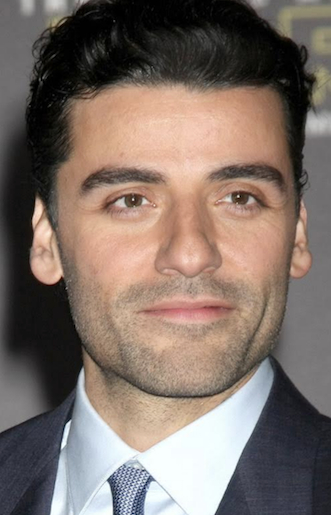
On this date in 1979, Óscar Isaac Hernández Estrada was born in Guatemala City, Guatemala, to María Eugenia Estrada Nicolle, a Guatemalan, and Óscar Gonzalo Hernández-Cano, a Cuban pulmonologist. His father met his mother while studying medicine in Guatemala. They moved to the U.S. when he was 5 months old.
His parents became enmeshed in evangelical Christianity and enrolled him in Westminster Christian School, a Calvinist school in Palmetto Bay, Fla. He was expelled in seventh grade for a series of rebellious incidents, including defacement of a mural with profanities.
“The Hernandez home became the site of a kind of ongoing tent revival. Visiting pastors would come and stay with the family, play Legos with the children, and then hold services in the living room, where participants would often be so seized by the Spirit that they would faint and speak in tongues. … It wasn’t long before Isaac broke away from the Church; a ‘slow amputation’ is how he describes it.” (GQ, Dec. 15, 2015)
His first film acting role was “Pool Boy” in “Illtown” (1998). He’d had several small theatrical roles in Miami and played lead guitar and sang in the ska-punk band The Blinking Underdogs. The band had some success and opened for Green Day and The Mighty Mighty Bosstones.
Isaac was accepted into the acting program at New York’s Juilliard School in 2001. While a student there, he played Francesco in the action comedy “All About the Benjamins” (2002). He dropped his last names to be credited instead with his first two, Óscar Isaac. As of this writing in 2022, his acting credits number 60, including television (hosting “Saturday Night Live” and playing Marc Spector/Moon Knight in Marvel Studios’ six-episode series “Moon Knight” in 2022 on Disney+).
Isaac starred in the Coen brothers’ “Inside Llewyn Davis” (2013), playing a talented but unsuccessful folk singer in Greenwich Village in 1961. His performance brought him a Golden Globe Best Actor nomination in 2014, when he co-starred with Jessica Chastain in “A Most Violent Year” after Javier Bardem dropped out over script concerns.
He portrayed Nathan Hamlet Bateman in the science fiction film “Ex Machina” (2015) and starred in the six-episode “Show Me a Hero” on HBO, winning the Golden Globe for Best Actor – Miniseries or Television Film. Also in 2015, he co-starred in “Star Wars: The Force Awakens,” playing Poe Dameron, an X-wing pilot. He reprised the role in “Star Wars: The Last Jedi” in 2017 and “Star Wars: The Rise of Skywalker” in 2019.
Along with several other movie, TV and podcast roles in the latter half of the 2010s, Isaac played Prince Hamlet in 2017 in The Public Theater production of “Hamlet.” The New York City theater was founded in 1954 by Joseph Papp as the Shakespeare Workshop.
A naturalized U.S. citizen, Isaac married Danish film director and screenwriter Elvira Lind in 2017. They are raising their sons, Eugene (b. 2017) and Mads (b. 2019), in Brooklyn.
PHOTO: Isaac at the premiere in Los Angeles of “Star Wars: The Force Awakens” in 2015; Kathy Hutchins/Shutterstock.com photo.
“My dad was a man of extremes. And the way my mom was raised, she followed her husband. So if God spoke to my father one day and said we were not supposed to have a TV in the house, it was suddenly gone. … I was never frightened by it. I was more curious why I wasn’t feeling the real thing myself.”
— Isaac, describing the "tent revival" atmosphere in his childhood home (GQ, Dec. 15, 2015)
Patrick Duffy
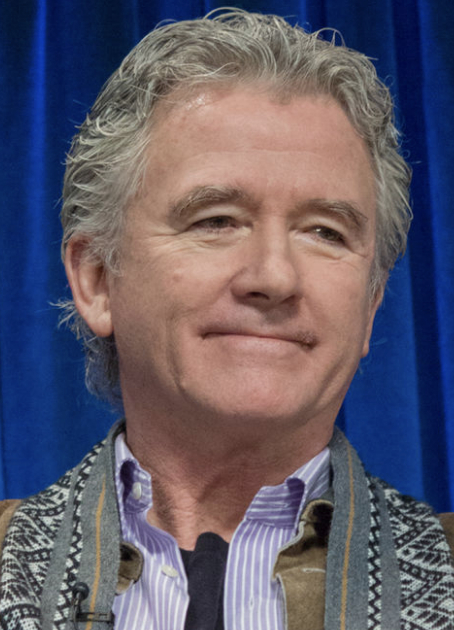
On this date in 1949, actor Patrick Duffy was born in Townsend, Montana. He graduated from the University of Washington, attending the Professional Actors Training Program. Athletically inclined, he taught mime for a time while seeking acting jobs. He married Carlyn Rosser, a professional ballerina 10 years his senior, in a Buddhist ceremony in 1974. They were married until her death in 2017 and had two sons. His parents were tragically murdered in 1986 during an armed robbery of their tavern in Montana.
Duffy is known for his role as Bobby Ewing (the nice son) in the hit TV series “Dallas” (1978-1985, 1986-1991). He starred with Suzanne Somers in the family sitcom “Step by Step” (1991-98) and then in two “Dallas” reunion television movies. In 2006 he started a recurring role on the daytime soap opera “The Bold and the Beautiful” as Stephen Logan. He reprised his role as Bobby Ewing in TNT’s remake of “Dallas” from 2012-14.
PHOTO: Duffy at the PaleyFest forum on “Dallas” in 2013; photo by iDominick under CC 2.0.
“[Buddhism] deals with the fact, in essence, you know, come right out and say it, that there is no God, that the individual is God.”
— Duffy on Bill Maher's "Politically Incorrect" (July 19, 1999)
Bruce Willis
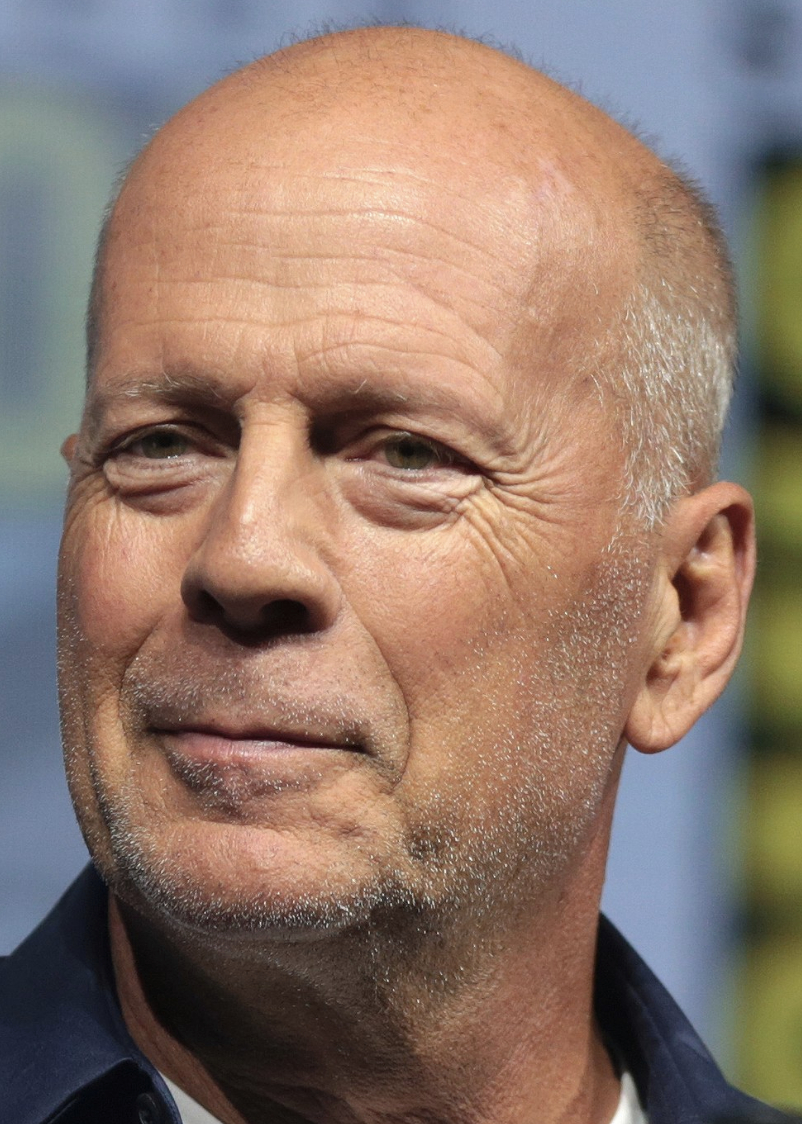
On this date in 1955, actor Walter Bruce Willis was born on a military base in Germany. He was raised Lutheran and grew up in Penns Grove, New Jersey, attended Montclair State College, then moved to New York City. Willis waited on tables and bartended while looking for acting jobs. He was cast for one of his first roles as a bartender by a director who spotted him tending bar. Willis’ TV break came in the series “Moonlighting” (1985). His first box office hit was “Die Hard” (1988).
Among his earlier movies are three “Die Hard” sequels, “Look Who’s Talking” (1989), “The Bonfire of the Vanities” (1990), “The Last Boy Scout” (1991), “Pulp Fiction” (1994), “Twelve Monkeys” (1995), “The Jackal” (1997), “Breakfast of Champions” (1999), “The Sixth Sense” and “The Story of Us” (1999). Since then he has made at least one movie every year as of this writing in 2022. He is the recipient of a Golden Globe, two Primetime Emmy Awards and two People’s Choice Awards. He received a star on the Hollywood Walk of Fame in 2006.
Willis was married from 1987 to 2000 to actress Demi Moore and married actress Emma Heming in 2009. He and Moore have three daughters, Rumer, Scout and Tallulah. He and Heming have two daughters, Mabel and Evelyn.
Willis’ family announced in March 2022 that he had retired from acting after being diagnosed with aphasia, a language disorder that affects the ability to communicate. It can be caused by a stroke, head injury, brain tumor or other disease.
PHOTO: Willis at the San Diego Comic-Con in 2018; Gage Skidmore photo under CC 3.0.
“Organized religions in general, in my opinion, are dying forms. They were all very important when we didn’t know why the sun moved, why weather changed, why hurricanes occurred, or volcanoes happened. Modern religion is the end trail of modern mythology. But there are people who interpret the Bible literally. Literally! I choose not to believe that’s the way.”
— Willis interview, George magazine (July 1998)
Carl Reiner
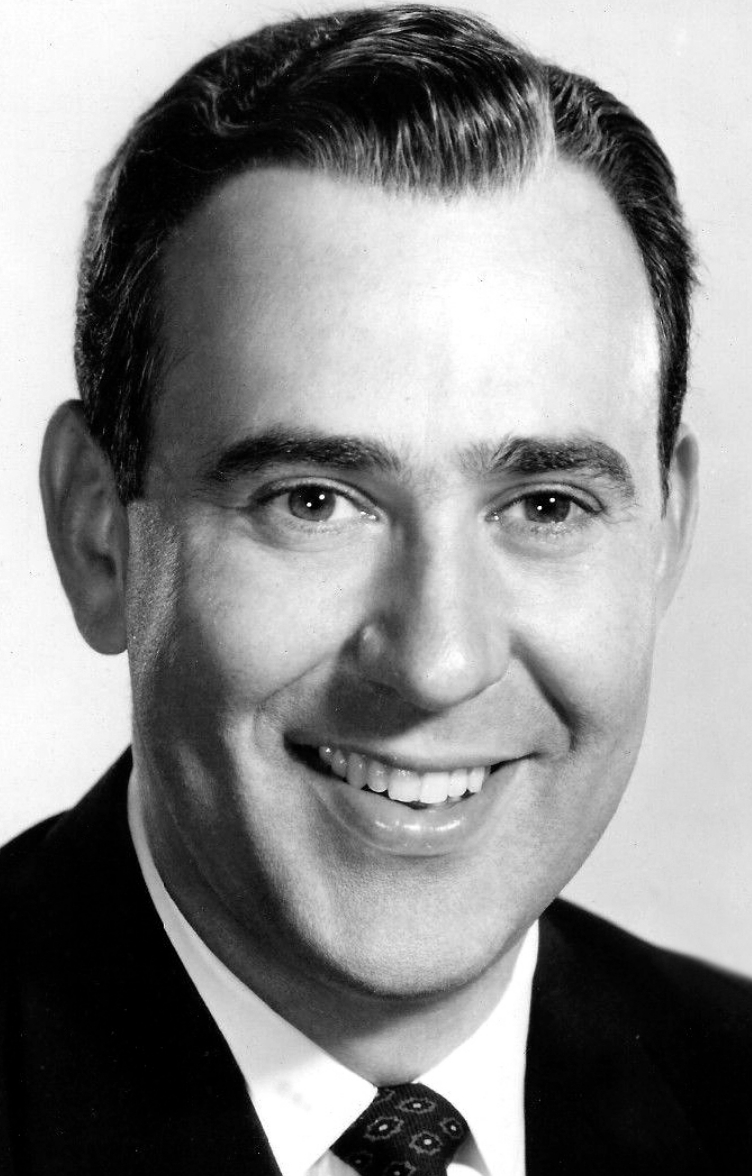
On this date in 1922, actor Carl Reiner was born in the Bronx, New York, to immigrant Jewish parents. The son of a Romanian-born watchmaker and a Hungarian mother started his distinguished entertainment career in Broadway musicals after serving in the Pacific during World War II. Among his lifetime achievements in writing, directing, producing and acting for television and film, Reiner was perhaps most noted for creating, directing and frequently appearing on “The Dick Van Dyke Show” (1961-66).
He was cast in comedian Sid Caesar’s “Your Show of Shows” (1950-54), appearing in skits while also working alongside writers Mel Brooks and Neil Simon. He directed “Oh, God!” (1977), starring George Burns and directed and co-wrote four Steve Martin films: “The Jerk” (1979), “Dead Men Don’t Wear Plaid” (1982), “The Man With Two Brains” (1983) and “All of Me” (1984). In 2007, the Director’s Guild of America honored him with an Honorary Life Member award. Over his career he won nine prime-time Emmy Awards and a Grammy.
Reiner married Estelle Lebost in 1943 and they were married until her death at age 94 in 2008. Their children are Rob (b. 1947), Annie (b. 1949) and Lucas (b. 1960). Estelle delivered the line “I’ll have what she’s having” in the famous restaurant scene in Rob’s 1989 film “When Harry Met Sally.”
Reiner wrote 18 books, including five biography/memoirs (the last announced in 2017 when he was 95). At 97 he was still active on Twitter and still had his sense of humor, publishing an illustrated children’s book in 2017 titled You Say God Bless You for Sneezing and Farting!
Reiner called himself a Jewish atheist. “I have a very different take on who God is,” he said in a 2008 Los Angeles Times interview. “Man invented God because he needed him. God is us.”
Reiner in October 2018 denounced the Trump administration and said his goal was to live to see him voted out of office. He didn’t quite make it, dying at home in Beverly Hills at age 98 about four months before the election. (D. 2020)
PHOTO: Reiner at age 38.
MOMENT: Have you always been an atheist?
— Interview, Moment magazine, founded by Elie Wiesel (May 1, 2013)
REINER: I became an atheist after Hitler came. I said, what is this? If there was a God, would he not be hearing 18 million people, 16 million Jews, or 20 million other people, saying,”Please God, don’t do this, make him stop?” God was so busy doing what? Striping zebras or fixing the long necks of giraffes?
William Shatner
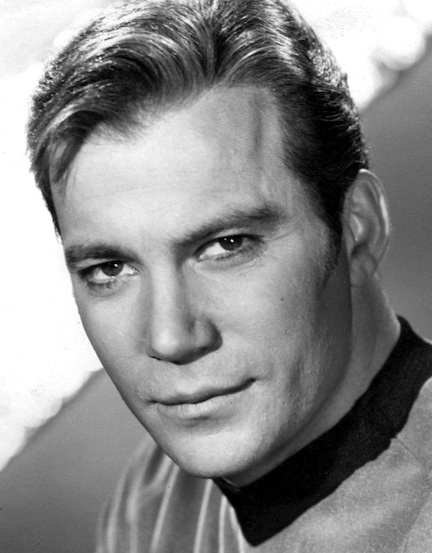
On this date in 1931, actor William Alan Shatner was born in Montréal, Québec, to Anne (née Garmaise) and Joseph Shatner, a clothing manufacturer. His maternal grandparents were Jewish immigrants, as was his father. His paternal grandfather Sheldon Schattner anglicized the family name to Shatner.
He studied economics at McGill University in Montreal, where he graduated with a bachelor of commerce degree in 1952, then joined the National Repertory Theatre in Ottawa, where he trained as a classical Shakespearean actor. He was an understudy to Christopher Plummer in “Henry V” and made his Broadway debut in 1956 in Christopher Marlowe‘s “Tamburlaine the Great.”
In 1959, he received good reviews in the role of a British artist in Hong Kong in the Broadway production of “The World of Suzie Wong.” His first feature film role came in MGM’s “The Brothers Karamazov” with Yul Brynner in 1958. Following were roles in “Judgment at Nuremberg” (1961) and “The Intruder” (1962).
The early ’60s featured his many episodic TV roles, but the role that made Shatner famous (and brought a star in 1983 on the Hollywood Walk of Fame) was as Capt. James T. Kirk of the USS Enterprise in Gene Roddenberry‘s “Star Trek.” It became a marketing franchise and an obsession for Trekkies enamored of its various movie and television iterations stretching into the 21st century.
He wrote books, fiction and nonfiction, and recorded albums about “Star Trek” and continued to act on TV, including as police Sgt. “T.J. Hooker” in that series (1982–86). His career acting credits by 2022 totaled 247, and he made numerous guest appearances on talk shows.
Shatner recorded a wake-up call in 2011 that was played for the crew of the space shuttle Discovery docked at the International Space Station. Backed by the theme from “Star Trek,” it featured a voice-over based on his introduction to the series’ opening credits: “Space, the final frontier …” He flew into suborbital space in October 2021 at age 90, becoming the oldest person to fly to space.
He married four times and had three daughters with his first wife, actress Gloria Rabinowitz Rand: Leslie (b. 1958), Lisabeth (b. 1960) and Melanie (b. 1964).
Asked in 2018 about his religious upbringing, Shatner said: “My father and mother had an observant religious life. They went to temple every Sabbath, prayed to God, and I was dragged along. I’m not religious, but I’m spiritual.” (Sydney Morning Herald, Oct. 6, 2018)
“I probably am an animist,” he said, talking about the human-animal connection he wrote about as a longtime horse breeder in his book “Spirit of the Horse.” (AP, June 16, 2017) “Emotionally I would like to believe there is a life after death. Intellectually … I cannot accept the idea.” (1968 interview with Bonnie Mallory, NBC-TV)
PHOTO: NBC publicity still of Shatner as Captain Kirk.
“My belief system is that when this is over, it’s over. That you don’t look down from heaven and wait for your loved ones to join you.”
— Interview, Associated Press (March 9, 2006)
Keira Knightley
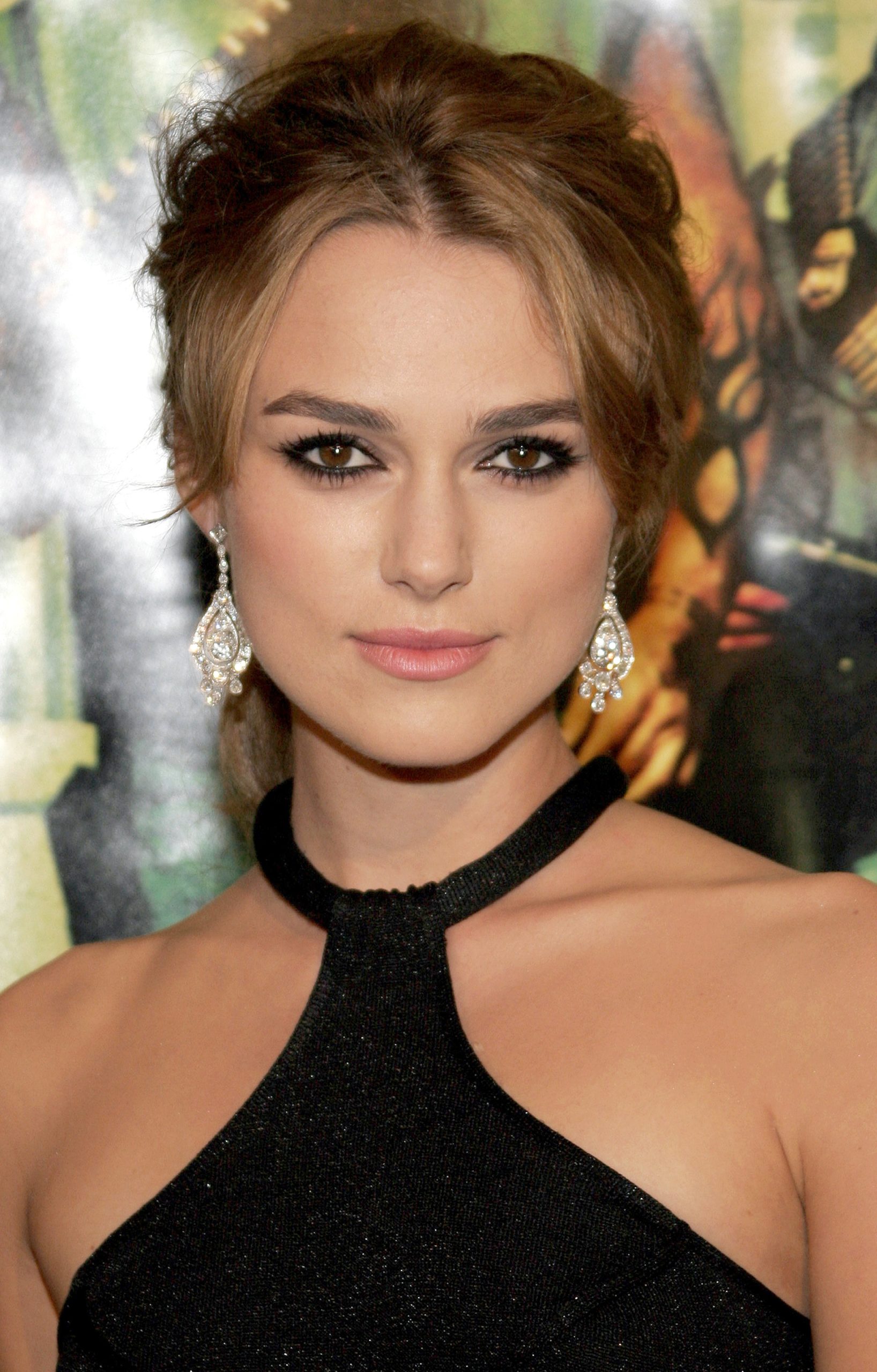
On this date in 1985, Keira Christina Knightley was born in London to a playwright mother and actor father. She had an agent by age 6 and in 1993 had a brief role in an episode of the British TV series “Screen One.” Subsequent TV film roles included Natasha Jordan in “A Village Affair” (1995), a princess in “The Treasure Seekers” (1996), young Judith in “Coming Home” (1998) and Rose in “Oliver Twist” (1999). Knightley earned international recognition for her role as Sabé, the decoy to Natalie Portman’s Queen Amidala, in “Star Wars Episode I: The Phantom Menace” (1999).
She played Robin Hood’s daughter, a starring role, in Disney’s 2001 production of “Princess of Thieves.” In 2002 she acted in a remake of “Doctor Zhivago,” “Pure” and “Bend It Like Beckham.” She starred with Johnny Depp in “Pirates of the Caribbean” (2003), with Emma Thompson, Colin Firth, Liam Neeson and Hugh Grant in “Love Actually” (2003) and with Adrien Brody in “The Jacket” (2005).
Also in 2005, Knightley played Elizabeth Bennet in “Pride and Prejudice,” a role which earned her Golden Globe and Academy Award nominations. She had roles in two 2006 “Pirates of the Caribbean” sequels and was nominated for a Golden Globe and a BAFTA Award for 2007’s “Atonement.” She appeared in “The Edge of Love” (2008) and “The Duchess” (2008).
Roles followed in “Last Night”and “Never Let Me Go” (both in 2010), “A Dangerous Method” (2011), “Seeking a Friend for the End of the World” (with Steve Carell in 2012), “Anna Karenina” (2012), “Begin Again” (2013), “Jack Ryan: Shadow Recruit” and “The Imitation Game” (2014) and “Pirates of the Caribbean: Dead Men Tell No Tales” (2017). She was nominated for a Laurence Olivier Award for Best Supporting Actress for her performance on the London stage in “The Misanthrope,” her theatrical debut.
In addition to her acting life, Knightley has used her celebrity to raise funds and awareness for Amnesty International, WaterAid, the American Library Association, Comic Relief, Women’s Aid and The Spinal Muscular Atrophy Trust. She married musician James Righton in 2013. Their daughter, Edie, was born in 2015.
Knightley: If only I wasn’t an atheist, I could get away with anything. You’d just ask for forgiveness and then you’d be forgiven. It sounds much better than having to live with guilt.
— Knightley, Interview magazine (April 2012)
David Cronenberg: Yeah, but you could always lie about being an atheist. I don’t think an atheist could get elected in America right now.
Knightley: No, I don’t think they could either.
Marlon Brando
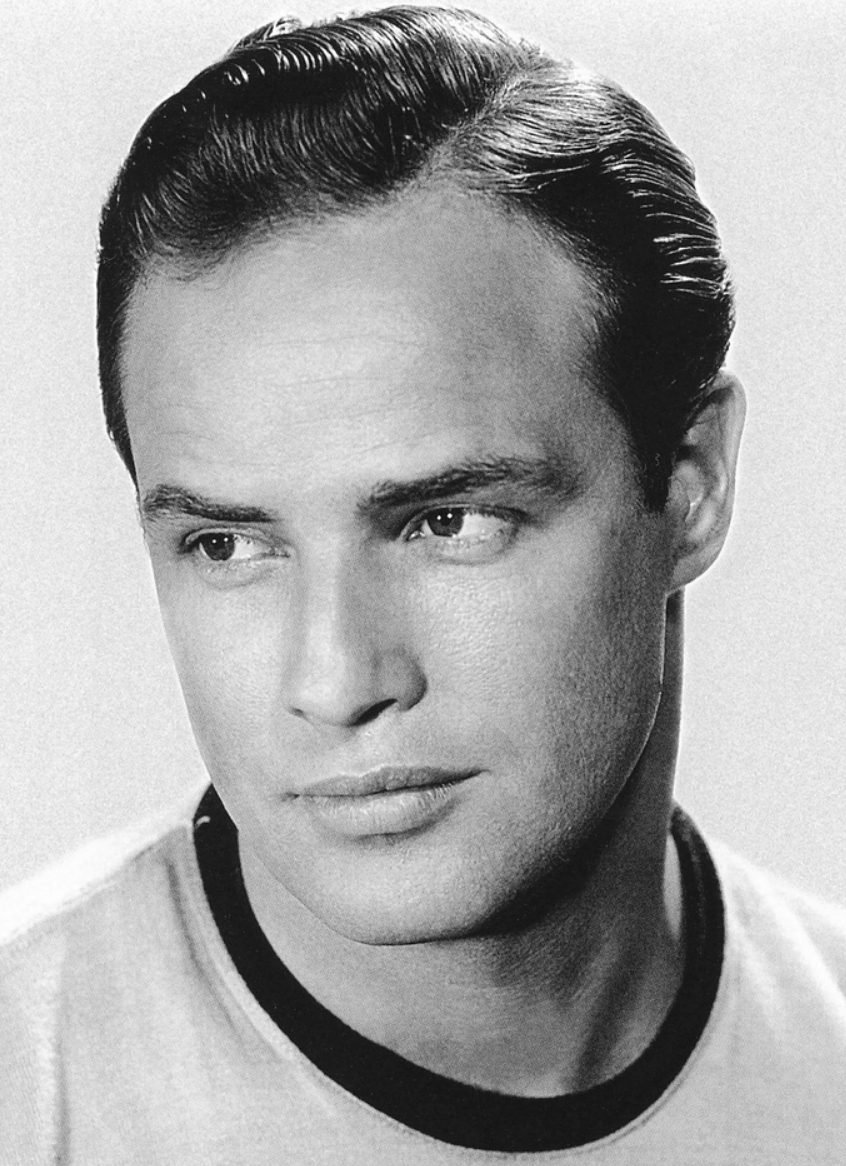
On this date in 1924, actor Marlon Brando Jr. was born in Omaha, Neb., to Dorothy (Pennebaker) and Marlon Brando. When he was 11 his parents separated (both had alcohol problems), and he lived for a time with his Christian Scientist grandmother and became interested in Christian Science. His mother’s theater background — she worked with young Henry Fonda and others — piqued his interest in acting. After dropping out of high school, he moved to New York City in 1943 and studied with Stella Adler and Elia Kazan at the Actors Studio to learn Stanislavski “method” acting techniques.
His Broadway debut was in “I Remember Mama” (1944). His movie debut was as a paraplegic in “The Men” (1950). Reprising his memorable depiction on Broadway of Stanley in “A Streetcar Named Desire” for the 1951 film of the same name, Brando, became an overnight sensation.
His other memorable films include “Julius Caesar” (1953), “On the Waterfront” (1954, for which he won his first Best Actor Oscar), “Guys and Dolls” (1955), “The Teahouse of the August Moon” (1956), “Mutiny on the Bounty” (1962), “The Ugly American” (1963), “Reflections in a Golden Eye” (1967), “The Godfather” (1972, for which he won but declined his second Oscar), “Last Tango in Paris” (1972) and “Apocalypse Now” (1979).
Brando was married three times to actresses: Anna Kashfi (1957-59), Movita Castaneda (1960-62) and Tarita Teriipaia (1962-72). Teriipaia, 18 years his junior, played his love interest in “Mutiny on the Bounty.” He had 11 children, including three with his housekeeper Maria Cristina Ruiz during their relationship from 1988 to 2001.
His son Christian (with Kashfi) was found guilty of voluntary manslaughter and was sentenced to 10 years for the 1990 shooting death of Dag Drollet, the boyfriend of Brando’s daughter Cheyenne (Christian’s half-sister). Cheyenne, who had drug addictions, committed suicide at age 25. Brando was known for eccentricities and promotion of liberal causes. He died at age 80 in 2004.
As an adult, Brando was never active in any religious denomination but was interested in spirituality, metaphysics and nontraditional belief systems such as Native American and Eastern religions, including meditation. He also expressed admiration for Judaism. He has been described as a pantheist and an atheist, although the atheist claim is dubious. In his autobiography he referred to his “inexaustible awe and reverence for nature.” (D. 2004)
PHOTO: Brando during filming of “The Wild One” in 1953; photo under Wikimedia Commons.
© Freedom From Religion Foundation. All rights reserved.“When I was young, I embraced the Judeo-Christian concept of good and evil, and its corollary, that all of us were responsible for our deeds because of the choices we made. I don’t believe this anymore.”
— "Songs My Mother Taught Me" by Marlon Brando with Robert Lindsey (1994)
Rachel Bloom
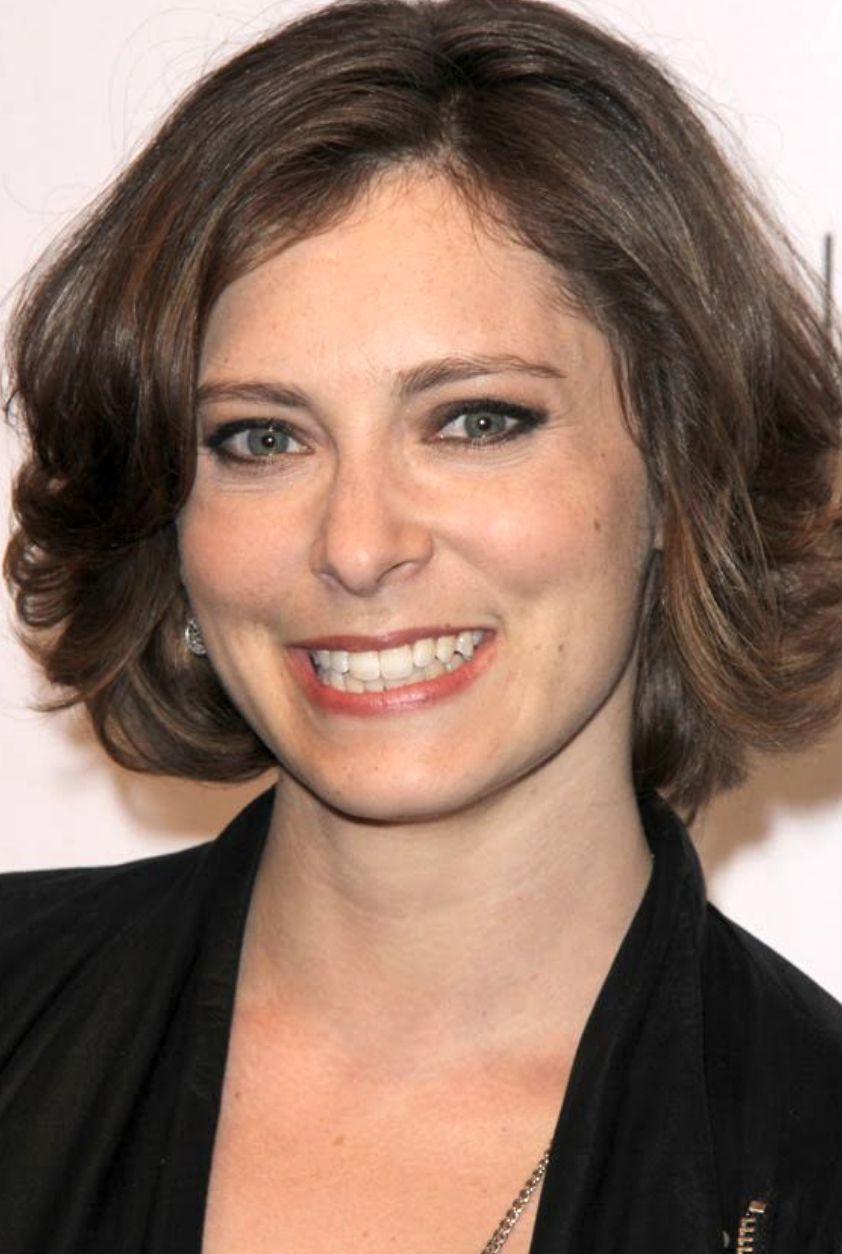
On this date in 1987, entertainer Rachel Leah Bloom, was born in Los Angeles to Shelli (Rosenberg), a musician, and Alan Bloom, an attorney. She was raised in Manhattan Beach with what she called a “heavy” Jewish identity. While the Blooms weren’t observant, her parents were “always going to Holocaust museums” and were “all up on who’s Jewish in Hollywood.” (Tablet online, July 8, 2014)
When she was 10, she dropped out of Hebrew School because it conflicted with her interest in taking theater classes. She engaged in her passion for theater throughout her childhood and attended New York University’s Tisch School of the Arts, where she received a BFA in 2009.
Bloom is best known for her co-creation of “Crazy Ex-Girlfriend” (2015-19), in which she had the starring role. The dark-humored television series is centered around the life of a young woman suffering from anxiety and depression while searching for happiness. Bloom’s empathy with those who, like her, struggle with mental illness, motivates her work as an activist for improved quality and availability of mental health care for all who need it.
She is also a proponent of women’s rights and issues, believing that feminism and humanism are inseparable allies. She lives in Los Angeles with her husband, Dan Gregor, whom she married in 2015. They have a daughter, born in 2020.
PHOTO: Bloom at PaleyFest 2015 in Beverly Hills, Calif.; photo by Shutterstock.com/Kathy Hutchins
“[When] the Constitution established a separation of church and state. That’s so important, because if you look at almost any religion, especially the major three, there is an oppression of women. I feel very lucky to be in a country with a more secular mindset.”
— Bloom, Newsweek interview (Jan. 25, 2018)
Paul Robeson
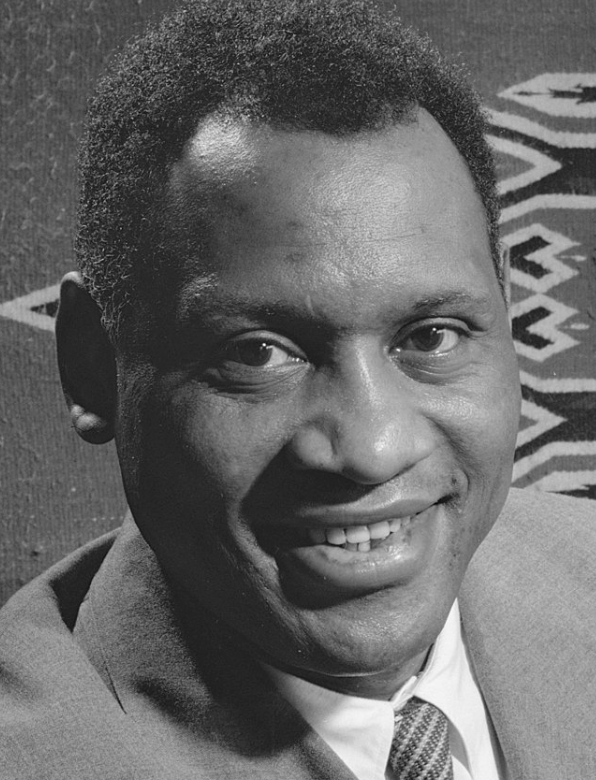
On this date in 1898, Paul Leroy Robeson, was born in Princeton, N.J., to Maria (Bustill) and William Robeson. His mother’s family was Quaker and his father, who escaped slavery as a teen, was a Presbyterian minister. Robeson was awarded a four-year scholarship to Rutgers, becoming that university’s third black student. He was a 12-letter athlete, Phi Beta Kappa scholar, Cap & Skull Honor Society member and valedictorian of his 1919 graduating class.
Robeson earned a law degree from Columbia in 1923 but encountered racial barriers, such as a white secretary refusing to take dictation from him. He turned to theater, starring in Eugene O’Neill’s “All God’s Chillun Got Wings” (1924) and “Emperor Jones.” Robeson changed the words to Jerome Kern’s song] “Ol’ Man River” when he starred in “Showboat.” It became the mellifluous singer’s signature song. He married Eslanda Goode (1921-65) and they had a son, Paul Jr..
He made 11 films and gave popular concert tours around the world but faced constant “Jim Crow” racism even in Europe. The increasingly radical Robeson, questioning why American blacks should be loyal to a country that denied them equal rights, was called before the House Committee on Un-American Activities in 1947 and was denied a passport until 1958. He spent time in Russia and abroad before returning to the U.S.
According to Warren Allen Smith in Who’s Who in Hell, Robeson was a nontheist. (D. 1976)
© Freedom From Religion Foundation. All rights reserved.“A polyglot (10 languages, from Chinese to Swahili), he spoke out against man’s inhumanity to man and utilized naturalistic rather than supernaturalistic terms in arguing his outlook.”
— Warren Allen Smith, "Who's Who in Hell" (2000)
Rod Steiger
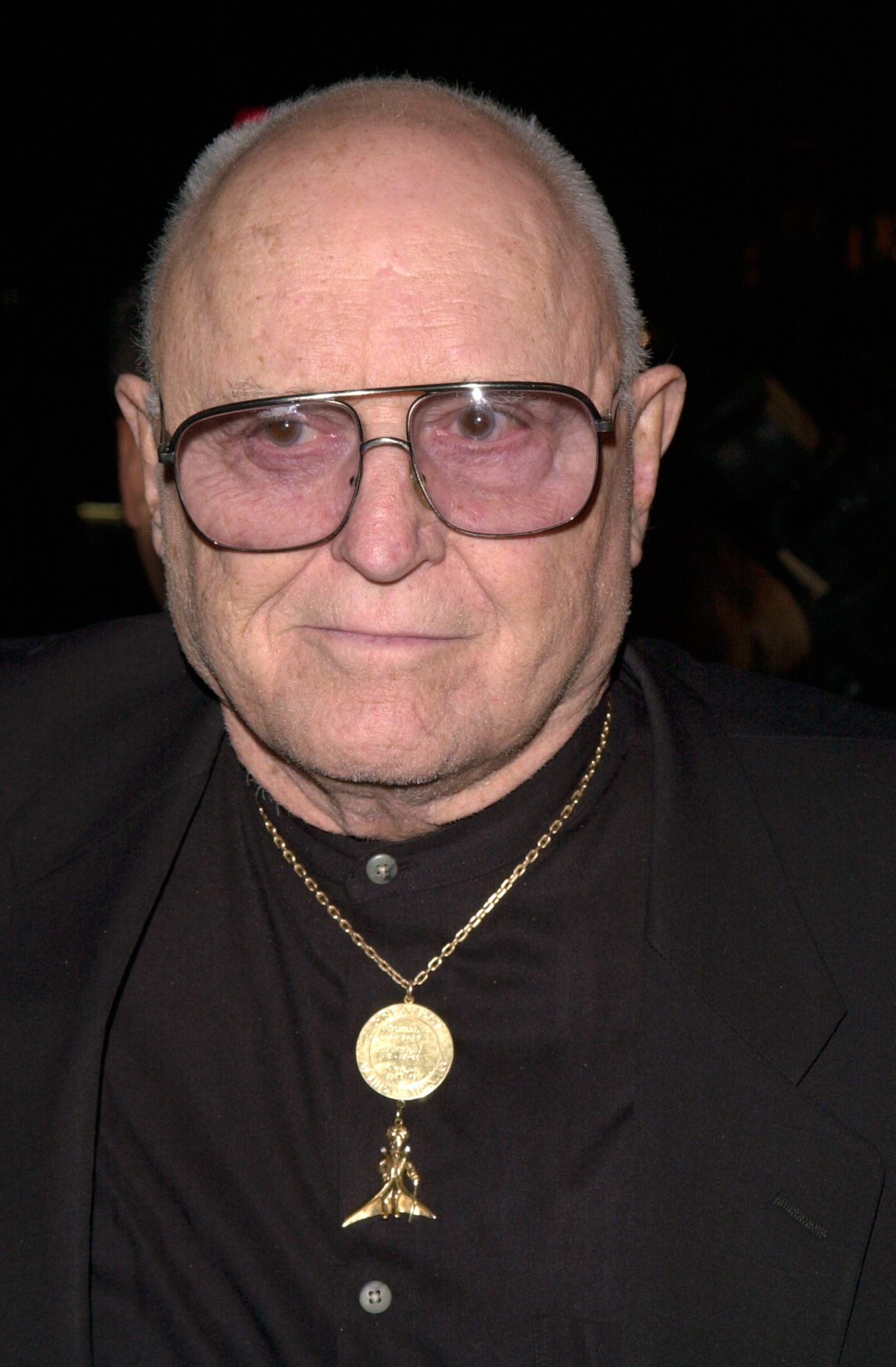
On this date in 1925, actor Rod Steiger was born in New York City, the only child of parents who had played on vaudeville and got divorced when he was a baby. His mother, who suffered from alcoholism, raised him as a single parent. After Pearl Harbor, the 16-year-old lied about his age and joined the Navy, serving in the Pacific during WWII. Steiger attended drama school on the GI Bill, and eventually studied at the Actors Studio. He participated in the Golden Age of live television, and began a memorable career as villains and heavies, such as playing the menacing ranch hand Jud Fry in “Oklahoma!” (1955).
Steiger won an Oscar for Best Actor, playing the redneck Mississippi police chief opposite Sidney Poitier in the 1967 film “In the Heat of the Night.” He played a tortured Auschwitz survivor in “The Pawnbroker.” That and several other Jewish roles, such as the rigid rabbi in “The Chosen,” made some fans suppose he was Jewish. According to Tim Boxer’s Jewish Celebrity Anecdotes, Steiger, an agnostic, was actually born to Lutherans (cited by Warren Allen Smith in Who’s Who in Hell).
Other memorable roles included “Mr. Joyboy” in The Loved One, the domineering seducer of Lara in “Doctor Zhivago” and the lead in Ray Bradbury’s “The Illustrated Man.” He was married five times and spoke openly of the depression he suffered during the 1980s. He died in Los Angeles at age 77 of pneumonia and kidney failure as a result of complications from surgery for a gallbladder tumor. (D. 2002)
“That’s all religion is — some principle you believe in. … Man has accomplished far more miracles than the God he invented. What a tragedy it is to invent a God and then suffer to keep him King.”
— Steiger, Playboy magazine interview (July 1969)
Richard Jeni
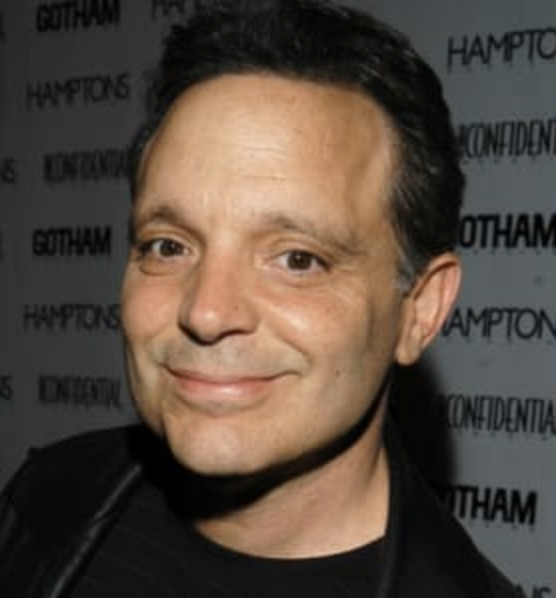
On this date in 1957, comedian and actor Richard John Colangelo (stage name Richard Jeni) was born into a Catholic family in a rough neighborhood in Brooklyn, N.Y. A shy kid with a talent for language, he won a national essay competition as a youth and earned an honors political science degree from Hunter College in New York City. In his 20s he worked in public relations and as a taxi driver before hitting the national scene with the Showtime special “Richard Jeni: Boy From New York City” (1990).
Two years later, his next special, “Crazy from the Heat,” garnered the highest ratings in Showtime’s history. Other stand-up comedy television specials included “Platypus Man” (1992), “A Good Catholic Boy” (1997) and “A Big Steaming Pile of Me” (2005). He made appearances on “The Daily Show,” “Comedy Central Presents,” “Everybody Hates Chris,” “Married With Children,” “Hollywood Squares” and was a frequent guest on “The Tonight Show.” Jeni debuted in the popular 1994 Jim Carrey film “The Mask,” followed by roles in “National Lampoon’s Dad’s Week Off” (1997) and “Burn Hollywood Burn” (1997).
He frequently mocked religion in his stand-up career. “Religious war? You’re basically killing each other to see who’s got the better imaginary friend” (CNN, “A few words from Richard Jeni,” March 12, 2007). He told the audience in “A Big Steaming Pile of Me”: “You gotta respect people who have strong religious beliefs, don’t we? ‘Cause if you don’t, they’ll kill you.”
Jeni won several CableACE Awards for his stand-up specials, and George Carlin presented him the American Award for “Best Male Stand-up” on ABC. Comedy Central ranked Jeni #57 on its top 100 list of greatest stand-ups of all time.
Suffering from severe clinical depression, Jeni committed suicide at age 49. The coroner’s report said he had a history of schizophrenia and had been taking antidepressants and a sleeping aid. (D. 2007)
“When one guy sees an invisible man he’s a nut case. Ten people see him it’s a cult. Ten million people see him it’s a respected religion.”
— Richard Jeni personal website
Emma Thompson
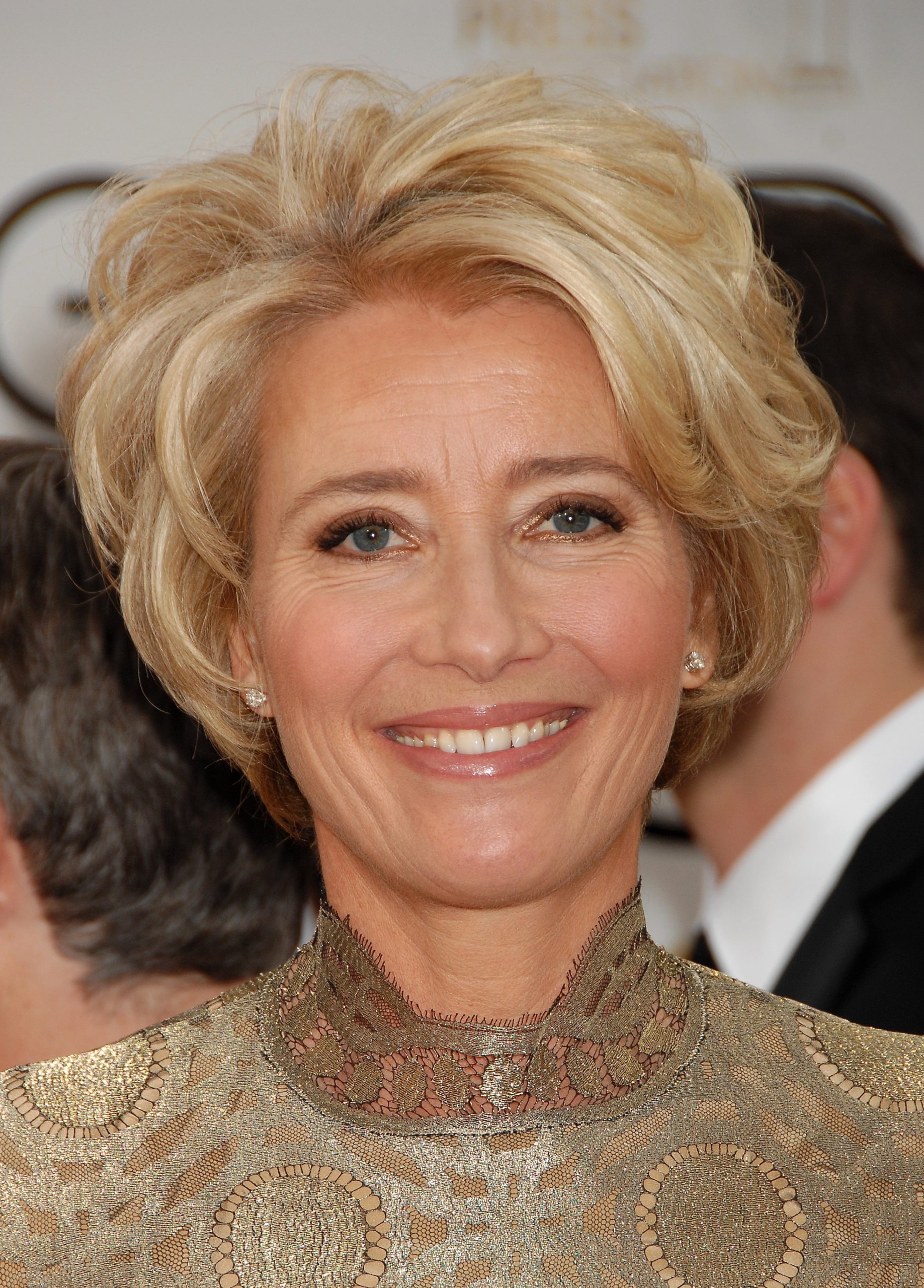
On this date in 1959, actress and screenwriter Emma Thompson was born in London. Her mother Phyllida Law, sister Sophie Thompson and father Eric Thompson were all actors. She studied English literature at Newnham College at Cambridge University (graduating in 1980), where she became active in the university’s famous theatrical group, the Footlights Revue.
She started her career with some BBC radio gigs, followed by appearances on a sketch comedy series called “Alfresco,” with Hugh Laurie, and a popular sitcom, “The Young Ones,” in Britain. In 1990 Thompson co-starred with Jeff Goldblum in “The Tall Guy,” her first major film. She won a BAFTA and an Oscar for Best Actress in her 1992 role in “Howard’s End.” She adapted Jane Austen’s Sense and Sensibility for the screen, the screenplay for which she deservedly earned an Academy Award for Best Adaptation in 1996, and starred in the film of the same title. Thompson gained an Emmy for guest starring in an episode of “Ellen” in 1997.
Her most memorable films include roles in “Much Ado About Nothing” (1993), “The Remains of the Day” (1993), “In the Name of the Father” (1993), “Primary Colors” (1998), “Love Actually” (2003), the series “Angels in America” (2003), in which she played an angel, “Stranger than Fiction” (2006), “Last Chance Harvey” (2008) and a recurring role as professor Sybill Trelawney in several of the Harry Potter films, which star freethinker Daniel Radcliffe.
“I’m an atheist; I suppose you can call me a sort of libertarian anarchist. I regard religion with fear and suspicion. It’s not enough to say that I don’t believe in God. I actually regard the system as distressing: I am offended by some of the things said in the Bible and the Qu’ran, and I refute them.”
“I think that the Bible as a system of moral guidance in the 21st century is insufficient, to put it mildly. I feel quite strongly that we need a new moral lodestone if we can’t rely on what is inside our own selves.”
— Thompson, "Acting on outspoken beliefs," The Australian, Oct. 15, 2008
Elizabeth Montgomery
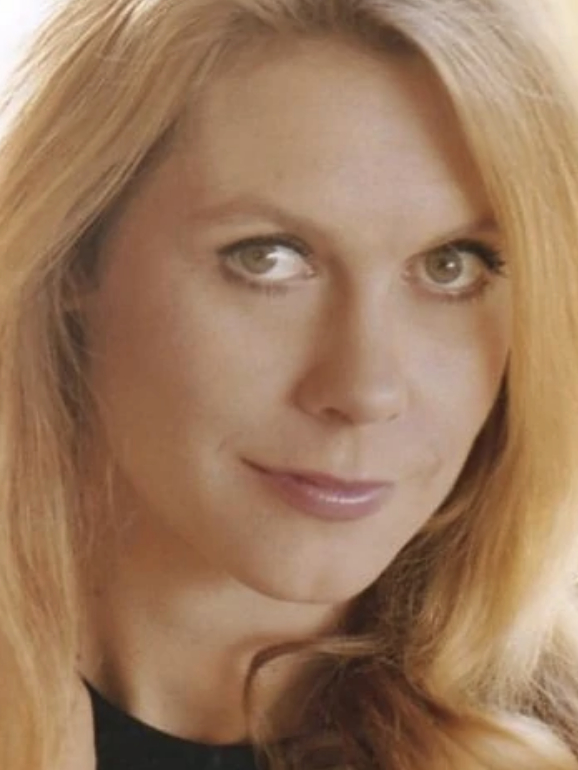
On this date in 1933, actress Elizabeth Victoria Montgomery was born in Los Angeles. As an L.A. baby with parents in the entertainment business, Montgomery was heavily influenced by the Hollywood lifestyle. Her father, Robert Montgomery, was a screen actor and her mother, Elizabeth Allen, was a Broadway actress. She attended the Spence School and the Academy of Dramatic Arts in New York City and made her television debut on “Robert Montgomery Presents” (1950), her father’s playhouse series, but only after earning her role through years of intensive training.
Throughout the next decade, she appeared in over 200 live programs. Montgomery is best known for her role on “Bewitched” (1964) as the lovable witch Samantha Stephens. She also played the role of her mischievous cousin Serena under a pseudonym. The show was a sensation and helped popularize the name Samantha in 1965 and for years after the show began.
She also starred in several films and TV shows, including “The Court Martial of Billy Mitchell” (1955), “Who’s Been Sleeping in My Bed” (1963), “A Case of Rape”(1974), “The Legend of Lizzie Borden” (1975) and “Black Widow Murders: The Blanche Taylor Moore Story” (1993).
Montgomery was a fervent feminist, liberal Democrat and activist for LGBTQ rights. She advocated for many causes, including Amnesty International and the fight against AIDS. She attended the 1992 West Hollywood Gay and Lesbian Pride Parade with her “Bewitched” co-star Dick Sargent, who publicly came out as gay the prior year.
Her first husband was businessman Frederick Cammann (1954-55). Her second husband was actor Gig Young (1956-63), 25 years her senior. In 1963 she married William Asher, the producer-director of “Bewitched.” They divorced amicably in 1973. They had three children, Willy, Robert and Rebecca Elizabeth. She then had a 20-year relationship with actor Robert Foxworth before marrying him in 1993, 18 months before her death at age 62 of colon cancer eight weeks after being diagnosed. (D. 1995)
“I think of God as the beauty in life. … It’s loving and being loved. It’s feeling good inside because you are living the life of a good person. Maybe it’s a good idea to try to start new ways of looking at the subject.”
— Montgomery in “Twitch Upon A Star: The Bewitched Life and Career of Elizabeth Montgomery” by Herbie Pilato (2012)
Charlie Chaplin
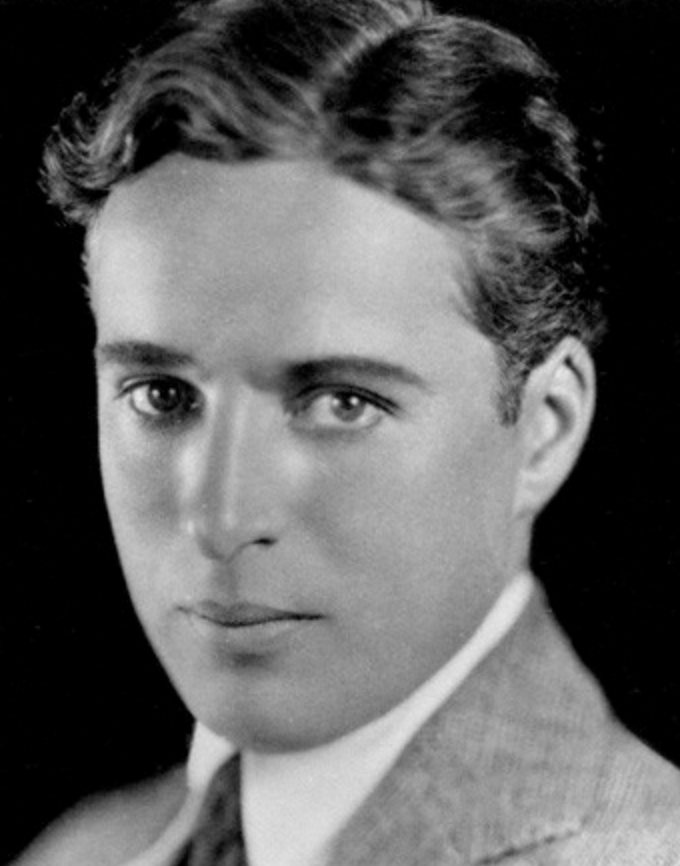
On this date in 1889, actor and film director Charles Spencer Chaplin was born in London. Abandoned as a toddler by his vaudeville father, he and a brother largely grew up in workhouses due to the instability of their actress mother. By age 10 he had entered the vaudeville circuit. His first trip to America was in 1910.
By 1916, after three years in silent pictures, Chaplin was earning $10,000 a week, making him the highest-paid actor in the world. Known as the “Little Tramp,” Chaplin starred, produced, directed, wrote, scored and edited his movies, including “The Kid” (1920), “The Gold Rush” (1924), “City Lights” (1931) and his talkie, “The Great Dictator” (1940).
A beloved figure, he was admired by many prominent freethinkers, including George Bernard Shaw and Bertrand Russell. In 1919 he co-founded United Artists films with D.W. Griffith, Mary Pickford and Douglas Fairbanks. His fourth wife, Oona O’Neill, was the daughter of playwright Eugene O’Neill. Public sentiment turned against him after a paternity suit in the 1940s and his marriage in 1943 to O’Neill when she was 18 and he was 54. They remained married until his death and had eight children over 18 years.
Although Chaplin had never belonged to the Communist Party, J. Edgar Hoover managed to collect a nearly 2,000-page dossier on him. He was denied reentry to the U.S. in 1952 and settled in Switzerland. He received a special Oscar in 1972. He died of a stroke at age 88. (D. 1977)
PHOTO: Chaplin c. 1920; public domain photo by Strauss-Peyton Studio
“In Philadelphia, I inadvertently came upon an edition of Robert Ingersoll’s Essays and Lectures. This was an exciting discovery; his atheism confirmed my own belief that the horrific cruelty of the Old Testament was degrading to the human spirit.”
— Chaplin, "My Autobiography" (1964)
Jack Nicholson
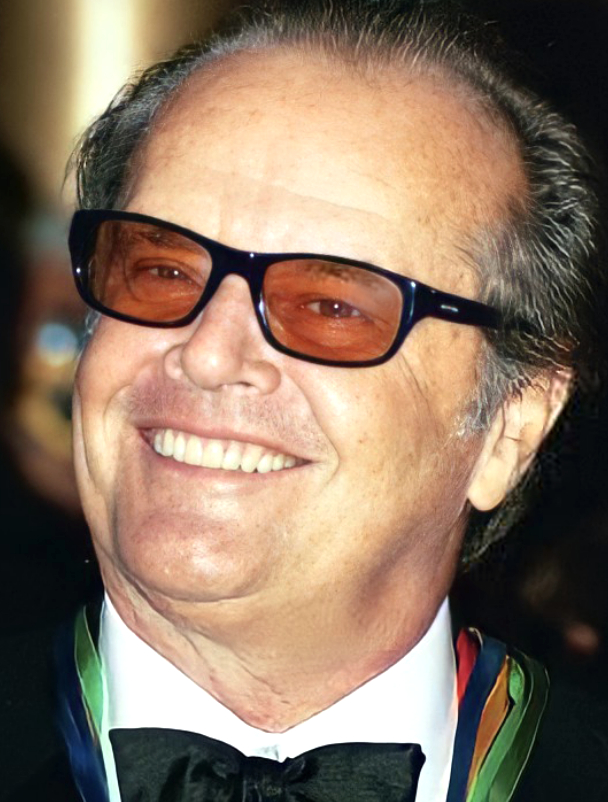
On this date in 1937, actor Jack Nicholson was born in New Jersey. He appeared in his first movie in 1958. “Five Easy Pieces” (1970) was a breakthrough role. His many notable movies include: “Easy Rider” (1969); “Carnal Knowledge” (1971); “One Flew Over the Cuckoo’s Nest” (1975), for which he won a Best Actor Oscar; “The Shining” (1980); “Terms of Endearment” (1983), for which he won the Best Supporting Actor Oscar; “Prizzi’s Honor” (1985); “Heartburn” (1986); “The Witches of Eastwick” (1987), in which he played “the devil;” “Batman” (1989); “A Few Good Men” (1992), “As Good as It Gets” (1997), which won him a second Best Actor Oscar, “About Schmidt” (2002), “The Bucket List” (2007) and “I’m Still Here” (2010).
Nicholson was raised as a Catholic but stopped attending church in high school. In a 1992 Vanity Fair interview, he said, “I don’t believe in God now.” Twelve years later, in an Esquire magazine interview, he said that he prayed “to something” and had “a God sense. It’s not religious so much as superstitious. It’s part of being human, I guess.”
PHOTO: Nicholson as a 2001 Kennedy Center honoree; © John Mathew Smith under CC 2.0.
“I resist all established beliefs. My religion basically is to be immediate, to live in the now. It’s an old cliché, I know, but it’s mine. I envy people of faith. I’m incapable of believing in anything supernatural. So far, at least. Not that I wouldn’t like to.”
— Nicholson, interview with Esquire magazine (January 2004)
Amber Heard
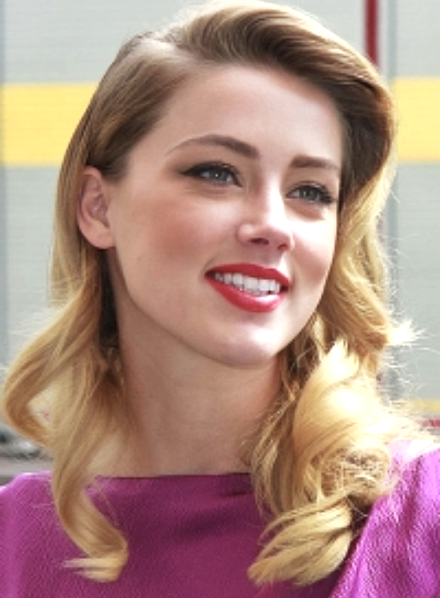
On this date in 1986, actress Amber Laura Heard was born in Austin, Texas, to Patricia Paige and David Heard. She dropped out of high school when her best friend died in a car accident (after which she declared herself an atheist at age 16). She later completed the requirements for a diploma. She started her acting career in television and music videos and began appearing in more substantial roles with “Friday Night Lights” (2004) and the next year in “North Country,” in which she played Charlize Theron‘s character in flashbacks.
Other roles followed, including “Pineapple Express” (2008), “Zombieland” (2009) and 2011’s “The Rum Diary” opposite Johnny Depp. Heard received a 2008 Young Hollywood Award for what was called a breakthrough comedic performance in “Pineapple Express.” Her increasing popularity was attested to by the 2013 nationwide theater release by The Weinstein Co. of her film “All the Boys Love Mandy Lane,” which premiered at the 2006 Toronto Film Festival. It was announced in early 2016 that she would have starring roles as Queen Mera in the Justice League and Aquaman movies.
Heard reprised her role as Mera in “Zack Snyder’s Justice League” (2021), a director’s cut of the 2017 film. It was announced in late 2020 that she would appear in “Aquaman and the Lost Kingdom,” set for release in 2023.
She came out publicly in 2010 as bisexual, an admission she had resisted because of fears it would hurt her career. She and Depp, 22 years her senior, married in February 2015 and divorced contentiously in 2017. Her daughter, Oonagh Paige Heard, was born in April 2021 via a surrogate mother. After a six-week trial in 2022 on claims and counterclaims of defamation, a jury found Heard libeled Depp in a 2018 op-ed alleging domestic abuse. Depp was awarded $10.35 million in damages. The jury also found one of Depp’s lawyers defamed Heard and awarded her $2 million. The final resolution, in December 2022, awarded $1 million to Depp, who said he would donate it to charity.
Heard has been involved with LGBT rights, Amnesty International and the United Nations program Girl Up. Her beguiling physicality has also landed her on numerous magazine covers, including Missbehave in April 2008. In that issue, she talked about how being raised in “a strict Catholic environment” led her to know “I will never be a religious person.”
In an interview, she recalled students at her Catholic middle school getting extra credit for “community service” by protesting at abortion clinics. “I remember going into the classroom during homeroom and [my classmates] were making these posters with terrifying images, and I remember saying to myself, ‘I would rather be unpopular than do that to another human being.’ ” (net-a-porter.com, Nov. 30, 2018)
PHOTO: gdcgraphics under CC 2.0
“I’d like to thank the way I was raised for giving me enough knowledge about organized religion to make the adult decision to live the rest of my life without it. I don’t think you can believe or not believe in anything unless you know a lot about it. I know Christianity, especially Catholicism, like the back of my hand. And my education has given me the freedom to know that it is completely absurd for me to believe it.”
— Missbehave magazine, April/May 2008
Barbra Streisand
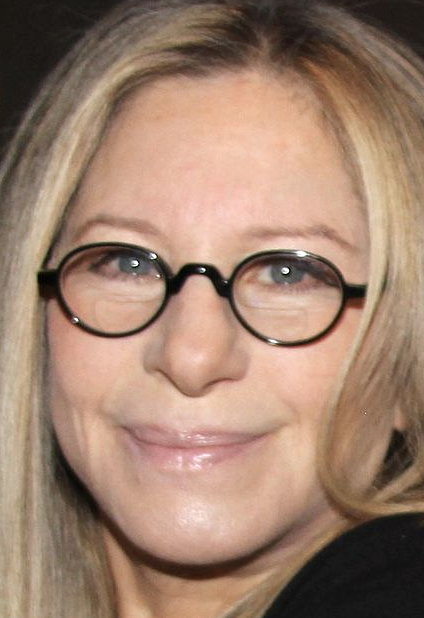
On this date in 1942, Barbara Joan “Barbra” Streisand was born in Brooklyn, N.Y., to Diana (née Ida Rosen) and Emanuel Streisand. Her Jewish grandparents emigrated from Galicia (Poland/Ukraine) and Russia. Her mother was a secretary at the school where her father taught. He died after an epileptic seizure when Barbara was 15 months old, resulting in long-term financial struggles for the family.
After first enrolling in an Orthodox yeshiva as a 5-year-old, Streisand attended public schools and graduated at age 16 from Erasmus Hall High School, where she was a classmate of Neil Diamond, who would also gain fame as a singer. Living on her own after graduation, and with theatrical aspirations, Streisand worked to support herself. She won a talent contest by singing two songs at a gay club in Greenwich Village. During this time, in her late teens, she dealt with her dislike of her given name by changing the spelling slightly.
Barbra’s memorable mezzo-soprano started getting more attention and she signed a contract with Columbia Records in 1962. Her 1963 debut album won three Grammys. It was the start of something big — what her personal website notes as her career as an actress, singer, director, writer, composer, producer, designer, author, photographer and activist. (She might have included philanthropist, given the multiple millions she and her foundation have raised for charities and causes she supports.)
She married actor Elliott Gould in 1963. They met during a Broadway production of “I Can Get It for You Wholesale” (her first Tony nomination). Their son Jason, her only child, was born three years later. They divorced in 1971. Not until 1998 would she wed again, to actor James Brolin. (They were still together as of this writing in 2022.) Between marriages, she dated or had romantic relationships with more than a few high-profile men.
Adept at and comfortable performing onstage, on television and in movies, Streisand is the only artist ever to receive Oscar, Tony, Emmy, Grammy, Directors Guild of America, Golden Globe and Peabody awards, as well as France’s Légion d’Honneur and the American Film Institute’s Lifetime Achievement Award.
She won Oscars for Best Actress (“Funny Girl” in 1969) and Best Original Song (for her composition of “Evergreen” from “A Star Is Born” in 1976). She was also nominated for Best Actress for “The Way We Were” (1973). The three films she directed and produced (“Yentl,” “The Prince of Tides,” “The Mirror Has Two Faces”) received 14 Oscar and 13 Golden Globe nominations. Her recordings have earned 10 Grammys.
Streisand is the only artist or group to achieve No. 1 albums in six consecutive decades and has a total of 11. Her first chart-topper was “People” in October 1964; the most recent in 2016 was “Encore: Movie Partners Sing Broadway.” According to Billboard Magazine, she’s the best-selling female recording artist in history.
In a February 1984 interview with Playgirl magazine, she said that “Yentl” wasn’t the result of her becoming a “born-again” Jew, that she wasn’t religious and “[I] don’t go to shul on the Sabbath.” Rumors of her conversion to Orthodox Judaism came during intensive research for “Yentl,” she said. “I talked to all the rabbis I could talk to, searching for different points of view from the Reform, Conservative and Orthodox rabbis. I was appreciating the good aspects of the religion as well as the negative ones. It’s a complex thing. For instance, it’s men through the centuries who have found a way to use [Jewish] law to enslave women.”
PHOTO: Streisand at the 2013 Clinton “Health Matters” Conference in La Quinta, Calif.; photo by lifescript under CC 2.0.
“I’m a Jewess through and through, although I’m not religious. I don’t do anything intentionally to hurt anyone. I feel like I’m a good person. And that feels very Jewish to me.”
— Interview, Esquire magazine (October 1982)
Jessica Alba
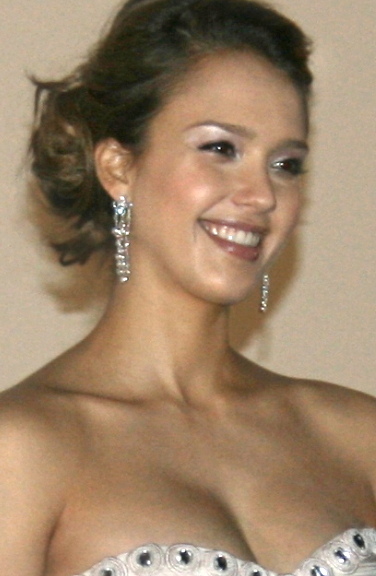
On this date in 1981, Jessica Marie Alba was born in Pomona, California, to Mark and Catherine (Jensen) Alba. Her father was in the military, so the family moved frequently during her younger years before settling in California when she was 9. Her father was Mexican-American and she was raised Catholic. However, she rebelled by attending an evangelical Christian church. She left the church as a teen, citing its sexism and homophobia.
At age 11 she took an interest in acting. Her first role was in the 1994 film “Camp Nowhere.” She began modeling and appeared in several national commercials. She also took a recurring role on the TV show “The Secret World of Alex Mack” and in the adventure series “Flipper.”
Her breakthrough role came in 2000 when she was cast as Max Guevera, the lead in 42 episodes of “Dark Angel.” Since then she has appeared in numerous films and television productions. She owns her own business, The Honest Company, which specializes in toxin-free bath, body and baby products; She published her first book, “The Honest Life,” in 2013.
She married film producer Cash Warren in 2008 after meeting him on the set of “Fantastic Four” in 2004. They have daughters born in 2008 and 2011 and a son born in 2017. Her charity work has included participation with Clothes Off Our Back, Habitat for Humanity, National Center for Missing and Exploited Children, Project HOME, RADD, Revlon Run/Walk for Women, SOS Children’s Villages, Soles4Souls, Step Up and Baby2Baby. Alba is an ambassador for the 1Goal movement to provide education to children in Africa.
PHOTO: Alba at a film screening in 2008; Thierry Caro photo under CC 3.0.
“I was raised by my grandparents and my parents – my grandmother was a very religious Catholic, and my parents became born-again Christians later. So that was hardcore. It’s very different than how [my children are] being raised. I was into God. I really went for it, man. … The further I got into it, it wasn’t for me.”
— Alba, Glamour magazine interview (May 6, 2014)
Uma Thurman

On this date in 1970, Uma Karuna Thurman was born in Boston. Her father was a professor of Indo-Tibetan Buddhist studies who lived as an ordained Buddhist monk for three years. Later in life, after dabbling in Buddhism, she described herself as agnostic. Her mother was a high-fashion model born in Mexico City. Thurman moved to New York City at age 17 to join the Ford Modeling Agency and posed for Glamour and British Vogue.
She made the transition to acting with her film debut in the teen thriller “Kiss Daddy Goodnight” (1987) and was cast in three 1988 films: “Johnny Be Good,” “The Adventures of Baron Munchausen” and most notably, “Dangerous Liaisons.” She had later roles in “Pulp Fiction” (1994), “The Truth about Cats and Dogs” (1996), “Gattaca” (1997, with co-star and future husband Ethan Hawke), “Les Misérables” (1998), “The Golden Bowl” (2000), “Kill Bill (Vols. 1 and 2)” in 2003-04 and “Motherhood” (2009).
For her performance in the HBO film “Hysterical Blindness” (2002), Thurman won the Golden Globe for Best Actress in a Television Film. Thurman has starred in the miniseries “The Slap” (2015) and the series “Imposters” (2017–18). She made her Broadway debut in 2017 in “The Parisian Woman.”
She married English actor Gary Oldman in 1990, divorced two years later and married Hawke in 1998. They had a daughter, Maya, and a son, Levon, before divorcing in 2005. In 2012 she had a daughter, Rosalind, with French financier Arpad Busson.
PHOTO: Thurman at the Calvin Klein Collection fashion show in 2012; Jiyang Chen photo.
“When asked if I consider myself Buddhist, the answer is, not really. But it’s more my religion than any other because I was brought up with it in an intellectual and spiritual environment. I don’t practice or preach it, however.”
— Thurman interview, Reader's Digest (July 2006)
Cloris Leachman
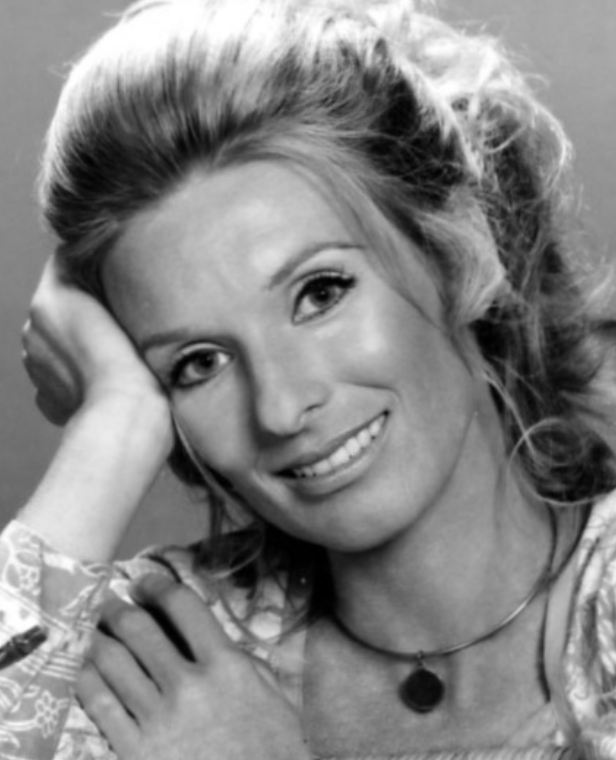
On this date in 1926, actress Cloris Leachman was born in Des Moines, Iowa. Her father owned a lumber company. After being crowned Miss Chicago in the 1946 Miss America competition, she won a scholarship to study at the Actor’s Studio in New York. Some of her earliest films include “Kiss Me Deadly” (1955), “Butch Cassidy and the Sundance Kid” (1969) and “The Last Picture Show” (1971), for which she won an Academy Award. She had roles in three Mel Brooks films: Frau Blücher in “Young Frankenstein” (1974), demented nurse Charlotte Diesel in “High Anxiety” (1977) and Madame Defarge in “History of the World: Part I.”
She played memorable roles on television, including Timmy’s mother on “Lassie” from 1957-58, and Phyllis Lindstrom on “The Mary Tyler Moore Show” (1970-77) and in her own series, “Phyllis” (1975-77). She made frequent appearances on “The Facts of Life” and other shows. She played a main character in 83 episodes of the comedy “Raising Hope” (2010-14). In over 60 years of acting, in roles ranging from comedic to dramatic, Leachman won eight Emmys, appeared in over 100 TV shows and, in the fall of 2008, participated as the oldest contestant yet (age 82) on “Dancing With the Stars.”
From 1953-79 she was married to Hollywood impresario George Englund, with whom she had five children before divorcing. Asked in a 2012 Huffington Post interview if she considered herself an atheist, she replied, “Definitely.” Asked about religious miracles, she said, “Extraordinary miracles, billions and trillions of them, happen all the time but not because there’s a God. … It’s beyond belief. There are 7 billion people on the planet. Is he hearing 7 billion people at once?”
She died at age 94 in Encinitas, Calif. (D. 2021)
PHOTO: Leachman in a 1970 publicity still.
“I don’t believe at all in God and I’m very relieved that I don’t.”
— Leachman interview, Huffington Post (June 20, 2012)
Richard E. Grant
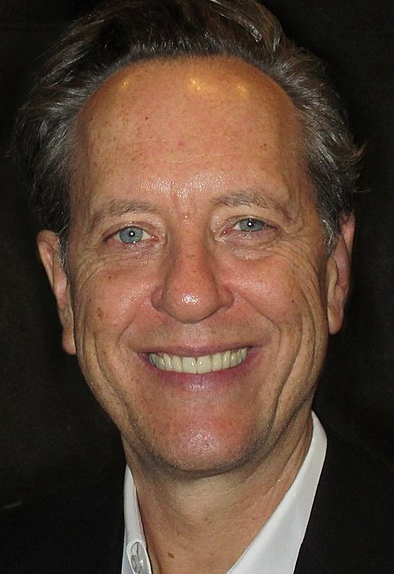
On this date in 1957, actor Richard E. Grant (né Richard Grant Esterhuysen) was born in Mbabane, the capital of Swaziland when it was a British protectorate and his father Henrik was the nation’s director of education. He had a tough childhood. Henrik was an alcoholic who could become abusive, and his mother Leonne ran off with her husband’s best friend not long after Richard saw them having sex in the back seat of a car when he was 10. Henrik shot at Richard one night and “then passed out. He didn’t remember it the next day,” Richard said. He told The Independent in 2006 that he was estranged from his younger brother Stuart.
After studying English and drama at the University of Capetown and joining an acting company there, he moved to England in 1982, the year after Henrik died at 51 of cancer. He made his film debut in the drama “Withnail and I” (1987), followed by film roles in “L.A. Story” (1991), “Bram Stoker’s Dracula” (1992), “Gosford Park” (2001), “The Iron Lady” (2011) and “Logan” (2017). He was nominated for a Best Supporting Actor Oscar for his performance in “Can You Ever Forgive Me?” (2018). On television, he played Bob Cratchit in TNT’s “A Christmas Carol” (1999) and appeared in “Star Wars: Episode IX” (December 2019 release).
Grant has written three books and started marketing a line of Jack perfumes in 2014. He married voice coach Joan Washington, eight years his senior, in 1986. They have a daughter, Olivia, and she has a son, Tom. He described himself in April 2014 to The Telegraph newspaper as a “confirmed atheist.”
In February 2000 he told The Daily Mail that, “Like [my father], I absolutely believe in the here and now. I have no expectation that there’s anything beyond. Life’s to be grabbed with every fibre of your being.” In October 2005, he told The Times of London that although his wife is a Christian, she encouraged their daughter to make up her own mind: “Like me, she came to the conclusion that both Heaven and Hell are here on Earth.”
PHOTO: Grant in 2018; photo by Greg2600 under CC 2.0.
“I took a comparative religion course when I was at university to get an overview, but it had no impact whatsoever. As far as I’m concerned, Darwin has come up with the best theory of how, when and why we are here. Nothing else has convinced me otherwise.”
— Grant interview, The Times of London, Oct. 29, 2005
George Clooney
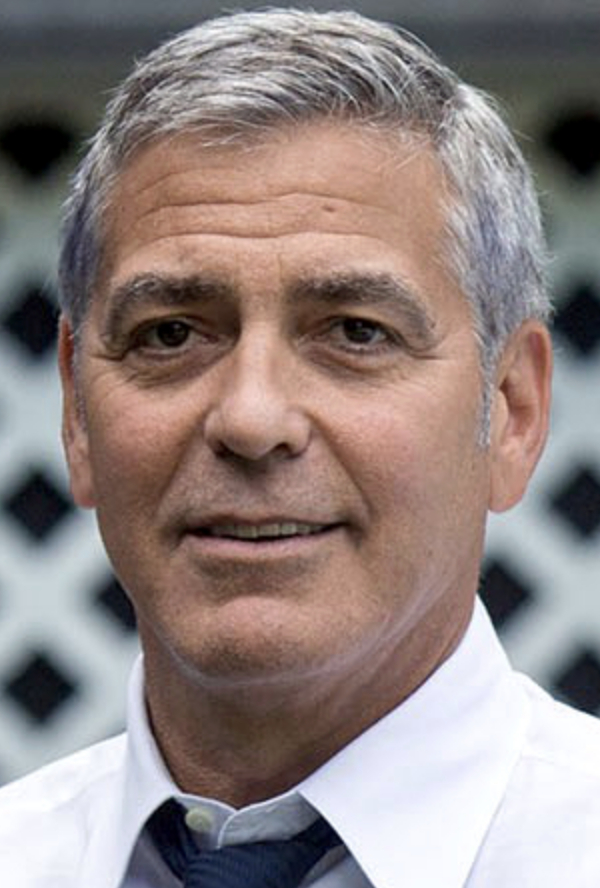
On this date in 1961, Oscar-winning actor George Clooney was born in Lexington, Ky. Clooney, whose aunt was the famous singer Rosemary Clooney, attended Northern Kentucky University. Clooney’s acting career began on television in the early 1980s, where he played in such shows as “Roseanne.” He was a regular on “ER” from 1994-99. Clooney has made numerous movies, including a comic turn as a skeptical, Depression-era Ulysses in “O Brother, Where Art Thou” (2000).
Other notable movies include “Three Kings” (1999), “The Perfect Storm” (2000), “Ocean’s Eleven” (2001, plus two sequels), “Gravity” (2013), “Tomorrowland” (2015) and “Hail, Caesar!” in 2016. Clooney has directed films, including “Good Night, and Good Luck” (2005), and has worked with Stephen Soderbergh, the freethinking director.
Clooney won the 2006 Academy Award for Best Supporting Actor for his role in “Syriana” (2005), received a 2012 Oscar for co-producing “Argo” and was the recipient of the AFI Lifetime Achievement Award in 2018. His Oscar nominations include Best Actor for “Up in the Air” (2009), Best Actor for “Michael Clayton” (2007), and both Best Director and Best Original Screenplay for “Good Night, and Good Luck.” He won Golden Globes for “Syriana,” “O Brother, Where Art Thou?” and “The Descendants” (2011).
His charitable work includes service as a “United Nations Messenger of Peace” since 2008, his advocacy regarding the Darfur conflict and his organization of the “Hope for Haiti” telethon to raise money for the victims of the 2010 earthquake.
PHOTO: Clooney in 2016; White House photo by Pete Souza.
“I don’t believe in heaven and hell. I don’t know if I believe in God. All I know is that as an individual, I won’t allow this life — the only thing I know to exist — to be wasted.”
— Clooney profile in the Washington Post (Sept. 28, 1997)
Katharine Hepburn
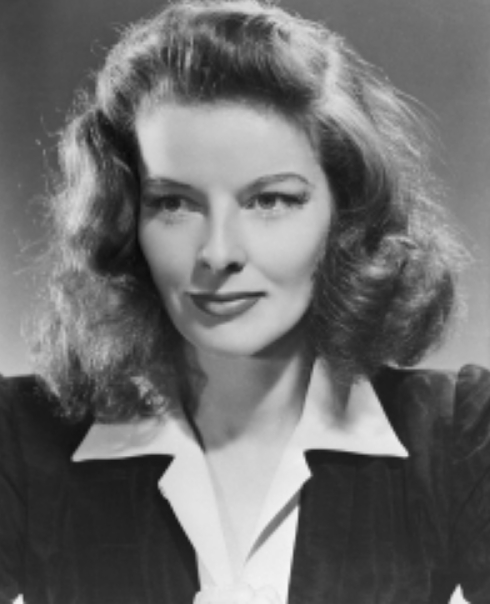
On this date in 1907, Katharine Houghton Hepburn was born in Hartford, Conn., the daughter of a progressive physician and a suffragist/birth control advocate. The legendary tomboy, independent thinker and athlete graduated from Bryn Mawr College in 1928 with degrees in history and philosophy. She went on to become a celebrated actress (surviving a critic’s comment that she was “box office poison”) and a four-time Oscar winner.
Her string of movies includes “Bill of Divorcement” (1932), “Christopher Strong” (1933), “Little Women” (1933), “Morning Glory” (1933), “Spitfire” (1934), “Alice Adams” (1935), “Sylvia Scarlett” (1935), “A Woman Rebels” (1936), “Stage Door” (1937), “Bringing Up Baby” (1938), “The Philadelphia Story” (1940), “Woman of the Year” (1942), “Adam’s Rib” (1949), “Pat and Mike” (1952), “Desk Set” (1957), “Suddenly, Last Summer” (1959), “Long Day’s Journey into Night” (1962), “Guess Who’s Coming to Dinner” (1967), “The Lion in Winter” (1968) and “On Golden Pond” (1981). Perhaps her signature role was in “The African Queen” (1951).
Hepburn routinely defied Hollywood convention and wore her trademark slouchy slacks everywhere. She wrote about her freethought views in her autobiography, Me (1991), and spoke about her atheism and other unconventional views in interviews. (D. 2003)
“I’m an atheist, and that’s it. I believe there’s nothing we can know except that we should be kind to each other and do what we can for each other.”— Hepburn interview, Ladies Home Journal (October 1991)
Henry Fonda
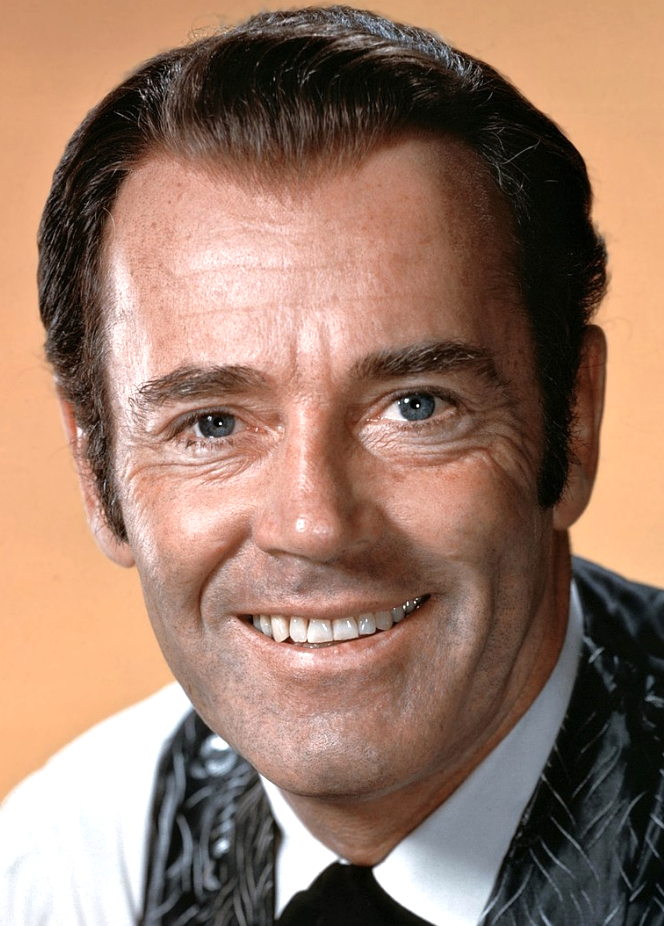
On this date in 1905, actor Henry Jaynes Fonda, the oldest of three children, was born in Grand Island, Neb., to William Brace Fonda and Herberta Krueger Jaynes. Although raised as a Christian Scientist, according to his biography, Fonda: My Life, written by Howard Teichmann in collaboration with Fonda, “[Fonda] claims to be an agnostic. Not an atheist but a doubter.” “My father was an agnostic,” wrote Jane Fonda in her autobiography, My Life So Far (2005).
Although he studied journalism in college, Fonda quit school and worked briefly in sales. At 20, Fonda started acting at the Omaha Community Playhouse. Between 1926 to 1934 he was in a myriad of theatrical productions before finally making his Hollywood debut in 1935, where his career took off. Fonda was nominated for an Academy Award for his performance in “The Grapes of Wrath” (1941). He won a Tony Award for his part as a junior officer in “Mister Roberts” (1948).
In 1957 he acted in and produced “12 Angry Men,” for which he shared the Academy Award and Golden Globe nominations with co-producer Reginald Rose, also winning the BAFTA Award for Best Actor for that film. Fonda was nominated for an Emmy for the TV movie adaptation of John Steinbeck’s novel, “The Red Pony” (1973). Returning to Broadway in 1974, he was nominated for a Tony Award for his riveting performance in the one-man show “Clarence Darrow.”
Although failing in health, Fonda continued acting in both TV and film, winning the Cecile B. DeMille Award for Lifetime Achievement in 1980. In 1981, he received a Lifetime Achievement Award from the Academy, as well as Best Actor for his performance in “On Golden Pond.” He also picked up the Golden Globe award for Best Motion Picture Actor for that movie. Making more than 100 films during his lifetime, Fonda was best known for his roles as the plain-speaking idealist. He was the father of three children, Jane and Peter Fonda, and their younger sister, Amy, and was the grandfather of actress Bridget Fonda. (D. 1982)
PHOTO: Fonda in a 1959 studio publicity shot for the movie “Warlock.”
“There had never been any renunciation of religion on my part, but like so many people, it was a gradual fading away.”
— Fonda, quoted in "Fonda: My Life" by Howard Teichmann (1981)
Joan Collins
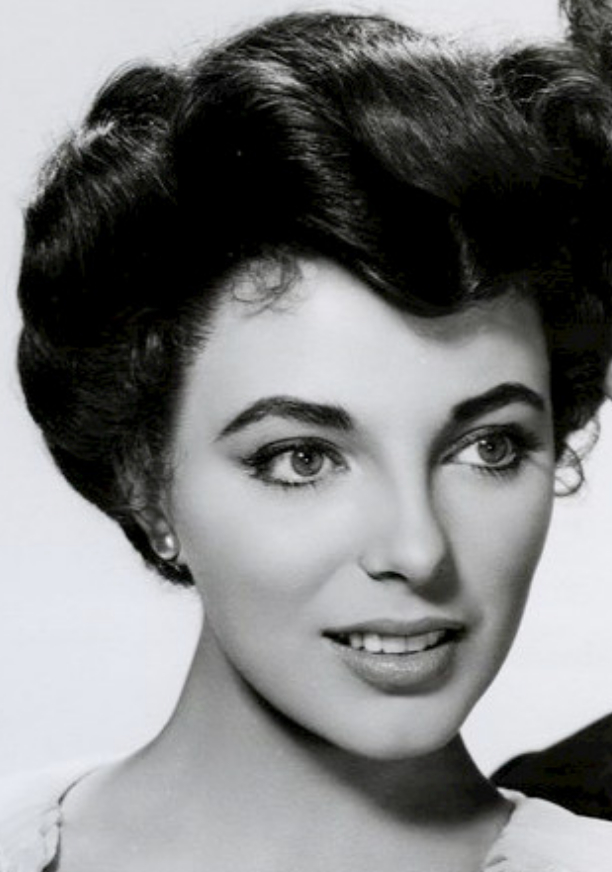
On this date in 1933, actress and writer Joan Henrietta Collins was born in London to Elsa (Bessant) and Joseph Collins, respectively a British dance teacher/nightclub hostess and a talent agent from South Africa. After debuting on the stage at age 9 in Ibsen’s “A Doll’s House,” she trained at the Royal Academy of Dramatic Art.
Her movie debut was as a beauty contest entrant in “Lady Godiva Rides Again” (1951), followed by significant roles in other films, including a 1953 top billing in “Our Girl Friday.” After moving to Hollywood at age 22, her performance in “Land of the Pharaohs” (1955) led to a contract with 20th Century Fox and roles in several successful films in the ’50s and early ’60s, when she started appearing in television productions.
After returning to Britain to act and later going back to Hollywood, Collins’ portrayal of Alexis Carrington on the ABC-TV series “Dynasty” from 1981-89 led to a Golden Globe in 1982 and a star on the Hollywood Walk of Fame the next year. It was the most-watched show in 1984-85. She continued to appear in films, on the stage and on TV into the 2000s. She also became a successful writer of fiction and nonfiction books. (Her sister was the late romance novelist Jackie Collins.)
A political conservative, she became a regular columnist with The Spectator, a British weekly, in the late ’90s and contributed to numerous other U.S. and British publications. She was named a dame, the female equivalent of a knight, by Queen Elizabeth II in 2015 for her charitable works. Collins has married five times, most recently to Percy Gibson in 2002. He’s 31 years younger. Collins has three children.
PHOTO: Collins in 1956 during filming of “The Girl in the Red Velvet Swing.”
“I’m not a religious person, nor am I an atheist. I’m more of an agnostic, really. But I was raised with Christian values by a Church of England mother to the amusement of my Jewish father and my ‘hovering Buddhist’ uncle George, who’d been in a Japanese concentration camp. I was told that I could choose my own religious beliefs ‘when I grew up.’ ”
— Collins' column in The Spectator magazine (Dec. 12, 2015)
Sir Ian McKellen
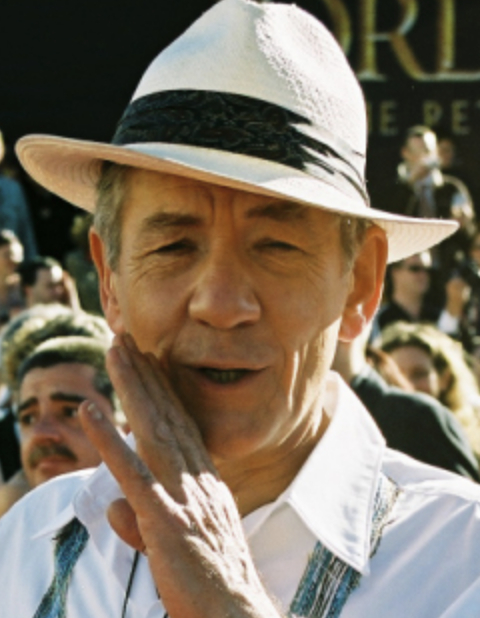
On this date in 1939, Ian Murray McKellen was born in Burnley, Lancashire, England. At 18, McKellen won a scholarship to Cambridge, where he read English and participated in student drama. He graduated in 1961 and began working as an actor. Most of McKellen’s early acting career took place on the stage, both in the UK and on Broadway, but he also worked in film and television in the UK.
In 1980 McKellen received the Tony Award for Best Actor for his stage role as Salieri in “Amadeus.” In the 1990s he started to work in Hollywood films.
McKellen has been nominated for two Oscars, once for Best Actor in 1999 for his role as film director James Whale in “Gods and Monsters,” and once for Best Supporting Actor in 2002 for the role of the wizard Gandalf in “The Fellowship of the Ring,” a role for which he won the Screen Actor’s Guild Award. McKellen played Gandalf in all three “Lord of the Rings” movies and reprised the role in the “The Hobbit: An Unexpected Journey” (2012).
He has also played the comic-book villain Magneto in the movies “X-Men” (2000), “X2” (2003), and “X-Men: The Last Stand” (2006). McKellen’s classical acting career includes playing many Shakespearean leads, both for stage and screen. In 1995 he famously played the lead in the film “Richard III,” set in an alternate fascist England, and in 2007, he played King Lear in a stage production that toured the world and was shown on American TV.
McKellen is open about his personal atheism but does not often speak on the subject. He came out as a gay man publicly in 1988 and became a founding member of the UK LGBT advocacy group Stonewall to advocate against discriminatory legislation. McKellen was made a Commander of the Order of the British Empire in 1979 and was knighted in 1991 for his contributions to theater. In 2008 he was made a Companion of Honor for his services to drama and equality.
PHOTO: McKellen at “The Return of the King” premiere in 2003; Stefan Servos photo under CC 3.0.
Matt Lauer: There have been calls from some religious groups. They wanted a disclaimer at the beginning of this movie saying it is fiction because, again, one of the themes in the book really knocks Christianity right on its ear. … How would you all have felt if there was a disclaimer at the beginning of the movie?
— McKellen interview on "The Today Show" about "The Da Vinci Code" (May 17, 2006)
Ian McKellen: Well, I’ve often thought the bible should have a disclaimer in the front saying this is fiction. I mean, walking on water, it takes an act of faith. And I have faith in this movie. Not that it’s true, not that it’s factual, but that it’s a jolly good story. And I think audiences are clever enough and bright enough to separate out fact and fiction, and discuss the thing after they’ve seen it.
Marilyn Monroe
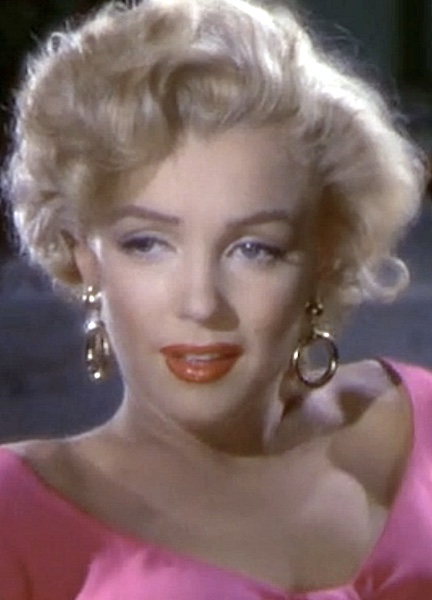
On this date in 1926, Norma Jeane Mortenson (later baptized Norma Jeane Baker, who would become immortalized as Marilyn Monroe) was born in Los Angeles. Monroe never knew her father, and her mother, Gladys, practiced Christian Science and was institutionalized for psychiatric problems. Her grandmother, Della Monroe, had Monroe baptized in the Foursquare Gospel Church. She spent time in various foster care homes and orphanages, some of which were religious, but from 1937 to 1942, was mostly raised by family friends, the Goddards.
When the Goddards left Los Angeles, they didn’t take Monroe, 16, with them. Faced with a return to foster care, she married her boyfriend Jimmy Dougherty. He was sent with the Merchant Marine to the South Pacific and Monroe started working as a model. After Dougherty returned in 1946, the couple divorced over disagreements about Monroe’s career.
That year, the 20-year-old signed her first film contract and started using her stage name. Her first critical and popular exposure occurred in 1950, for her roles in “The Asphalt Jungle” and “All About Eve.” Her breakout starring role was in “Niagara” (1953), and that same year she starred in “Gentlemen Prefer Blondes” and “How to Marry a Millionaire.” Also in 1953, Monroe was the cover girl and centerfold for the first issue of Playboy magazine.
In January 1954 she married baseball legend Joe DiMaggio, whom she had been dating for two years. They divorced later that same year after a fight on the set of “The Seven-Year Itch.” She then studied with Lee Strasberg at the Actors Studio in New York and started dating playwright Arthur Miller, whom she married in 1956. Monroe starred in the dramatic comedy “Bus Stop” in 1956. In 1959 she received a Golden Globe for Best Actress in a Comedy for her role in “Some Like It Hot.”
Monroe’s last completed film, “The Misfits,” was written for her by Miller. The couple had split soon after filming finished in 1961. Monroe was fired from the film “Something’s Got to Give” (1962), and on August 5 of that year was found dead of a sleeping pill overdose. The death was ruled a probable suicide.
On a call-in panel commemorating her death, her friend Jeanne Carmen said of Monroe, “I don’t think she had a religion. We never talked religion.” Another panelist on the show, James Bacon — one of her purported lovers — confirmed that to his knowledge, Monroe did not attend church. (CNN, Aug. 5, 2003.) When she married Miller, Monroe converted to Judaism and the two were wed with both civil and religious ceremonies. The rabbi who converted her said, “She was impressed with the rationalism of Judaism — its ethical and prophetic ideals and its concept of close family life.” (Philadelphia Examiner, March 6, 2010.) D. 1962
PHOTO: Monroe in a publicity shot for “Niagara” in 1953.
“Jane tried to convert me [to religion] and I tried to introduce her to Freud.”
— Monroe, on starring with Jane Russell in "Gentlemen Prefer Blondes," from Russell's obituary (Reuters, March 1, 2011)
Angelina Jolie
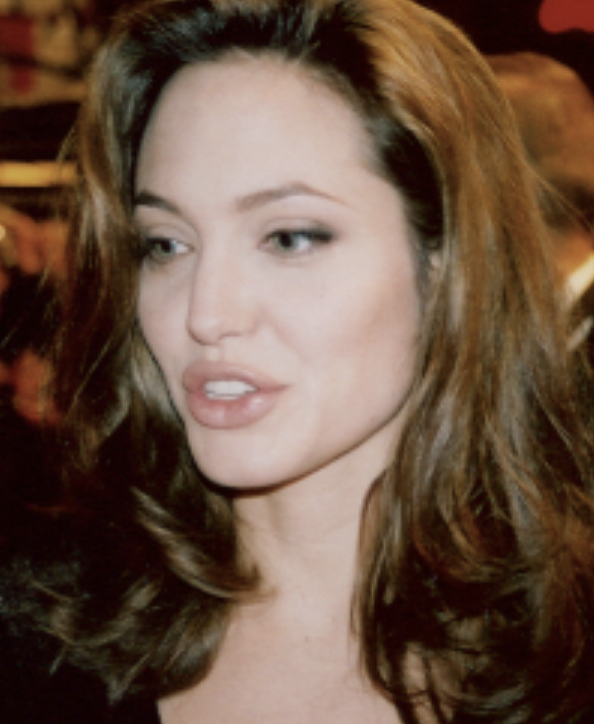
On this date in 1975, Angelina Jolie (née Angelina Jolie Voight) was born in Los Angeles to actor Jon Voight and Marcheline Bertrand. She majored in film at New York University and trained at the Lee Strasberg Theatre Institute as a youth. Jolie has been in almost 40 films to date, including an Oscar-winning performance in “Girl, Interrupted” (1999). Others that were critically acclaimed and became box office hits include “Beyond Borders” (2003), “Lara Croft: Tomb Raider” (2001, sequel 2003), “Changeling” (2008) and “A Mighty Heart” (2007).
Jolie has gained a reputation as a bold and controversial actress, especially for her roles in “Foxfire” (1996) and “Gia” (1998). She earned a Best Actress Oscar nomination for “The Changeling.” Her biggest commercial success to date is the fantasy picture “Maleficent” (2014). In the 2010s she expanded into directing, screenwriting and producing with the war dramas “In the Land of Blood and Honey” (2011), “Unbroken” (2014) and “First They Killed My Father” (2017).
Jolie serves as a Goodwill Ambassador for the United Nations High Commissioner for Refugees. She has traveled extensively to war-torn, impoverished countries, including Sierra Leone, Tanzania and Pakistan. At age 37 she had a double preventive mastectomy after learning she had an 87% chance of developing breast cancer. She had a 12-year relationship (including marriage) and several biological and adopted children with actor Brad Pitt. They divorced in 2019.
Jolie at the 2004 premiere of “Alexander” in Cologne. Photo by Stefan Servos. Creative Commons Attribution-Share Alike 3.0
“For the people who believe in it, I hope so. There doesn’t need to be a God for me.”
— Jolie, responding to the question "Is there a God?" The Onion A.V. Club (Sept. 6, 2000)
Harvey Fierstein
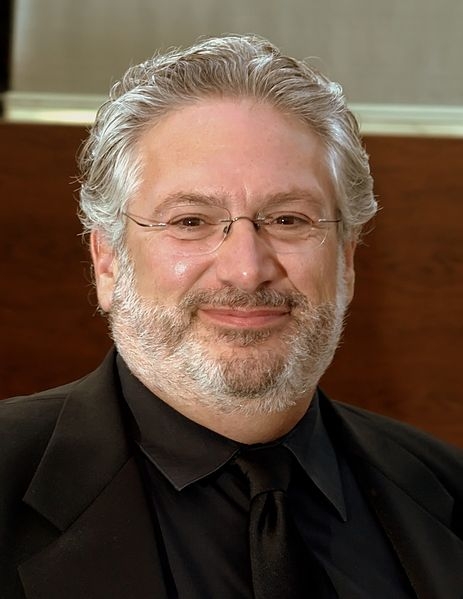
On this date in 1952, actor, comedian, playwright and LGBT activist Harvey Forbes Fierstein was born in Brooklyn, N.Y. He debuted in the Andy Warhol play “Pork” in 1971. He has since been in over 60 off-off-Broadway plays, including his own productions. One of his three-act plays, “The Torch Song Trilogy,” in which he played a gay man, opened off-off-Broadway in 1980, transferred to Broadway and won Fierstein two Tony Awards, an Obie, a Dramatist Guild Award, two Drama Desk Awards and a nomination for the prestigious Laurence Olivier Award.
The hugely successful play was made into a movie in 1988, with Fierstein writing the screenplay and co-starring with Matthew Broderick and Anne Bancroft. He earned his third Tony for his book of the musical “La Cage aux Folles.” He picked up a fourth Tony for his portrayal of Edna Turnblad in the Broadway version of “Hairspray” (2003).
In addition to his theater work, Fierstein is a popular face (and voice) in films, including such hits as “Mrs. Doubtfire” (1993), “Bullets Over Broadway” (1994), “Independence Day” (1996), “Death to Smoochy” (2002) and “Duplex” (2003), which starred Ben Stiller and Drew Barrymore. His trademark voice has lent its popularity to TV shows like “The Simpsons,” “How I Met Your Mother” and “Family Guy” and animated movies such as Disney’s “Mulan” (1998), “Kingdom Hearts II” (2005) and “Farce of the Penguins” (2006). He won an Emmy for narrating the documentary “The Times of Harvey Milk” (1984).
Fierstein is a leading gay rights activist and has consistently made his views on religion known. In an interview about playing Tevye in the Broadway revival of “Fiddler on the Roof,” when asked if he was generally religious, Fierstein said: “No, but I am Jewish. … I don’t believe in God, I don’t believe in heaven or hell.”
In a 2022 People magazine interview, Fierstein stated, “I’m still confused as to whether I’m a man or a woman,” and said that as a child he often wondered if he’d been born in the wrong body. “When I was a kid, I was attracted to men. I didn’t feel like a boy was supposed to feel. Then I found out about gay. So that was enough for me for then.”
PHOTO: by David Shinbone photo under CC 3.0.
“We are lucky enough to be living in a country that not only guarantees the freedom to practice religion as we see fit, but also freedom FROM religious zealots who would persecute and prosecute and even physically harm those of us who do not believe as they do. … Predicating patriotism on a citizen’s belief in God is as anti-American as judging him on the color of his skin. It is wrong. It is useless. It is unconstitutional.”
— Fierstein, "In the Life" broadcast by Generation Q (November 2004)
Natalie Portman
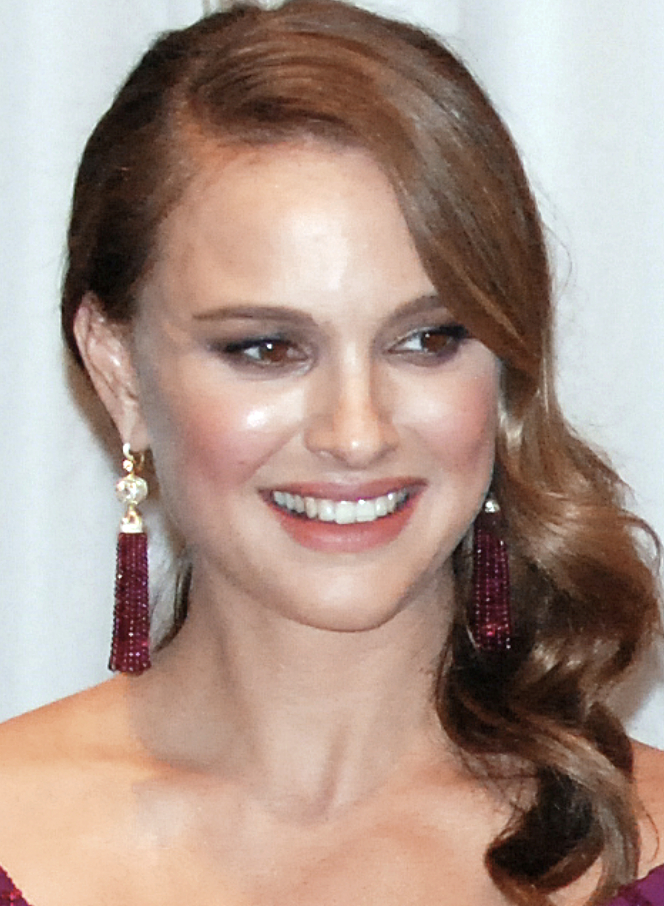
On this date in 1981, actress Natalie Hershlag (stage name Natalie Portman) was born in Jerusalem, Israel. Portman’s ancestors were Austrian, Russian, Polish and Romanian Jews. Some emigrated to Israel and others died in Auschwitz. Portman’s parents met in the U.S. at Ohio State University. When she was 3 they moved to Washington, D.C., where her father earned a medical degree and became a fertility specialist.
Starting at age 13, Portman landed roles in several popular films, including “The Professional” (1994), “Heat” (1995), “Beautiful Girls” (1996), “Mars Attacks!” (1996) and the musical “Everyone Says I Love You” (1996).
She gained international fame for playing Queen Amidala/Padmé in “Star Wars: Episode I” (1999) and had to skip the premiere to take her high school final exams. Portman reprised that role in “Star Wars” sequels in 2002 and 2005 and had powerful roles in hit films such as “Anywhere but Here” with Susan Sarandon (1999), “Where the Heart Is” (2000), “Cold Mountain” (2003), “V for Vendetta” (2006), “The Other Boleyn Girl” (2008), “Brothers” (2009) and “Black Swan” (2010), for which she won the Best Actress Golden Globe (2011) and the Best Actress Academy Award (2011). She won her first Golden Globe for her role in the 2004 hit film “Closer,” for Best Supporting Actress.
Portman, who has had several papers published in scientific journals, graduated with a degree in psychology from Harvard in 2003. In addition to her screen work, she is an accomplished stage actress, performing in “The Seagull” at the New York City Public Theater alongside Meryl Streep and Philip Seymour Hoffman (2001), and playing Anne Frank in the Broadway adaptation of “The Diary of Anne Frank” (1997).
Continuing to act and produce films in the 2010s, Portman was Oscar-nominated for her portrayal in “Jackie” (2016) of Jacqueline Kennedy after JFK’s death. She played a troubled pop star in the 2018 drama “Vox Lux,” for which she received praise.
Portman speaks Hebrew and has dual U.S.-Israel citizenship. In 2012 she married Benjamin Millepied, a French ballet dancer and choreographer whom she met on the set of “Black Swan.” They have a son, Aleph, born in 2011, and a daughter, Amalia, born in 2017.
PHOTO: Portman at the 2011 Academy Awards in Hollywood, Calif.
“I’m much more like the product of a doctor than I am a Jew. I don’t believe in [an afterlife]. I believe this is it, and I believe it’s the best way to live.”
— Rolling Stone magazine interview, "The Private Life of Natalie Portman" (June 20, 2002)
Hugh Laurie
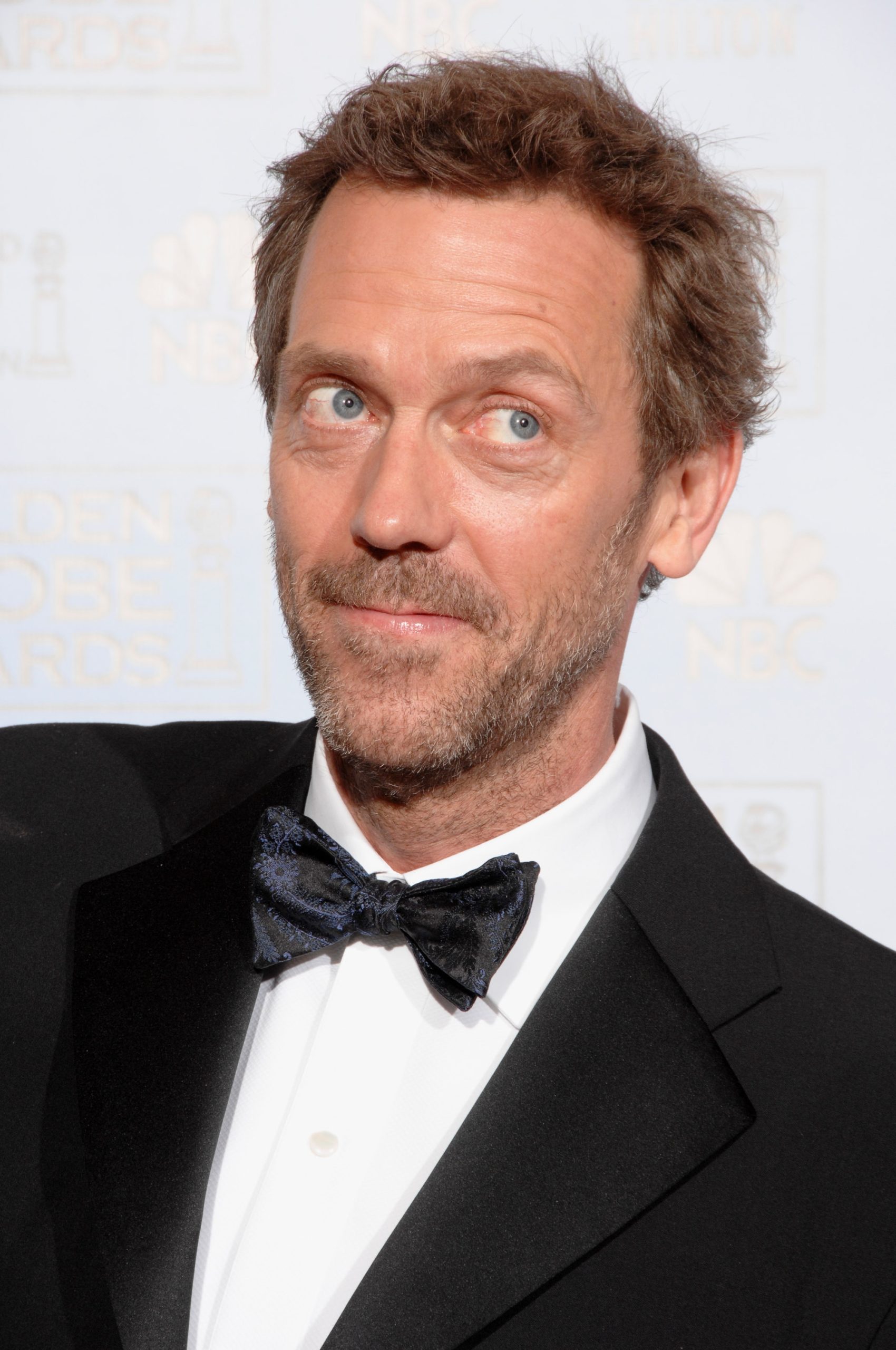
On this date in 1959, James Hugh Calum Laurie was born in Oxford, England. Laurie attended Eton College, where he competed in rowing, and later attended Cambridge University, where he studied anthropology. At Cambridge, Laurie joined Footlights, the student comedy society, where he met future collaborators Emma Thompson and Stephen Fry. He graduated in 1981 from Selwyn College with a degree in anthropology and archaeology.
After graduation he worked on a variety of comic television projects and had a recurring role in the third and fourth seasons of the popular sitcom “Blackadder” (1983-89). He and Fry wrote and starred in the sketch comedy series “A Bit of Fry and Laurie” (1987-95). Laurie also starred opposite Fry in the series “Jeeves and Wooster” (1990-93), adapted from P.G. Wodehouse‘s novels. (Laurie played the bumbling Bertie Wooster and Fry played the butler, Jeeves.)
Notable screen roles have included “Sense and Sensibility,” (1995) with Thompson and Imogen Stubbs, a frequent co-star. Laurie, whose father was a physician, is perhaps best known for his starring role on the U.S. drama series “House, M.D.” (2004-12). On “House” he played an infectious disease specialist and brilliant diagnostician. In a significant departure from the upper-class British characters he has played throughout most of his career, House has an American accent.
Laurie was raised Scottish Presbyterian and now identifies as an atheist. He once told The Times of London, “I admire the music, buildings and ethics of religion, but I come unstuck on the God thing.” (March 29, 2008) He and his wife, theater administrator Jo Green, have been married since 1989. They have three children. In 2011 he released an album of blues music recorded in New Orleans, entitled “Let Them Talk.” Laurie did vocals and piano on the album.
James Lipton: Do you share House’s skepticism?
— Laurie interview, “Inside the Actors Studio,” Bravo TV (July 31, 2006)
Hugh Laurie: [laughing] I do. Big chunks of it, yes. I’m not a religious man. Again, I think this is connected to my father. My father was religious oddly enough, but I nonetheless I suppose was impressed by [and] enamored of his devotion to medical science. I find I am a fan of science. I believe in science.”
Gene Wilder
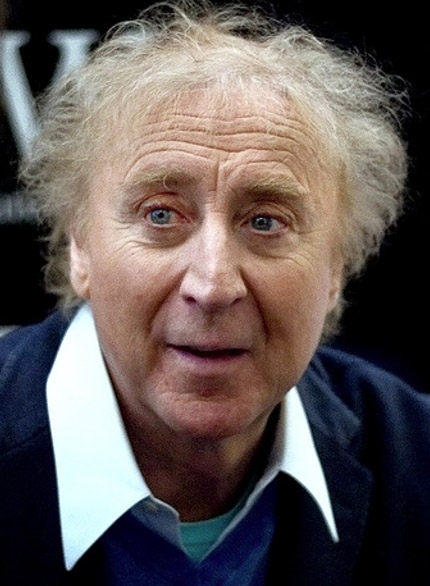
On this date in 1933, actor Gene Wilder (né Jerome Silberman) was born in Milwaukee to Jeanne (Baer) and William Silberman, a Russian-Jewish immigrant. As an adult, Wilder would call himself a “Jewish-Buddhist atheist.” His mother was stricken with rheumatic fever when Wilder was 8 and remained in ill health, which was said to give impetus to his comedic talents as he tried to cheer her up on doctor’s orders. He was involved in local and high school theater and studied communication and theater arts at the University of Iowa and the Stanislavski method in New York City while serving in the U.S. Army. He married Mary Mercier in 1960, the first of four wives.
After several roles on the stage (his stage name came from Gene Gant, the hero of Thomas Wolfe’s Look Homeward Angel, and playwright Thornton Wilder, whose “Our Town” was his favorite play), he made his movie debut in 1967 in “Bonnie and Clyde,” which led to a stellar career in the film industry and iconic, usually eccentric and neurotic roles, often in collaboration with Mel Brooks, in “The Producers,” “Young Frankenstein,” “Blazing Saddles” and “Willy Wonka & the Chocolate Factory.” He later co-starred with Richard Pryor in four movies, the last of which, 1991’s “Another You,” was his final appearance in a feature film.
Wilder also produced and directed movies and wrote screenplays and several books. With oncologist Steven Piver, he wrote Gilda’s Disease (1998), which chronicled his life with his third wife and co-star Gilda Radner, who died in 1989 of ovarian cancer. After marrying speech pathologist Karen Boyer in 1991, he wrote a memoir, Kiss Me Like a Stranger: My Search for Love and Art, a collection of stories titled What Is This Thing Called Love? and three novels. He died of complications from Alzheimer’s on Aug. 29, 2016.
“I’m going to tell you what my religion is. Do unto others as you would have them do unto you. Period. Terminato. Finito. I have no other religion. I feel very Jewish and I feel very grateful to be Jewish. But I don’t believe in God or anything to do with the Jewish religion.”
— "Stars of David: Prominent Jews Talk About Being Jewish," Abigail Pogrebin (Oct. 25, 2005)
Meryl Streep
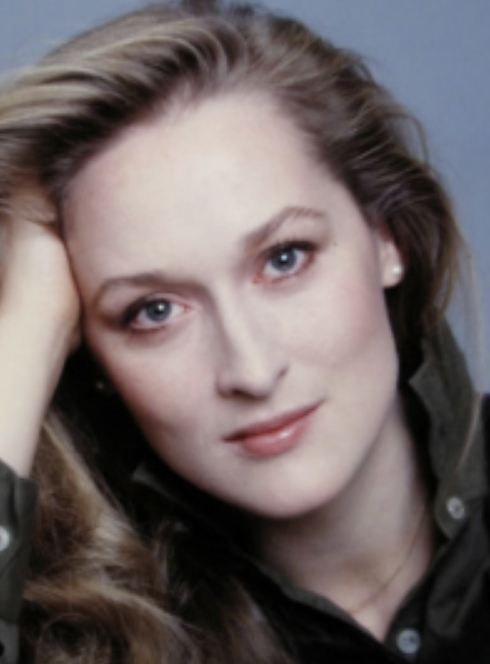
On this date in 1949, Meryl Streep (née Mary Louise Streep) was born in Summit, N.J. Her Presbyterian parents, a commercial artist mother and pharmaceutical executive father, allowed her to attend Catholic Mass because many of her friends were Catholic. Streep dreamed of being an opera singer but gravitated to acting in high school when she received a standing ovation for playing the librarian in “The Music Man” at her school, where she was homecoming queen.
Streep studied drama and English at Vassar, graduating in 1971. She then studied at Dartmouth and Yale, performing in over 30 Yale Repertory Theatre productions (along with Sigourney Weaver) and graduated with a master’s in 1975. She had a small but attention-grabbing role in her first film, “Julia” (1977), which starred Jane Fonda and Vanessa Redgrave. Streep earned her first Oscar nomination for “The Deer Hunter” in 1978.
She holds the record for actress with the most Oscar nominations (21, as of 2019) and has won Best Actress twice (for “Sophie’s Choice” in 1982 and “The Iron Lady” in 2011, playing Margaret Thatcher). She won Best Supporting Actress in 1979 in “Kramer vs. Kramer.” She has won five Best or Best Supporting Actress Golden Globes. A versatile actress, she has played roles in almost every genre, from musical to drama to comedy.
Streep married sculptor Don Gummer in 1978 and they have four children. She identifies as a political liberal and has supported many causes over the years, including the Elton John AIDS Foundation, Americans for the Arts, Equality Now and Stand Up to Cancer.
When her movie “Doubt” (2008) debuted, she faced numerous questions on her religious views. “Doubt is our friend,” she told the London Telegraph. “And once you tip the scales in one direction or another it’s very, very dangerous.” (“Meryl Streep: mother superior,” Dec. 4, 2008.)
PHOTO: Streep in 1979; public domain photo by Jack Mitchell
“I follow no doctrine. I don’t belong to a church or a temple or a synagogue or an ashram.”
— Streep, asked if religion plays a part in her life, The Independent (Jan. 24, 2009)
Ricky Gervais
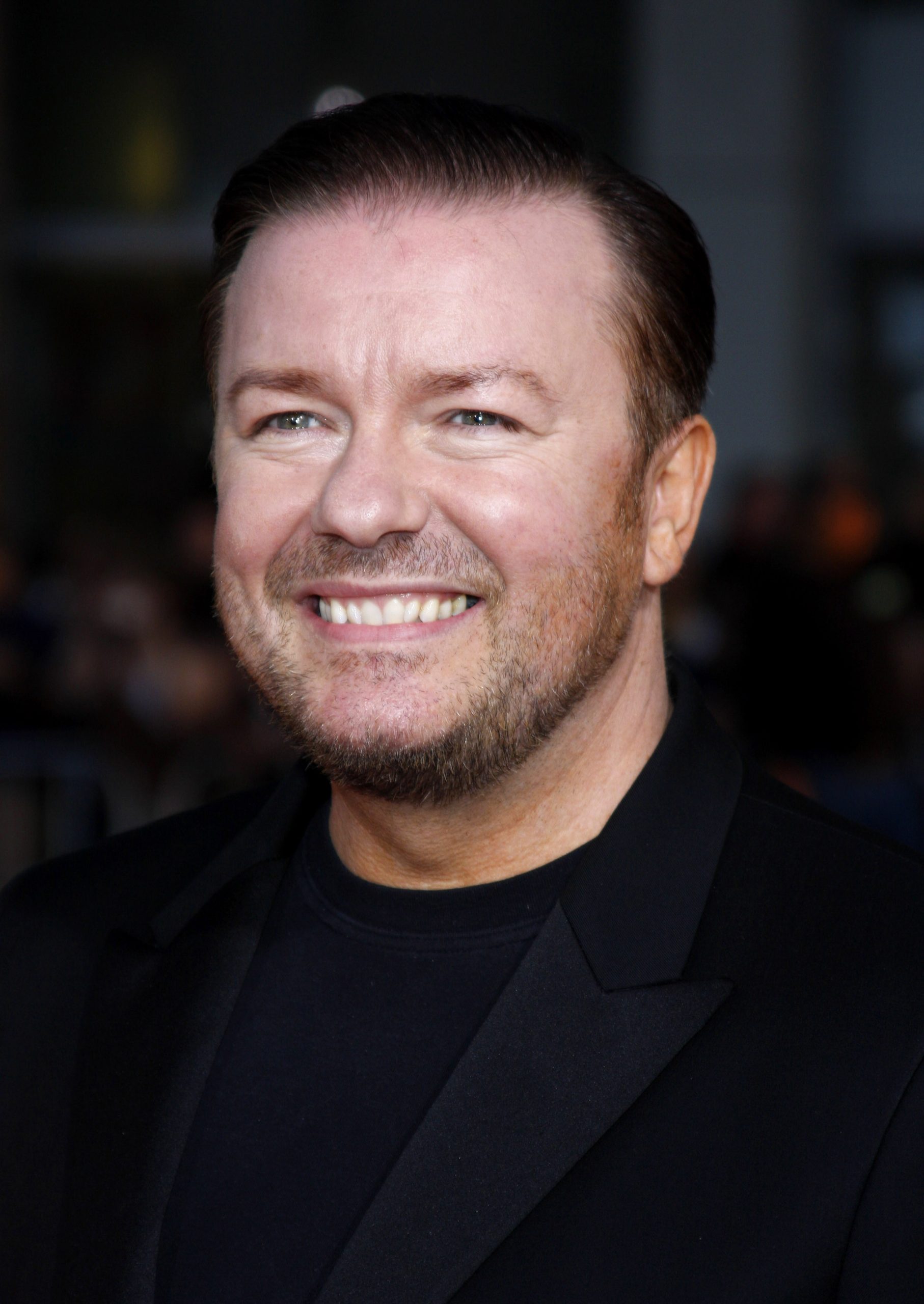
On this date in 1961, Ricky Dene Gervais, was born. He makes TV shows and books and movies, but mostly he makes people laugh, and he makes them think, freely. (He’s an Honorary Associate of the National Secular Society and decided as a child that he was an atheist.) He grew up 40 miles west of London, England, in Reading, to working-class parents. He graduated from University College-London with a degree in philosophy and then worked in radio.
What eventually brought him fame were his television series “The Office,” which debuted in 2001, and “Extras,” in 2005. He co-wrote and co-directed both with Stephen Merchant, his friend and frequent collaborator. Gervais also played the lead roles of David Brent in “The Office” and Andy Millman in “Extras.” “The Office” was remade for audiences in France, Germany, Quebec and the U.S., where “Extras” premiered on HBO in 2005.
He played leading roles in the movies “Ghost Town,” “The Invention of Lying” and “Night at the Museum.” He’s had soldout standup comedy tours, wrote the best-selling “Flanimals” book series and starred with Merchant and Karl Pilkington in his podcast of “The Ricky Gervais Show.” He has been with his partner Jane Fallon since 1982.
He’s received two Golden Globes for “The Office” (one for acting, one for the show itself), as well as numerous British Academy Television Awards and British Comedy Awards. He won a 2007 Emmy Award for Outstanding Lead Actor in a Comedy Series for his role in “Extras.” In a conversation with Richard Dawkins, he explained how he became an atheist, recounting an afternoon at home when he was about 8. His mother was ironing and he was drawing Jesus on the cross as part of his bible studies homework.
His brother, Bob, 11 years older than Ricky, asked him why he believed in God, a question which mortified their mother. Gervais remembered thinking, “Why was that a bad thing to ask? If there was a god and my faith was strong, it didn’t matter what people thought. Oh … hang on. There is no God. He knows it, and she knows it deep down. It was as simple as that. I started thinking about it and asking more questions, and within an hour I was an atheist.”
Gervais hosted the Golden Globes award ceremony for a record fifth time in 2020. In 2011 he irreverently ended the show by saying, “Thank God I’m an atheist.”
“It’s always better to tell the truth. The truth doesn’t hurt, and saying that, my mother only ever lied to me about one thing. She said there was a God. But that’s because when you’re a working-class mum, Jesus is like an unpaid babysitter. She thought if I was God-fearing, then I’d be good.”
— "Inside the Actors Studio," Bravo TV (Jan. 12, 2009)
Nick Offerman
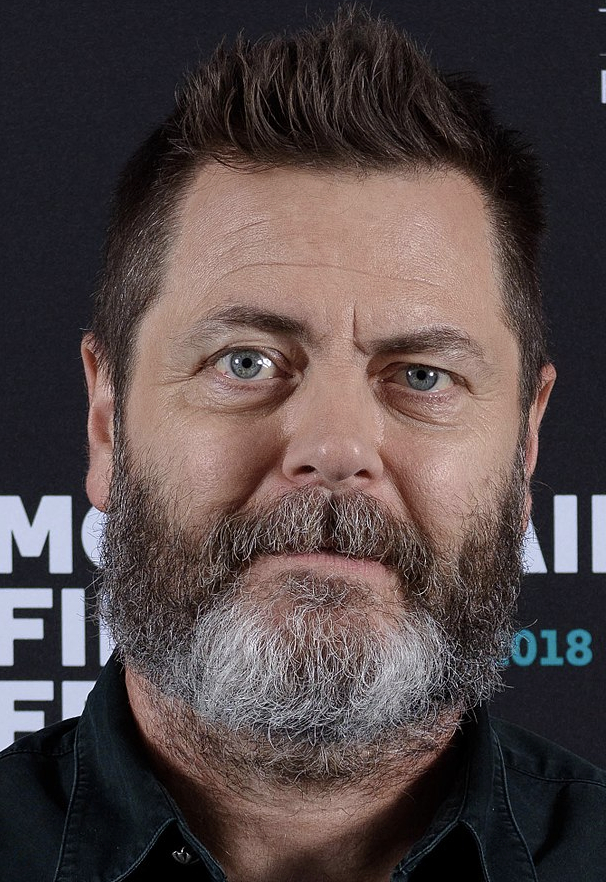
On this date in 1970, actor and writer Nicholas Offerman was born in Joliet, Ill., the son of Cathy (née Roberts), a nurse, and Ric Offerman, a social studies teacher. Raised Catholic, he earned a B.F.A. degree from the University of Illinois at Urbana–Champaign and then participated in Chicago-area theater companies while working as a master carpenter. He became acquainted with Amy Poehler, who was heavily involved with the Chicago improv comedy scene.
He married “Will & Grace” actress Megan Mullally in 2003 and began appearing in TV roles. In 2007 he co-starred in the Comedy Central series “American Body Shop.” In 2009 he was offered a regular supporting role in the NBC sitcom “Parks and Recreation” starring Poehler. Offerman played Ron Swanson, the deadpan, government-hating, libertarian head of a city parks department. The series ran until February 2015.
His next major TV role was as Karl Weathers in the FX series “Fargo,” scheduled to begin production of its fourth season in 2019. Offerman has also been featured in the Adult Swim series “Childrens Hospital” with Rob Corddry and Rob Huebel. He was voice of Axe Cop in the animated series of the same name.
He had roles in the movies “November” (2004), “Cursed” (2005), “Miss Congeniality 2: Armed and Fabulous” (2005), “Sin City” (2005), “The Men Who Stare at Goats” (2009), “21 Jump Street” (2012), “The Kings of Summer” (2013), “We’re the Millers” (2013) and “22 Jump Street” (2014). He portrayed the first establisher of McDonald’s restaurants, Dick McDonald, in “The Founder” (2016).
Offerman has published three semi-autobiographical books: Paddle Your Own Canoe: One Man’s Fundamentals for Delicious Living (2013), Gumption: Relighting the Torch of Freedom with America’s Gutsiest Troublemakers (2015) and Good Clean Fun: Misadventures in Sawdust at Offerman Woodshop (2016).
In an interview with GQ magazine in June 2017, he was asked if he’s a libertarian like his character Ron Swanson. He answered, “While I admire the philosophy of the libertarian mindset, I think it’s proven to be ineffectual in actual governance. So no, I’m not. I’m a free-thinking American.”
Photo by David Hubelbank / Montclair Film.
“I would also just like to point out that there are no scientists handing out any brochures on any street corners, hoping to convince people that their version of creation is actually true. The scientists are at the pub watching a sporting match of ‘footie’ whilst enjoying a pint with their mates. The difference between their relative confidence and your uncertainty, Bible-brochure-hander-outers, is that they can prove the facts of science (to put it very simply), and you can’t prove the first phrase of your claims.”
— Offerman, "Gumption: Relighting the Torch of Freedom with America's Gutsiest Troublemakers" (2015)
Lalla Ward
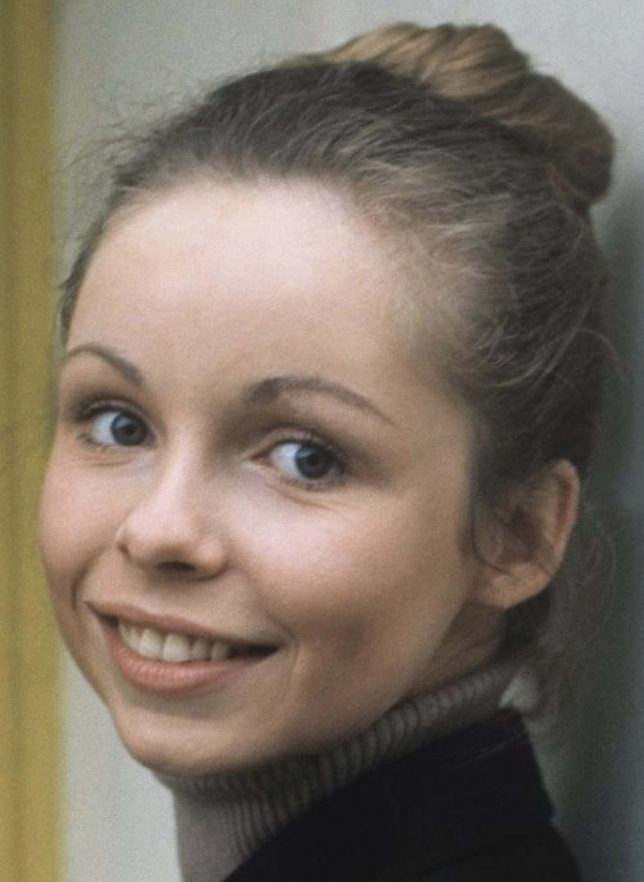
On this date in 1951, Sarah “Lalla” Ward was born in London to Edward Ward, 7th Viscount Bangor, and his fourth wife, Marjorie Alice Banks. The name Lalla comes from her attempts as a toddler to pronounce her first name. She studied drama at the University of London’s Central School of Speech and Drama, where she graduated in 1971.
She has had a successful acting career, which included playing Ophelia in the 1980 movie “Hamlet, Prince of Denmark.” She also starred as the doctor’s companion, Romana, in the popular TV show and longest running sci-fi series “Doctor Who” from 1979-81.
Ward was married to atheism advocate and evolutionary biologist Richard Dawkins. They wed in 1992 after being introduced by mutual friend Douglas Adams, the author of “The Hitchhiker’s Guide to the Galaxy.” They jointly announced an “entirely amicable” separation in 2016. Ward has written three books, two on knitting and one on embroidery, and her artwork has also been featured in calendars. She also illustrated many of Dawkins’ books.
PHOTO: A young Lalla Ward, date unknown.
“We are both strongly non-religious, and we have similar views on what’s important in life.”
— Richard Dawkins in “How We Met: Richard Dawkins and Lalla Ward” (The Independent, June 19, 1994)
Amanda Donohoe
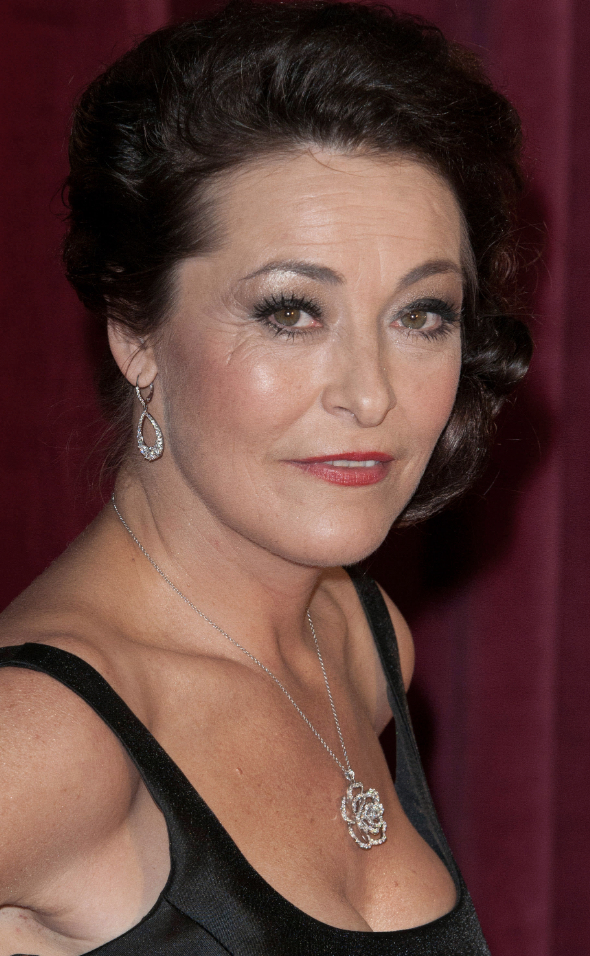
On this date in 1962, Amanda Donohoe was born in London. She attended the Francis Holland School before leaving home at 16, and she later graduated from Central School of Speech and Drama in 1984. Donohoe began her career in 1981 by starring in music videos. In 1986, she played a major role in the drama Castaway, and has since appeared in numerous films including “Paper Mask” (1990) and “Liar Liar” (1997).
She is known for her role as bisexual lawyer C.J. Lamb on “L.A. Law” from 1990 to 1992, which earned her a Golden Globe Award in 1992 for Best Performance by an Actress in a Supporting Role. She has also appeared in “Frasier,” “Bad Girls,” and in the British soap opera “Emmerdale.” Donohoe was nominated for an Outer Critics Circle Award in 1995 for her performance in Broadway play “Uncle Vanya.”
In 1995, Donohoe played a pagan character in the horror film “Lair of the White Worm,” which involved a scene in which she spit venom onto a crucifix. “I’m an atheist, so it was actually a joy,” Donohoe told Interview magazine. “Spitting on Christ was a great deal of fun.”
PHOTO: Donohoe arriving in Manchester for the 2013 British Soap Awards. Photo via Shutterstock by Featureflash Photo Agency.
“I can’t embrace a male god who has persecuted female sexuality throughout the ages, and that persecution still goes on today all over the world.”
— Donohoe in Interview magazine (celebatheists.com)
Kay Nolte Smith
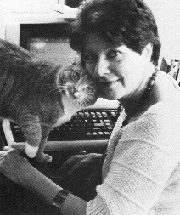
On this date in 1932, Kay Nolte Smith was born in Minnesota. She received her B.A. from the University of Minnesota in 1952 and her master’s degree in theater and speech from the University of Utah in 1955. She married Philip Smith in 1958. She and her husband went into professional theater, co-producing Ayn Rand’s “Penthouse Legend.” She made TV commercials, performed off Broadway for a decade, joined several faculties as a teacher, then turned her energies to writing. Her first novel, Watcher (1980), won the Edgar Allan Poe award, followed by Mindspell (1983), Country of the Heart (1988) and Tale of the Wind (1991). Mindspell delved into the colonial witch hunts.
After her research for Mindspell, Smith asserted that records of that heinous time should be “mandatory reading in every Sunday school. This is what made me an atheist. Consider how deeply witch craze was rooted in religion. The papal sanction was not abolished for six centuries. How can anyone belong to a church that treated its members this way?” (Feminist Connection interview, December 1983). D. 1993.
“The tragedy is that every brain cell devoted to belief in the supernatural is a brain cell one cannot use to make life richer or easier or happier.”
— Kay Nolte Smith, "Truth or Consequences," speech to the 1983 FFRF national convention
Kevin Bacon
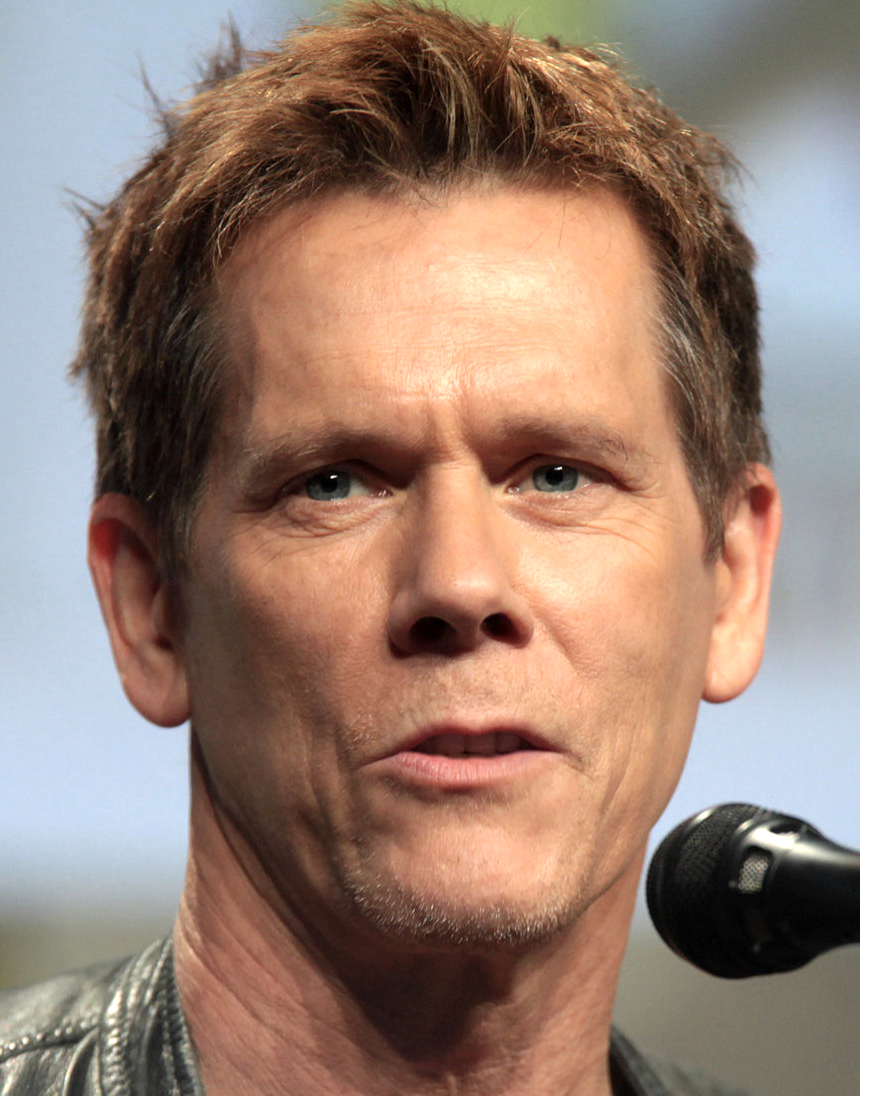
On this date in 1958, actor Kevin Bacon was born in Philadelphia. Bacon was educated at the Circle in the Square theater school in New York City and, after leaving home at 18, the Manning Street Actor’s Theater. At age 20, Bacon debuted as Chip Diller in “Animal House” (1978). Bacon later appeared in a wide range of movies, including “Friday the 13th” (1980), “Diner” (1982), “Footloose” (1984), and “A Few Good Men”(1992). He played atheist character David Labraccio in “Flatliners” (1990).
His prolific acting career is the basis for the trivia game “Six Degrees of Kevin Bacon,” in which players try to connect any person who has appeared in a film to Kevin Bacon through six or less degrees of separation. He has also worked as a director, directing his first film, “Losing Chase,” in 1996. He is a member of the band The Bacon Brothers along with his brother Michael. Bacon and actress Kyra Sedgwick married in 1988 and have two children, Travis, born in 1989, and Sosie, born in 1992.
In a 2005 interview with The Times of London, Bacon said, “I don’t believe in God.” Along with being a nonbeliever, Bacon is passionate about church-state separation. The Bacon Brothers were featured in the 2008 film “Everything You Always Wanted to Know About Separation of Church and State (But Were Afraid to Ask),” in which they performed their song “Children.”
The song speaks out about the harm inflicted on children by religious violence, with lyrics such as “Please don’t hurt the children, please lay down the rod / Please don‘t send your bombs in and say you‘re doing the work of God.” “It has to do with God and war and how they get jumbled up sometimes, and how a lot of times it is the children that suffer from the combination of those two things,” Bacon said during an interview at the time.
PHOTO: Bacon speaking at the 2014 San Diego Comic-Con; Gage Skidmore photo under CC 2.0.
“I think there is a puritanical wind that is blowing. I have never seen such a lack of separation between church and state in America.”
— Bacon, interviewed by The Times of London (2005)
Billy Crudup

On this date in 1968, William Gaither “Billy” Crudup was born in Manhasset, N.Y., to Georgann (née Gaither) and Thomas Henry Crudup III. His parents divorced when he was in junior high and remarried when he was in high school before divorcing again.
Crudup (pronounced CREW-dup) has some distinguished lineage, including a North Carolina congressman, a prominent Florida trial lawyer and an Episcopal bishop step-grandfather. But Crudup, who describes himself as an atheist, said the “distinguished” didn’t extend to his father: “He proclaimed he had great faith, but meanwhile he was a bookie and a conman and a loan shark, so I had kind of a dubious relationship with people of faith.” (The Times of London, May 15, 2017)
His family moved several times, including to Texas and Florida, and it’s been surmised that playing the class clown was a way for the new kid to fit in, along with acting in school plays and developing funny impersonations. After graduating from a Florida Catholic high school, he earned a B.A. from the University of North Carolina at Chapel Hill.
After moving in with a brother, he earned an M.F.A. from New York University’s Tisch School of the Arts in 1994. He joined The Lab! theater troupe and played Schroeder in the children’s musical “You’re A Good Man, Charlie Brown.” He won the Outer Critics Circle Outstanding Newcomer Award for his Broadway performance in Tom Stoppard’s “Arcadia” in 1995.
He won a Tony for Best Featured Actor in a Play in the 2006 Broadway production of Stoppard’s “The Coast of Utopia,” a nine-hour trilogy. By that time he had demonstrated his acting chops in movies, most notably as a ’70s rocker in Cameron Crowe’s “Almost Famous” (2000), hailed by Roger Ebert as the year’s best film.
“A self-described student of human nature, Crudup has said that he looks for characters wrestling with their mistakes.” (Internet Movie Database) Cate Blanchett, who starred with him in “Charlotte Gray” (2001) and “Where’d You Go, Bernadette?” (2019), described the 5-foot-8-inch Crudup as “incredibly intense.” Others have noted his ability to be both charming and dangerous while displaying alpha-male assurance.
“World Traveler” (2001) opposite Julianne Moore bombed at the box office and with critics but ensuing films such as “Big Fish” (2003), “Mission: Impossible III” and “The Good Shepherd” (both in 2006) were successful. Appearing as Joseph Merrick in a 2002 revival of “The Elephant Man” on Broadway wasn’t. It closed after 65 performances. He starred with Javier Bardem and Julia Roberts in “Eat Pray Love” (2010), playing Roberts’ ex-husband.
In “Spotlight” (2015), he played a lawyer representing victims of sexual abuse by clergy in the Catholic Archdiocese of Boston. He called the Boston Globe’s uncovering of decades of abuse “gut wrenching … especially if you have a child.” (The Times of London, May 15, 2017) He played a journalist in “Jackie” (2016), a drama starring Natalie Portman as Jacqueline Kennedy.
In “The Morning Show,” which premiered on Apple TV+ in 2019, he plays a network news executive. The series was renewed for a fourth season in 2023. He won the Emmy for Outstanding Supporting Actor in a Drama Series in 2020 and 2024 for his role.
Crudup was in a relationship with actress Mary-Louise Parker from 1996 to November 2003. Four years older than him, she was seven months pregnant with their son William Atticus Parker (b. Jan. 7, 2004) when he ended their relationship and started dating actress Claire Danes, 11 years his junior. They split in 2006.
Parker was devastated. “I am alone. Look, see? I am pregnant and alone. It hurts to even breathe,” she wrote in a 2015 memoir. (Hello! online, June 14, 2023) They had agreed to put their differences aside “for the sake of the baby” and not engage in a custody battle, Parker’s spokesperson told People magazine in 2004. They teamed up to co-star in one of William’s student films when he was 15.
When Crudup married British actress Naomi Watts in June 2023, Parker told The Guardian: “I wish them well. And absolutely I honestly of course wish them every happiness because that’s my son’s father.” He and Watts started dating after they met on the set of the 2017 Netflix drama series “Gypsy.” It was not renewed for a second season. Rotten Tomatoes critics said the “ludicrous plot trudges along, dragging a talented cast with it.”
He participated in 2023 in the annual Charity Day hosted by the Cantor Fitzgerald Relief Fund in New York City. The fund provides financial support to families impacted by acts of terrorism, natural disasters and other emergencies, including members of the military. It was established by the financial services firm in response to the loss of 658 employees in the World Trade Center attacks on Sept. 11, 2001, and has since raised over $300 million.
PHOTO: Crudup in 2015 at the PEN Gala at the American Museum of Natural History; photo by Beowulf Sheehan/PEN American Center under CC 2.0.
“We’re living in a world with a lot of religious zealotry right now. So it does breed distrust in people who have a faith, a belief system that allows them to do horrific things. For instance, not believe in science. … It does bring up a fear in people when people’s rational minds are silenced by their fundamental belief system. So playing a character who is wrestling with that himself was a very interesting thing.”
— Crudup, on playing a person of faith in "Alien: Covenant" (Arizona Republic, May 16, 2017)
Harrison Ford

On this date in 1942, Harrison Ford was born in Chicago to former radio actress Dorothy (née Nidelman) and John “Christopher” Ford, an advertising executive and former actor. “My parents did not practice any organized religion, although my father was raised Roman Catholic and my mother was Jewish,” Ford said. (Parade magazine, July 7, 2002) “But there was always an ethical context to our lives, a very strong notion of individual moral responsibility.”
He dropped out of Ripon College in Wisconsin to act. He found acting jobs by the late 1960s but his career was slow to take off so he worked as a carpenter in Hollywood. His big break came as the swashbuckling Han Solo in “Star Wars” (1977), which would be followed by many other heroic leading roles.
Some of his many other films include “American Graffiti” (1973), “The Conversation” (1974), “Hanover Street” (1979), “Apocalypse Now” (1979), “Star Wars: The Empire Strikes Back” (1980), “Indiana Jones & the Temple of Doom” (1984), “Witness” (for which he was nominated for an Academy Award, 1985), “The Mosquito Coast” (1986), “Indiana Jones and the Last Crusade” (1989), “Presumed Innocent” (1990), “Patriot Games” — his first movie cast as Jack Ryan (1992), “The Fugitive” (1993), “Clear & Present Danger” (1994) and “Sabrina” (1995).
Ford’s fourth “Indiana Jones” movie was released in 2008. His former wife, Melissa Mathison, wrote the screenplay for the movie, “E.T.” Ford has called “The Mosquito Coast,” in which he plays an unraveling back-to-nature character, one of his favorite roles. Appearing with him in that movie was atheist actress Butterfly McQueen.
Ford received critical acclaim and was nominated for a Best Supporting Actor Satellite Award for his 2013 portrayal in “42” of L.A. Dodgers general manager Branch Rickey, who broke baseball’s color barrier by signing Jackie Robinson. He won the Best Actor Saturn Award in 2016 for “Star Wars: The Force Awakens.” His recent credits include “Blade Runner 2049” (2017) and an adaptation of “The Call of the Wild” (2020).
Ford has been named a Living Legend of Aviation and a Hero of Aviation. He was granted the Freedom of Flight Award in 2009 and the Wright Brothers Memorial Trophy in 2010. He has applied his proficiency as a licensed pilot of both fixed-wing aircraft and helicopters to charitable endeavors that include piloting emergency copter flights near his home. He is an honorary board member of Wings of Hope, which organizes aviators to promote improved health, education, economic opportunity and food security to communities in need.
Ford is a productive and generous philanthropist. He is vice chair of Conservation International, an environmental protection organization. He donated about 400 acres of his ranch for use as a nature preserve. He is a major donor to The Bob Hoover Academy, which educates at-risk California teens and teaches them to be pilots.
Ford has been married three times and has four children with Mary Marquardt and Melissa Mathison. He and Calista Flockhart are parents to her adopted son, Liam.
“I’m scared to death about the denial of science,” Ford told the Washington Post in 2017. “Science is real. Science is the most real thing in our world, other than nature. I’m hoping we’ll all get back to a place where we can really understand that science is tested knowledge.”
PHOTO: Ford at Celebrity Fight Night XXIII in Phoenix in 2017; Gage Skidmore photo under CC 3.0.
“I admit that there are many gods in the world, and I’m happy that everybody has found something to believe in above themselves and organize some kind of morality around. But nature is my god, yes.”
— Ford interview, Washington Post (Sept. 29, 2017)
Jane Lynch

On this date in 1960, actress and comedian Jane Marie Lynch was born in Dolton, Illinois, a Chicago suburb. She is known for playing Sue Sylvester in the hit TV show “Glee” and for recurring roles in “Two and a Half Men” and “The L Word.” Lynch earned her undergraduate degree in theater from Illinois State University and her MFA from Cornell University. She then performed for several theaters, including the Steppenwolf Company for 15 years and doing stand-up for Second City in Chicago.
Lynch began appearing in movies in 1988 and has since appeared in over 100 films, TV shows and shorts. She has hosted “Saturday Night Live” and the Emmys and won many awards for her work, including Emmys, a Golden Globe and a Screen Actors Guild Award.
Lynch is known for her social activism. She is vegan, an avid supporter of PETA and helps facilitate the adoption of animals from animal shelters. She advocated for state-church separation in a humorous song performed with Jordan Peele and produced by Americans United for the Separation of Church and State. Lynch, an out lesbian, is a strong advocate for LGBT rights.
She made a video for the It Gets Better campaign and performed in a play titled “8,” which focused on marriage equality and California’s Proposition 8. She is active in several organizations that promote equality for people of all sexual orientations. She was married to Lara Embry, a Ph.D. clinical psychologist, from 2010-14.
“Yes. They say you die just a little bit when you sneeze. And I’m kind of an atheist, but yet I will say that just in case.”
— Lynch in response to a TMZ reporter asking her “Is it still necessary to say God bless you when someone sneezes?” (May 28, 2013)
Phyllis Diller
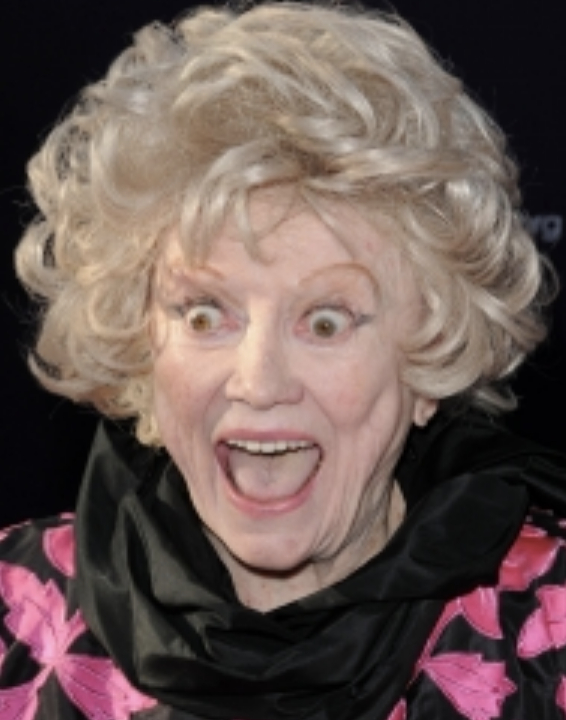
On this date in 1917, actress and comedian Phyllis Diller, née Phyllis Ada Driver, was born in Lima, Ohio. She studied piano at Chicago’s Columbia College and transferred to Bluffton College, a Mennonite school, but never graduated. She met Sherwood Diller at Bluffton and they married in 1939.
She began her entertainment career doing radio shows in California in 1952. She started doing stand-up at the Purple Onion, a well-known club in San Francisco, in 1955. In her well-known comedy routine she caricatured a housewife, made self-deprecating jokes and performed with wild hair and a cigarette holder.
She appeared in many movies and TV shows with Bob Hope, and even accompanied him to Vietnam to entertain the military during the Vietnam War. She famously acted in the movie “Boy, Did I get a Wrong Number” (1966) and the television show “The Pruitts of Southampton” from the 1960s. Diller appeared in many movies, television shows and stand-up routines.
In 2000 she was honored with the Lucy Award, given in honor of Lucille Ball to women who have enhanced the perception of women through television. She wrote five books, including her autobiography, Like a Lampshade in a Whorehouse, published in 2005.
Kindness was her religion, she once said. In his 2021 book “A Carnival of Snackery,” David Sedaris recalled visiting Diller at home in 2010 when the topic turned to religion: ” ‘A bunch of garbage,’ Phyllis called it.” “So you’re an atheist?” Sedaris asked. “Hell yes,” she replied. On another visit two years later, the subject was prayer. “Isn’t that the worst,” Diller said. “I hate it even more when they want you to hold their [expletive] hand. Blech!”
Diller married and divorced twice and had six children: Peter, Sally, Suzanne, Stephanie, Perry, and a son who died shortly after being born. She died at home in Los Angeles at age 95 and her ashes were scattered at sea. (D. 2012)
“Religion is such a medieval idea. Don’t get me started. I have thought about every facet of religion and I can’t buy any of it.”
— Diller in A&U/America's AIDS magazine (November 2001)
Kristen Bell
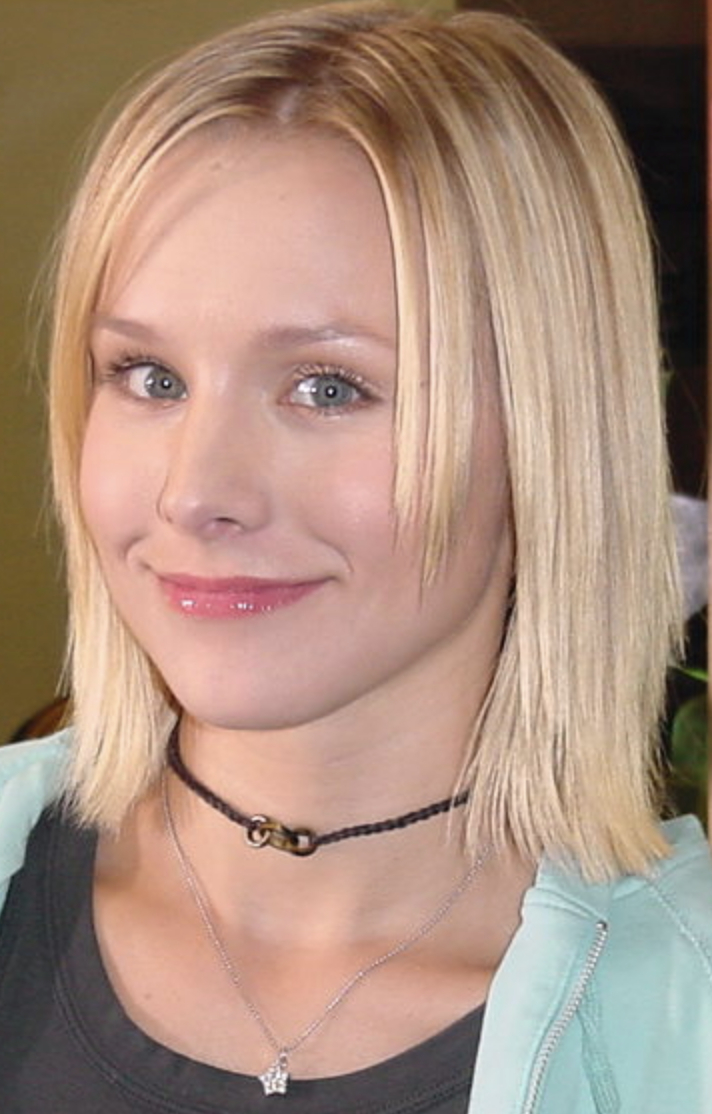
On this date in 1980, actress Kristen Anne Bell was born in Huntington Woods, Michigan, the daughter of Lorelei (Frygier), a nurse, and Tom Bell, a television news director. They divorced when she was 2. She took acting lessons as a child and her mother registered her with an agent when she was 12, after which she was cast in print and broadcast ads and attended Shrine Catholic High School. Her parents had become dissatisfied with her public school.
After graduation, Bell studied musical theater at New York University’s Tisch School of the Arts. She made her first credited debut in “Pootie Tang” (2001) and appeared in the Broadway revival of “The Crucible” with Liam Neeson in 2002. She then moved to Los Angeles and found work in television. Her breakout role was as the title character in the series “Veronica Mars,” which aired from 2004-07. (Bell also played the title role in the 2014 film based on the series.)
After the “Mars” series went off the air, Bell won the starring film role in the Judd Apatow comedy “Forgetting Sarah Marshall.” She then starred in the 2009 comedies “Serious Moonlight” with Meg Ryan and “Couples Retreat” with Jason Bateman. She co-starred with Christina Aguilera and Cher in the 2010 musical film “Burlesque” before playing the female lead on the Showtime comedy series “House of Lies” from 2012-16.
She had numerous other acting and voice roles in films and TV, including “The Lifeguard” (2013), “Frozen” (2013), “Zootopia” (2016), “The Boss” (2016), “Bad Moms” (2016) and “The Disaster Artist” (2017). Hulu announced in 2018 that Bell would reprise her role in an eight-episode fourth season of “Veronica Mars,” which debuted in July 2019.
After ending a five-year relationship with Kevin Mann in 2007, Bell started dating actor Dax Shepard. They announced their engagement in January 2010 but out of principle chose to delay marriage until California legalized same-sex unions, which happened in 2013. They have two daughters, Lincoln, born in 2013, and Delta, born in 2014.
Neither she nor Shepard are religious. That has caused “a lot of turbulence” with her born-again Christian mother, Bell told interviewer Marc Maron in 2018. Despite not seeing eye to eye on religion, she doesn’t judge her mother for her beliefs. “It’s an idea of practiced behavior that is good for her. I am not in need of that same thing. I feel like I have a good barometer of being more of a humanist, a good barometer of good and bad and how my conduct should be toward other people.”
Bell gave up eating meat when she was 11 and supports nonprofits dedicated to protecting animals. She works with the charity Invisible Children Inc. to create awareness of the plight of Ugandans caught in the midst of a civil war between the government and the Lord’s Resistance Army. In 2019 she and Shepard founded the company Hello Bello to market plant-based baby care products that are environmentally friendly and affordable.
Public domain photo by Tom Bell of his daughter Kristen during a visit to the “Veronica Mars” set in 2007.
“Let me tell you something. My child is not going to heaven or having an afterlife based on some man pouring water over her head.”
— Bell to her mother, who was upset that Bell and her husband didn't baptize their daughters. "WTF With Marc Maron" podcast (September 2018)
Robin Williams
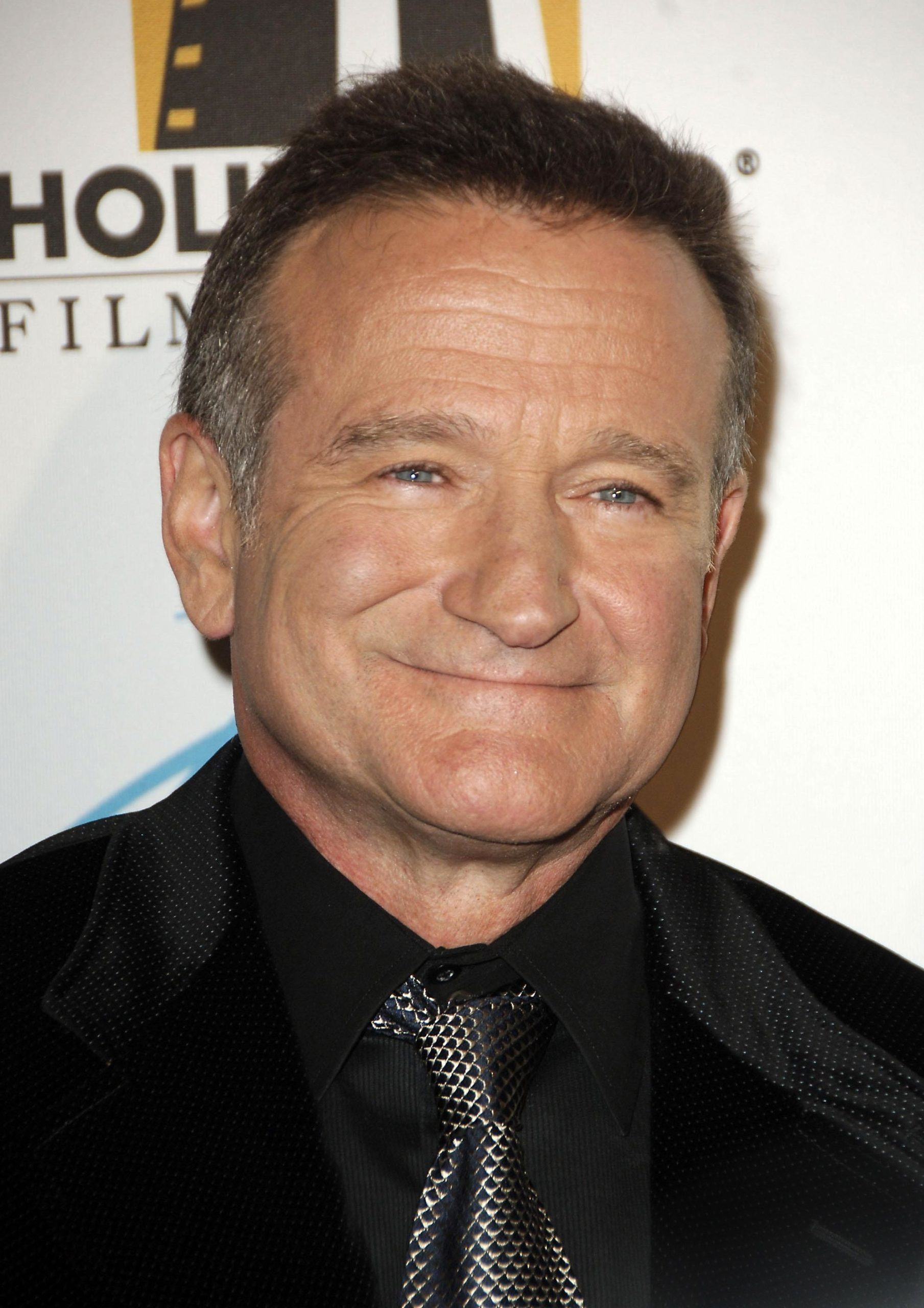
On this date in 1951, actor and comedian Robin McLaurin Williams was born in Chicago to model Laurie McLaurin and auto executive Robert Williams. He grew up in Bloomfield, Mich., and Marin County, Calif. He studied political science at Claremont McKenna College (then Claremont Men’s College), but left to study theater at a community college before receiving a full scholarship to the Juilliard School in 1973.
Scoring a guest role on the sitcom “Happy Days” in 1978, Williams gained instant recognition as the eccentric alien Mork. Following the success of “Mork and Mindy,” which aired for four seasons, Williams was catapulted into a long and illustrious career, beginning with major movie roles in “Popeye” (1980) and “The World According to Garp” (1982). His stand-up television specials included “Off the Wall” (1978), “An Evening with Robin Williams” (1982), “Robin Williams: Live at the Met” (1986) and “Robin Williams: Live on Broadway” (2002).
He portrayed Oliver Sacks in the 1990 film drama “Awakenings,” based on Sack’s moving memoir about briefly reviving catatonic patients. Williams captured Sacks’ mannerisms so perfectly that Sacks notes some people have actually accused him of imitating Robin Williams. Other films included “Good Morning, Vietnam” (1987), “Dead Poets Society” (1989), “The Birdcage” (1996), “The Fisher King” (1991), “Hook” (1991), “Aladdin” (1992), “Mrs. Doubtfire” (1993), “Jumanji” (1995), “Good Will Hunting” (1997), “Flubber” (1997), “Insomnia” (2002), “Night at the Museum” (2006), “Happy Feet” (2006), “Night at the Museum: Battle of the Smithsonian” (2009) and “The Butler” (2013). Williams starred in the off-Broadway production of “Waiting for Godot” (1988) and in the Broadway show “Bengal Tiger at the Baghdad Zoo” (2011).
Beyond bringing entertainment to millions, Williams aimed to bring provocative ideas into the public consciousness. His “War of Self-Destruction” tour in 2009 was rife with irreverent stabs at American politics, the Iraq War, religion and the papacy. “The Vatican and homosexuality: oil, water. The pope is always ‘homosexuality is an abomination.’ Timeout. … You’re dressed like Freddie Mercury’s stunt double. Your purse is on fire and you’re surrounded by hundreds of boys and you’ve had kind of a problem in the after school area.” (“Robin Williams: Live on Broadway.”) He was raised an Episcopalian, or as he quipped, “Catholic Lite — same rituals, half the guilt.” Williams took a critical stance on religious fundamentalism: “Fundamentalists take it to be ‘the Word,’ not translatable, not metaphorical, ‘the Word.’ In the beginning, Genesis, ‘Let there be Light.’ Could that be a metaphor for the big bang? ‘No! God just went click.’ ”
After battling depression and drug addiction for many years, Williams took his own life by hanging in 2014. An autopsy revealed he had diffuse Lewy body dementia, which had been diagnosed as Parkinson’s. He was survived by his wife Susan Schneider (2011-14) and children, Zak, from his first marriage with Valerie Velardi (1978-88) and Cody and Zelda, from his second marriage to Marsha Garces, which ended in 2008. (D. 2014)
“And the next day the miracle occurred — crucifixion, resurrection, and he rose again from the dead and if he sees his shadow, another 2,000 years of guilt.”
— “Robin Williams: Live on Broadway” (2002)
Daniel Radcliffe
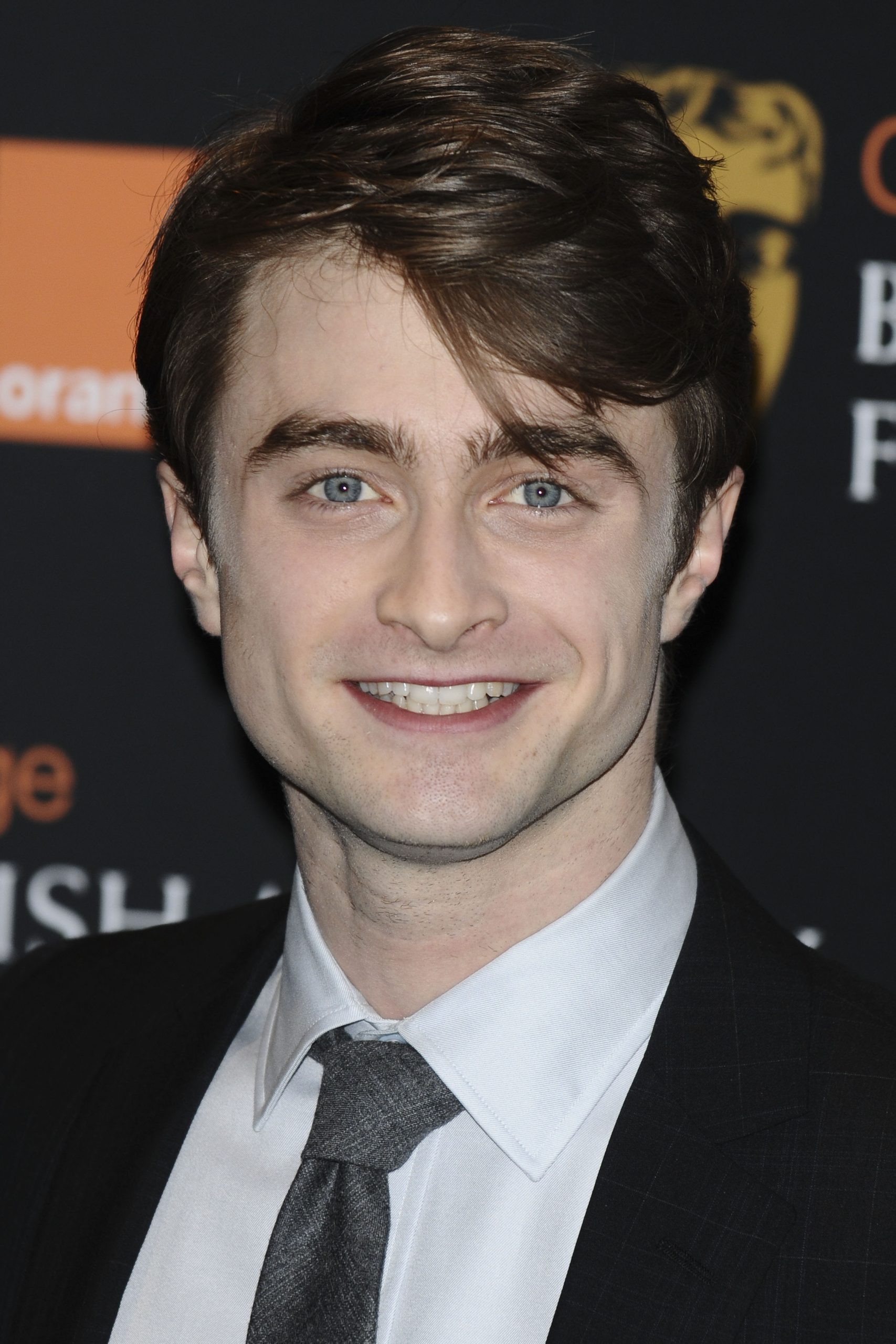
On this date in 1989, actor Daniel Jacob Radcliffe was born to a Protestant father and Jewish mother in London. Radcliffe was selected for the 1999 BBC television production of “David Copperfield” to play the young title character. The film was well-received in Britain, and it helped land Radcliffe a small role in the 2001 Pierce Brosnan movie, “The Tailor of Panama.” During filming, there was a massive search in the UK to find someone to play Harry Potter in the film version of the J.K. Rowling creation. Jamie Lee Curtis, on the set of “The Tailor of Panama,” sized up Daniel Radcliffe and told his mother, “He could be Harry Potter.” Indeed, Radcliffe became immortalized as the star of the eight-movie Harry Potter series.
Radcliffe also acted in “December Boys” (2007), “My Boy Jack” (2007) and had his first theatrical role in the critically acclaimed West End play “Equus” (2007), followed by a role in the 2011 Broadway revival of “How to Succeed in Business Without Really Trying.” His first non-Potter movie role was in the 2012 horror film “The Woman in Black” and was followed by other starring roles, the latest as of this writing, in 2019’s “Escape From Pretoria.” In the 2019 seven-episode series “Miracle Workers” on TBS, he played a low-level angel who answers prayers from a basement office, with Steve Buscemi playing God.
In a January 2012 interview with Parade magazine, Radcliffe said he has a problem with religion or anything else that says, “We have all the answers. … We change our minds on issues all the time. Religion leaves no room for human complexity.” He has been in a relationship since 2012 with actress Erin Darke. As of this writing, they live in London.
“I’m not religious, I’m an atheist, and a militant atheist when religion starts impacting on legislation. We need sex education in schools. Schools have to talk to kids from a young age about relationships, gay and straight.”
— Radcliffe interview, Attitude magazine (March 2012)
Woody Harrelson
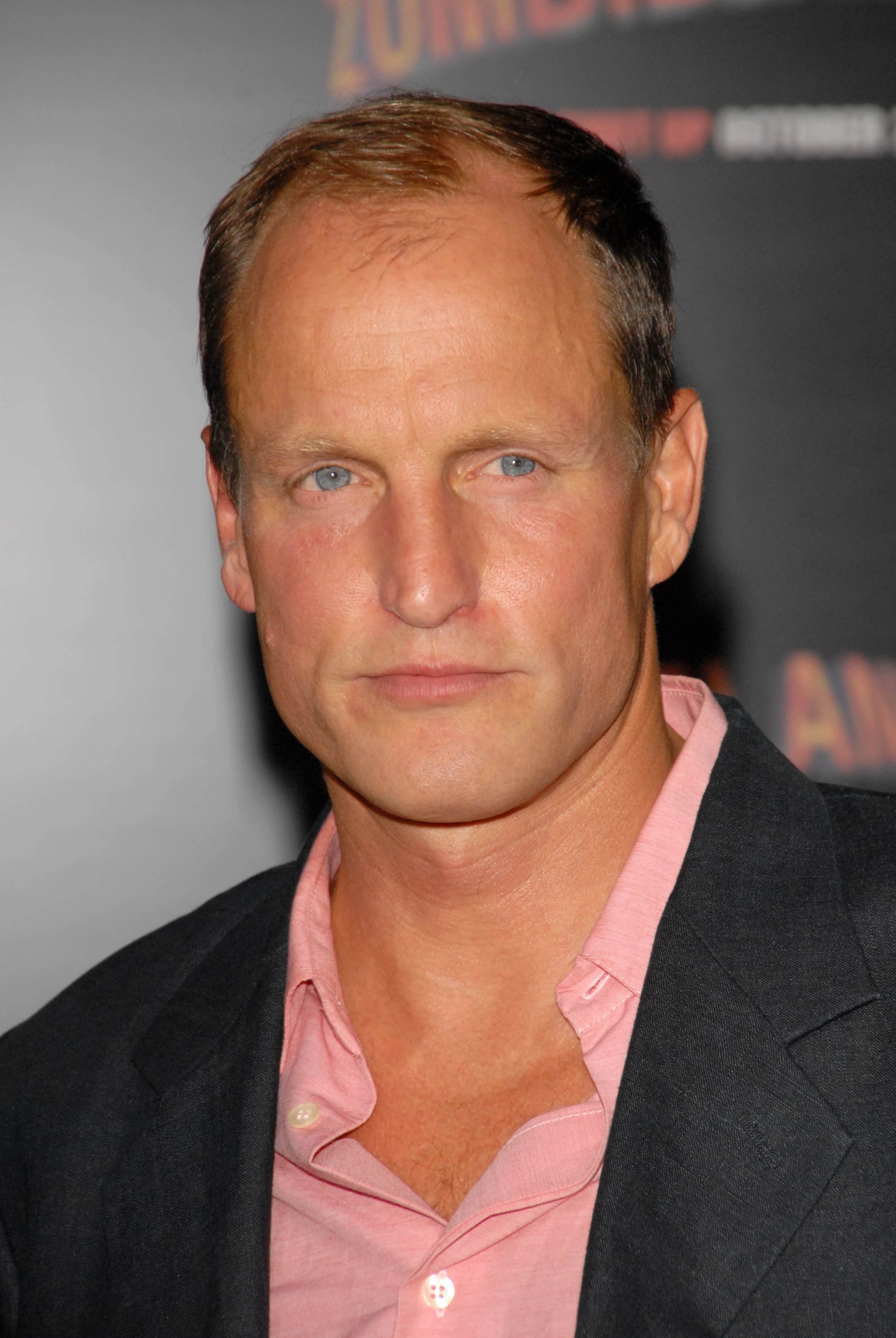
On this date in 1961, Woodrick Tracy “Woody” Harrelson was born in Midland, Texas, to Diane (née Oswald) and Charles Harrelson. His father, a convicted murderer-for-hire, died in 2007 in prison. Harrelson was raised Presbyterian and grew up in Lebanon, Ohio, and graduated from Hanover College with a degree in theater arts and English in 1983. Hanover is a Presbyterian school. Future vice president Mike Pence was a classmate.
Harrelson’s television acting career began in 1985 when he was cast as bartender Woody Boyd on “Cheers.” After “Cheers” ended in 1991, Harrelson focused on his film career, notably appearing in “Indecent Proposal” (1993), “Natural Born Killers” (1994) and “The People vs. Larry Flint” (1996), for which he was nominated for a Golden Globe and an Academy Award for Best Actor.
Harrelson appeared in the award-winning “No Country for Old Men” (2007), for which he and the rest of the cast won a Screen Actor’s Guild Award for Best Cast. In 2009 he played an army captain in “The Messenger.” He also had roles in “Friends with Benefits” (2011), “The Hunger Games” (2012 and three sequels), “Game Change” (2012), “War for the Planet of the Apes” (2017) and “Three Billboards Outside Ebbing, Missouri” (2017), for which he received Oscar and Screen Actors Guild nominations. In 2018 he co-starred in “Solo: A Star Wars Story.”
Harrelson is a vegan and is very active in the green movement, working for organic living and social change. Harrelson is also not shy in expressing his opinions about cannabis legalization or his lack of religion. In an October 2009 interview with Playboy magazine, he said, “I like the mellow vibe of herb, its uninhibiting effect. … Whether your drug is sugar, coffee, sex, exercise or religion — everybody has something.” In the same interview he discussed his personal loss of faith.
In 2008 he married his longtime partner Laura Louie. They have three daughters: Deni, born in 1993; Zoe, born in 1996; and Makani, born in 2006.
“I was getting into theology and studying the roots of the Bible, but then I started to discover the man-made nature of it. I started seeing things that made me ask, ‘Is God really speaking through this instrument? … My eyes opened to the reality of the Bible being just a document to control people. At the time I was a real mama’s boy and deeply mesmerized by the church.”
— Harrelson, Playboy magazine (October 2009)
Wil Wheaton
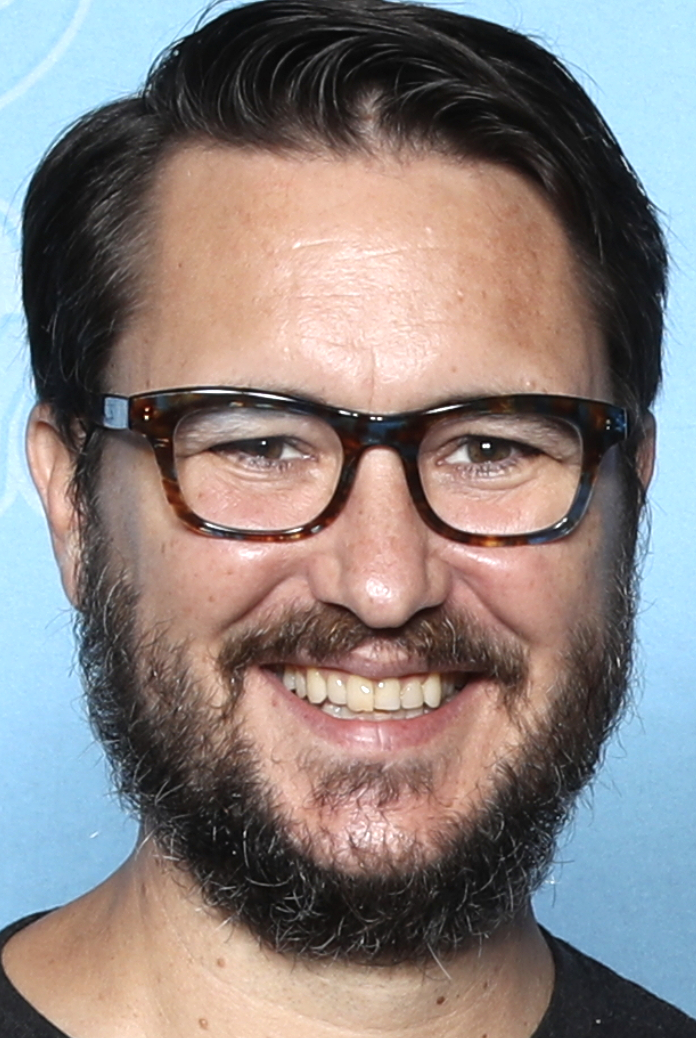
On this date in 1972, Richard William Wheaton III was born in Burbank, Calif. He started acting in 1981, when he was only 8 and later appeared in movies such as “Stand By Me” (1986) and “Toy Soldiers” (1991). Wheaton’s most famous role was as Wesley Crusher on “Star Trek: The Next Generation,” in which he was a regular cast member from 1987 to 1990, as well as returning occasionally as a guest star until 1994. Wheaton’s acting career continued with notable roles, including playing a recurring, fictionalized version of himself on ”The Big Bang Theory” sitcom, which aired from 2007-19.
He also does voice acting for animated television shows and video games, including “Teen Titans” and multiple “Grand Theft Auto” titles. He founded Monolith Press in 2003 and is the author of Dancing Barefoot (2004), a collection of autobiographical stories, and Just A Geek: Unflinchingly Honest Tales of the Search for Life, Love, and Fulfillment Beyond the Starship Enterprise (2005).
“I’m an atheist,” Wheaton proclaimed during an interview with the “Nerdist” podcast on Feb. 22, 2011. He described fan reaction to his personal ethical code, summed up as “Don’t Be A Dick,” saying, “People started calling it Wheaton’s Law, and I’m like, I’m an atheist, but that’s kind of like Jesus’ law. It’s a good law.” He elaborated on his views about religion on a 2006 blog post titled “The sins of the father,” in which he wrote, “I also have nothing but contempt for the so-called spiritual leaders who prey upon people for their own personal financial or political gain.”
Wheaton also described himself on his website as supporting “freedom from religion.” He married Anne Prince in 1999 and adopted her two sons from a previous relationship.
PHOTO: Wheaton in 2019 at GalaxyCon in Raleigh, N.C.; Super Festivals photo under CC 2.0.
“I’m so fed up with being told that I’m a bad person because I don’t subscribe to the same exact narrow views [Christians] have.”
— Wheaton blog post titled “Seriously. What would Jesus do?” (2006)
Peter O’Toole
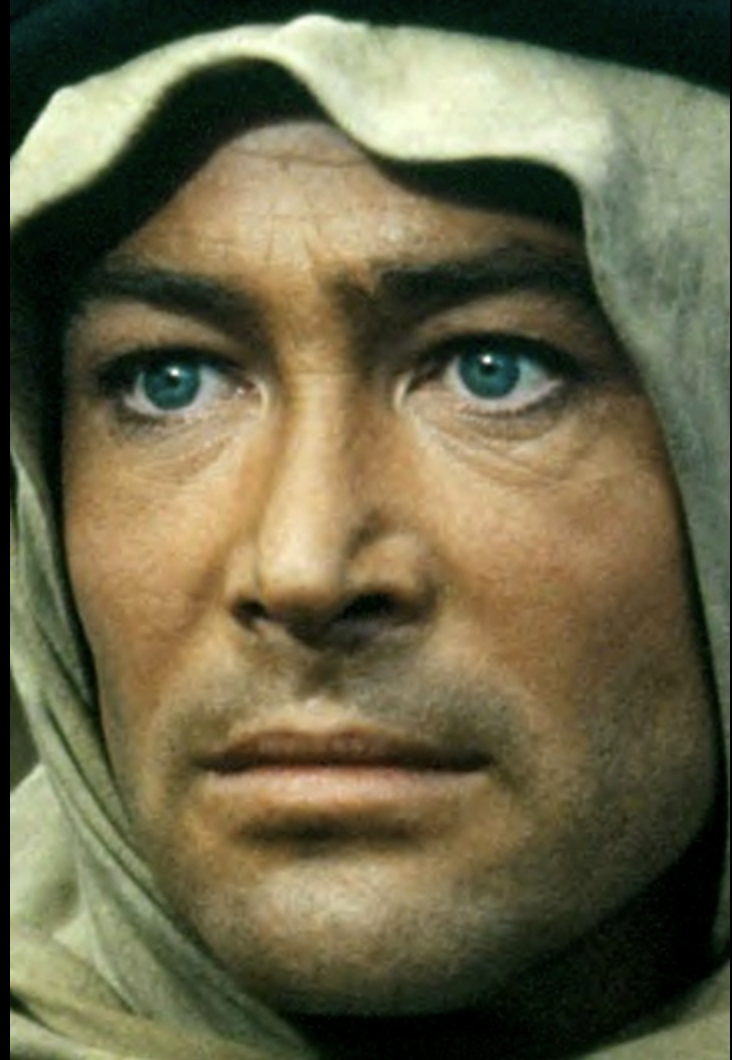
On this date in 1932, Peter O’Toole was born in Connemara, Ireland. When he was 16 he began working at the Yorkshire Evening News, but his journalism career was cut short when he was drafted into the navy. O’Toole later attended the Royal Academy of Dramatic Art, where he began acting in the theater. Starting in 1955, he spent three years apprenticing as a Shakespearean actor with Bristol Old Vic, a prominent theater company in Bristol, where he performed in over 70 productions.
O’Toole acted in his first film, “The Savage Innocents,” in 1960. The role that brought him to fame was his portrayal of T.E. Lawrence in the 1962 classic “Lawrence of Arabia.” O’Toole has since starred in many other notable films, including “Becket” (1964), “The Lion in Winter” (1968), “Goodbye, Mr. Chips” (1969) and “The Stunt Man” (1980). He received eight Best Actor Oscar nominations and in 2003 was awarded a Lifetime Achievement Oscar. O’Toole was married to actress Siân Phillips for 20 years and had two children with her, actress Kate O’Toole, born in 1960, and Patricia O’Toole, born in 1963. He also has a son, Lorcan, born in 1983.
O’Toole described himself as a “retired Christian” to The New York Times in 2007, as well as during an interview with Charlie Rose on PBS in 2008. He told the Times that he prefers “an education and reading and facts” to faith. In 1972 he played a delusional character who believed he was Jesus in the film “The Ruling Class.” During the film, O’Toole’s character says, “When did I realize I was God? Well, I was praying and I suddenly realized I was talking to myself.” (D. 2013)
PHOTO: O’Toole in “Lawrence of Arabia” in 1962.
“I am a retired Christian.”
— "Papal Robes, and Deference, Fit O'Toole Snugly" (New York Times, July 26, 2007)
Taika Waititi
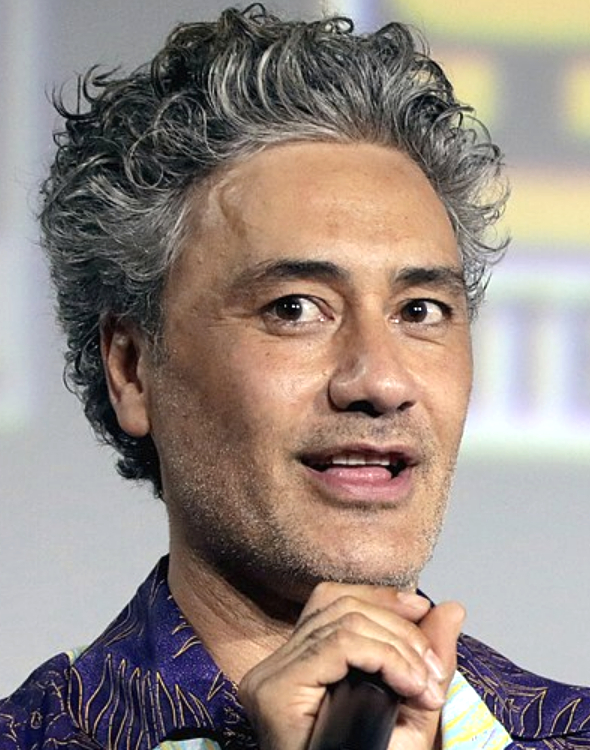
On this date in 1975, actor and filmmaker Taika Waititi (né Taika David Cohen) was born in Raukokore on New Zealand’s North Island. His father, now deceased, was an artist of Māori descent. His mother, Robin Cohen, has Russian-Jewish heritage and taught school. He originally used his mother’s surname for his work in film and writing and his father’s, Waititi, for his visual arts endeavors, i.e., painting, photography and book illustration.
Waititi has called himself a “Polynesian Jew” more connected to his Māori roots in a household where Judaism was not actively practiced. He told the Wall Street Journal in 2022 that he puts more stock in Indigenous beliefs, which include gods representing natural elements. “Our gods are more like the Greek gods. There are stories behind them and they mess with mortals.”
His parents separated when he was 5 and he was raised mainly by his mother. After secondary school, he joined a comedy troupe at Victoria University of Wellington, where he studied theater, earned a B.A. in 1997 and started making short films. “Two Cars, One Night” (2003) garnered an Academy Award nomination for Best Live Action Short Film. “Boy” (2010) premiered at the Sundance Film Festival.
Waititi co-wrote, co-directed and starred with Jemaine Clement in the horror mockumentary “What We Do in the Shadows” (2014), adapted in 2019 for an Emmy-nominated TV series. His directing credits include the Marvel superhero films “Thor: Ragnarok” (2017) and “Thor: Love and Thunder” (2022) as well as the black comedy “Jojo Rabbit” (2019), in which he played Adolf Hitler, the protagonist’s imaginary friend. It received six Oscar nominations and won for Best Adapted Screenplay. “Love and Thunder” built on the Thor storyline conceived by writer Jason Aaron.
Waititi incorporates his Māori heritage into many of his projects. With Sterlin Harjo, a Seminole Nation citizen, he created “Reservation Dogs,” an Indigenous American teen TV series filmed in Oklahoma that debuted on Hulu/FX in 2021. The recipient of critical acclaim, including a Peabody Award, it was renewed for a second season in 2022.
Waititi was in a relationship with New Zealand actress and writer Loren Horsley for 10 years. He married film producer Chelsea Winstanley in 2011. They had two daughters, Te Hinekahu and Matewa Kiritapu, before separating in 2018.
“I’m a Christian,” he announced on Twitter on March 31, 2013, then tweeted, “April Fools’, I’m not a Christian.” He says he doesn’t like to make people uncomfortable about faith. “If it helps you spiritually, and to understand your place in the world, absolutely, by all means. And as an atheist, I still sometimes go, ‘Am I doing the right thing?’ Just in case it’s all true.” (Wall Street Journal, July 11, 2022)
PHOTO: Waititi at the 2019 San Diego Comic Con International ; Gage Skidmore photo under CC 3.0.
“I don’t believe in man-made religions. I don’t believe in man-made gods.”
— "An Atheist Director Walks Into a Marvel Movie Full of Gods" (Wall Street Journal, July 11, 2022)
Robert Redford
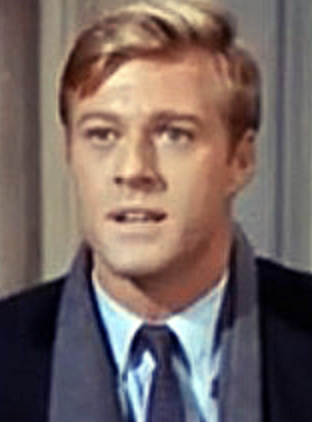
On this date in 1936, Charles Robert Redford Jr., who would become an iconic actor, director, producer, environmentalist, entrepreneur and philanthropist, was born in Santa Monica, Calif. “Growing up in a working-class world in Los Angeles, I had no luxuries or entertainment. I was ashamed to have people come to our house,” he told Playboy in November 2007. He had some youthful run-ins that lost him a baseball scholarship at the University of Colorado in 1957.
As a student at the American Academy of Dramatic Art in New York, he made his stage debut in the comedy “Tall Story.” His movie debut was “War Hunt” (1962). He starred in “Barefoot in the Park” on Broadway in 1962, finding fame after reprising that role on screen five years later. His role in “Inside Daisy Clover” (1965) won him a Golden Globe for the best new star.
Playing the Sundance Kid in “Butch Cassidy and the Sundance Kid” (1969) was considered his breakthrough role, also bringing him a lifelong friendship with Paul Newman. Next were “The Way We Were” (1973), “The Sting” (1973) and “All the President’s Men” (1976). Other memorable roles included “This Property Is Condemned” (1966), “Downhill Racer” (1969), “The Candidate” (1972) and “Three Days of the Condor” (1975).
He has also directed a number of films, including “Ordinary People” (1980), which won him a directorial Academy Award, “A River Runs Through It” (1992), “Quiz Show” (1994), “The Horse Whisperer,” “The Conspirator” (2011) and “The Company You Keep” (2012). More-recent movies included “All is Lost” (2013), in which he was the sole performer, and a turn as Bill Bryson in “A Walk in the Woods” (2015).
He made a cameo appearance in 2019’s “Avengers: Endgame,” in which he reprised his role from 2014’s “Captain America.” “Avengers” replaced “Avatar” as the highest-grossing film of all time. In July 2019 it was announced that he would come out of retirement to play President Robert Redford, a fictionalized version of himself, in the HBO drama series “Watchmen.”
Redford has used his celebrity to further environmental and progressive causes, founding the Sundance Film Festival and the Sundance Film Institute in Utah for independent filmmakers, as well as Sundance Cinemas. He married Lola Van Wagenen in 1958, which ended in divorce in 1985. Their children are Amy (1970), James (1962), Shauna (1960) and Scott (1959, who died shortly after birth). Redford married German painter Sibylle Szaggars in 2009.
His honors include an award from the Kennedy Center (2005), The American National Medal of Arts (1969) and the 2002 Oscars Lifetime Achievement Award.
PHOTO: Redford in the film “Barefoot in the Park” in 1967.
PLAYBOY: Do you believe in an afterlife?
— Redford, Playboy interview (November 2007)
REDFORD: I’m not sure I do. I’ve explored every religion, some very deeply, enough to know there’s not one philosophy that can satisfy me. Problems can’t be solved with one way of thinking. If anything is my guide, nature is. That’s where my spirituality is. I don’t believe in organized religion, because I don’t believe people should be organized in how they think, in what they believe. That has never been driven home as hard as with the [Bush] administration. When somebody thinks God speaks to him, you’ve got trouble. If God is speaking to the president, he’s speaking with a forked tongue, because the behavior of this administration doesn’t seem very godlike or spiritual. … Is there an afterlife? As far as I know, this is it. It’s all we’ve got. You take your opportunities and you go for it.
Andrew Garfield
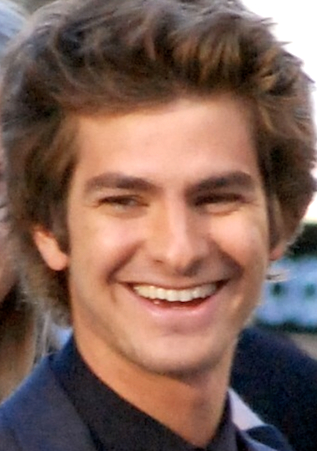
On this date in 1983, actor Andrew Russell Garfield was born in Los Angeles to Lynn (Hillman) and Richard Garfield, both with British roots. They moved to England when he was 3. His paternal grandparents emigrated to London from Eastern Europe. The family surname was originally Garfinkel.
“I wasn’t actually raised Jewish,” Garfield has said. “My father is Jewish and that side of my family is Jewish, but he’s nonpracticing and left the faith as a young boy, of his own volition. My mom is a kind of pantheist, and my father became an atheist but I think he’s now coming around to some kind of higher power.” (Fandango, Oct. 31, 2016)
He took his first acting classes at age 9, eventually graduating in 2004 from the University of London, where he studied speech and drama. He soon garnered public attention with appearances in episodes of the BBC’s “Doctor Who” before his U.S. film debut in “Lions for Lambs” (2007) with Tom Cruise, Meryl Streep and Robert Redford.
He co-starred opposite Carey Mulligan and Keira Knightley in the science fiction drama “Never Let Me Go” in 2010, winning a Saturn Award for Best Supporting Actor. He also won awards that year for his role in “The Social Network” about the founding of Facebook. He was cast as Spider-Man/Peter Parker in 2012’s “The Amazing Spider-Man.”
Garfield made his Broadway debut in 2012 as Biff Loman in a revival of “Death of a Salesman” for which he was nominated for a Best Featured Actor Tony Award. He had roles in two 2016 films, Martin Scorsese’s drama “Silence” and Mel Gibson’s war movie “Hacksaw Ridge.” He lost 40 pounds to play a Portuguese Jesuit priest in “Silence.”
More film roles followed: “Breathe” (2017), “Under the Silver Lake” (2018), “Mainstream” (2020), “The Eyes of Tammy Faye,” playing televangelist Jim Bakker, and “Spider-Man: No Way Home” (2021). He won the 2018 Tony for Best Leading Actor in Tony Kushner‘s “Angels in America.” Kushner commented on Out online (Feb. 8, 2018): “I think it’s one of the most remarkable performances of a contemporary gay character by a straight guy I’ve ever seen.”
Garfield started dating “Spider-Man” co-star Emma Stone in 2011. According to Vanity Fair, they “split for good” in 2015.
Hulu announced in March 2022 that Garfield would play a detective in a seven-episode series of Jon Krakauer‘s Mormon Church exposé “Under the Banner of Heaven.”
He has said that he has been a spiritual seeker since childhood. “Certainty is the most terrifying thing to me. … It is so healthy to doubt. Certainty starts war. Certainty starts war on behalf of ideology: ‘I know and you don’t.’ That’s the scariest thing to me, what a human being is capable of doing.” (“The Late Show With Stephen Colbert,” Jan. 24, 2017)
PHOTO: Garfield in Toronto in 2009; photo by csztova under CC 2.0
“I’m not a Christian person. I consider myself pantheist, agnostic, occasionally atheist, and a little bit Jewish, but mostly confused.”
— Interview, The Hollywood Reporter (Dec. 5, 2016)
Stephen Fry
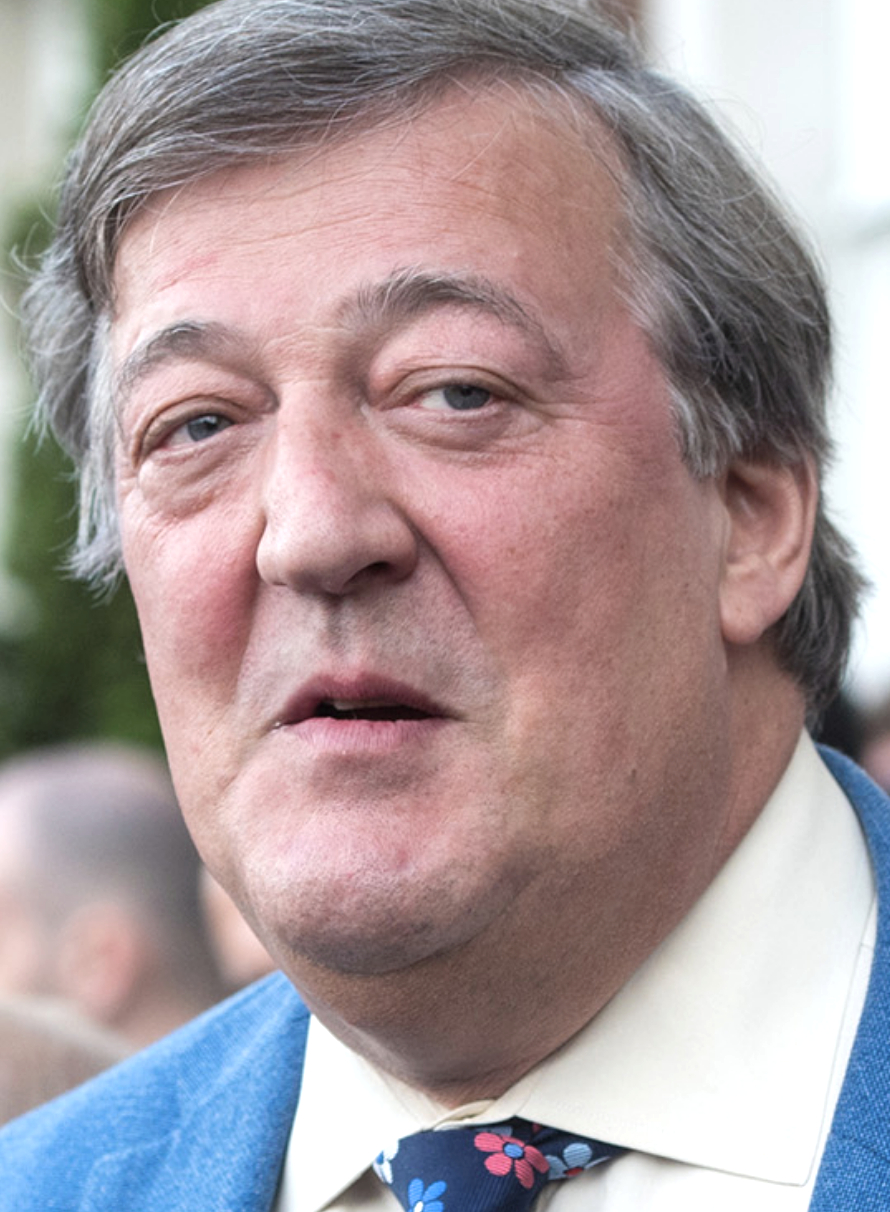
On this date in 1957, Stephen Fry was born in London, England. He grew up in Norfolk. At age 17, after leaving school, he was convicted of credit card fraud. After serving time in prison, Fry studied at City College Norfolk with the intention of sitting entrance exams for Cambridge, where he received a scholarship. At Cambridge, he performed in the Cambridge Footlights Review with Emma Thompson and Hugh Laurie.
Fry and Laurie continued their comedic collaboration outside of school, including the sketch comedy show “A Bit of Fry and Laurie,” for the BBC, which had six seasons between 1986 and 1995. From 1990 to 1993, Fry and Laurie also starred in “Jeeves and Wooster” (Fry played Jeeves). Fry has had a wide-ranging career in acting, comedy and writing.
He is very active in social media, preferring to speak directly to his fans whenever he can, such as through Twitter and on his personal website. In 2003 Fry began hosting the BBC television panel comedy game show “QI.” Fry has been openly gay for his entire professional life and advocates for gay rights. He grew up in an atheist home but had a brief flirtation with Christianity as a teen after reading C.S. Lewis’s Screwtape Letters and works by G.K. Chesterton.
But as an adult he returned to atheism and is very open about his nonbelief, describing the Christian God as “utterly evil, capricious and monstrous” in an interview with The Guardian in February 2015.
In 2011 he received a Lifetime Achievement Award in Cultural Humanism from the Humanist Chaplaincy at Harvard and the American Humanist Association. In February 2015, Fry stated on the Irish television show “The Meaning of Life,” “Why should I respect a capricious, mean-minded, stupid God who creates a world which is so full of injustice and pain?”
Asked how he would react if he was locked outside the pearly gates, he responded, “I would say, ‘Bone cancer in children? What’s that about?’ Because the God who created this universe, if it was created by God, is quite clearly a maniac, utter maniac. Totally selfish. We have to spend our life on our knees thanking him? What kind of God would do that?”
After a viewer made a formal complaint in 2017, police in the Republic of Ireland started prosecution charges for blasphemy against him, invoking Ireland’s controversial new Defamation Act, which made blasphemy punishable by a fine of 25,000 euros. After the announcement set up an international outcry, the prosecution was dropped, ironically because, it was stated, that “there were no injured parties.” Nearly 65% of voters voted in 2018 to repeal the blasphemy law.
PHOTO: Fry in 2016; U.S. State Department photo
“I love how when people watch I don’t know, David Attenborough or Discovery Planet type thing you know where you see the absolute phenomenal majesty and complexity and bewildering beauty of nature and you stare at it and then … somebody next to you goes, ‘And how can you say there is no God? Look at that.’ And then five minutes later you’re looking at the lifecycle of a parasitic worm whose job is to bury itself in the eyeball of a little lamb and eat the eyeball from inside while the lamb dies in horrible agony and then you turn to them and say, ‘Yeah, where is your God now?’ ”
— Fry, bigthink.com interview (Dec. 17, 2009)
Lily Tomlin
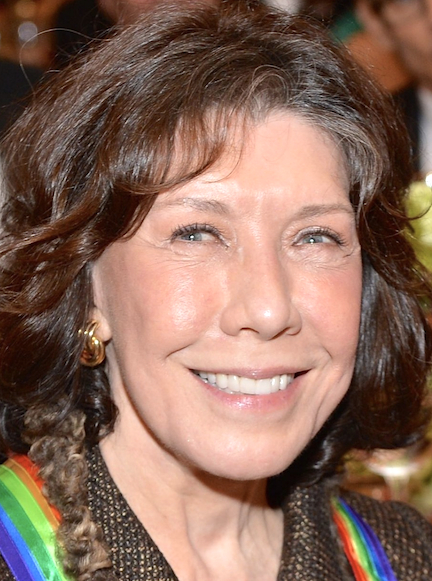
On this date in 1939, Mary Jean “Lily” Tomlin — actress, comedienne, writer, singer and producer — was born in Detroit (on the day Nazi Germany invaded Poland, starting World War II). Her Southern Baptist parents, Lillie Mae (Ford) and Guy Tomlin, were respectively a nurse’s aide and a factory worker who had moved to Detroit from Paducah, Ky., during the Great Depression.
“We were a working-class family,” she told the Irish Times in 2015. “My parents didn’t pay that much attention. They let us go our own way. In our neighborhood, the boy was okay if he didn’t end up in jail and the girl was okay if she didn’t get pregnant. That was the credo by which we lived.” She grew up “very well acquainted with the Bible and scripture.”
She enrolled after high school at Wayne State University to major in biology before switching to theater. Moving to New York without graduating, she worked as a bookkeeper and performed stand-up and off-Broadway using her mother’s first name to honor her, with the spelling changed slightly. (A guaranteed laugh line: “Why is it that when we talk to God we’re said to be praying, but when God talks to us we’re schizophrenic?”)
Tomlin’s first TV appearances were in 1965-66 on “The Merv Griffin Show” and “The Garry Moore Show.” Her breakout role in 1969 was on the comedy show “Rowan and Martin’s Laugh-In” (replacing Judy Carne). Her signature role Edith Ann was developed by her then-life partner and future wife Jane Wagner. Another major character was Ernestine, a less-than-helpful telephone operator who opened each sketch with “one ringy dingy…” Tomlin left “Laugh-In” in 1973.
She released several top-selling albums in the 1970s and won the 1972 Grammy for Best Comedy Recording. Her film debut was in director Robert Altman’s “Nashville” in 1975 in which she played a gospel singer and mother of two deaf children. She received Best Supporting Actress nominations for Golden Globe and Academy awards. She hosted the sixth episode of “Saturday Night Live,” which first aired on NBC in October 1975.
“The Late Show” with Art Carney in 1977 was a critical success as was “9 to 5” with Dolly Parton and Jane Fonda in 1980, one of the year’s top-grossing films. She landed roles in movies during the next three decades and teamed again in 2006 with Altman in his last film, “A Prairie Home Companion.”
Tomlin starred in 1985 in the one-woman Broadway show “The Search for Signs of Intelligent Life in the Universe,” written by Wagner. It won her a Tony and was made into a feature film in 1991. A Broadway revival in 2000 was followed by a two-year U.S. tour.
Television appearances included voicing Ms. Valerie Frizzle on the animated series “The Magic School Bus” on PBS from 1994-97, a role as the title character’s boss on the sitcom “Murphy Brown” and recurring roles on “Will & Grace,” “The West Wing” and the fifth season of “Desperate Housewives” in 2008–09.
“Lily Tomlin & Jane Wagner, Actor, Writer” says their star, installed in 2012, on the Hollywood Walk of Fame, the 345th star on the walk. They were married the next year on New Year’s Eve in a private ceremony in Los Angeles after 42 years together. Tomlin’s only sibling, her younger brother Richard, is also gay. Commenting on opposition to equal marital rights, she said in 2011 that “so much of it is just out of fear and ignorance or just narrowness of mind.”
Tomlin starred with Fonda in the 94-episode, seven-season Netflix original series “Grace and Frankie,” which debuted in 2015. They become friends after learning their husbands (Sam Waterston and Martin Sheen) are leaving them to be together romantically. Tomlin and Fonda both received Emmy nominations for Outstanding Lead Actress in a Comedy Series.
As of this writing, in a career spanning over 50 years, Tomlin has received seven Emmys, a Grammy and two Tonys, along with a Kennedy Center Honor in 2014 and the Screen Actors Guild Life Achievement Award in 2017.
She established the Tomlin Endowed Scholarship Fund in 1990 at Wayne State University in Detroit.
PHOTO: Tomlin receiving her Kennedy Center Honors Medallion in 2014; State Department photo.
“I’m not a religious person. I don’t have any desire. To me it’s imitative of a conventional culture. I’m all for it for anybody. I totally have a free and open feeling about how other humans want to live their lives. It’s just not something that has any real significance for me.”
— "Sunday Profile" interview (Australian Broadcasting Corp., Feb. 26, 2011)
Greta Garbo
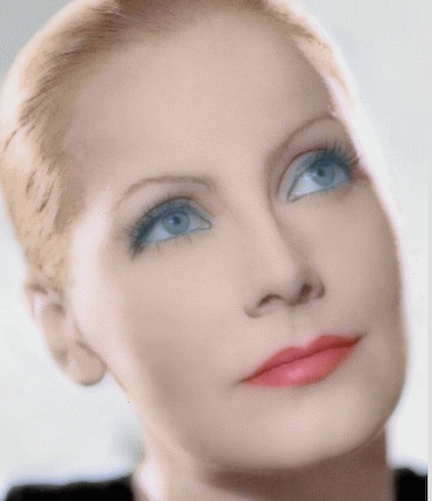
On this date in 1905, enigmatic Swedish actress Greta Garbo (née Greta Lovisa Gustafsson) was born in Stockholm to working-class parents Anna (Johansson) and Karl Gustafsson. She was christened the next day by a Church of Sweden pastor.
The family’s financial struggles worsened with her father’s death when Garbo was 14. She left school, where she wasn’t a particularly good student but was interested in theater despite her shyness, to work as a “soap girl” applying lather to men’s faces before the barber shaved them.
A department store job led to work as a model, studies at the Royal Dramatic Training Academy and recruitment in 1924 by the Finnish director Mauritz Stiller to play a secondary part in his silent film “The Saga of Gösta Berling,” in which she falls for Berling, a Lutheran priest defrocked over his fondness for alcohol. Stiller convinced her to change her name to Garbo.
The movie led to other roles, and during a visit to Berlin, Louis B. Mayer of Metro-Goldwyn-Mayer Studios met her. She and Stiller signed with MGM and in 1925 boarded a ship to America, Garbo with the inability to speak English. Her first American film was “Torrent” in 1926, the year her actress sister Alva died of tuberculosis in Sweden. Some thought her beauty exceeded Garbo’s.
Her next films catapulted her to international stardom: “The Temptress” (1926), “Flesh and the Devil” (1927), “A Woman of Affairs,” “The Mysterious Lady” (1928) and “Wild Orchids” and “The Kiss” (1929). “Anna Christie” (1930) was her first sound film. MGM marketed it with the tagline “Garbo talks!” and the film led to the first of her three Oscar nominations, all unsuccessful.
Garbo made 13 more movies from then until 1941, when “Two-Faced Woman,” widely panned and directed by George Cukor, was her last at age 35. In between notably were “Mata Hari,” “Grand Hotel,” Somerset Maugham‘s “The Painted Veil,” “Anna Karenina,” “Camille” and the comedy “Ninotchka.”
Many critics and film historians consider her role as the doomed courtesan Marguerite Gautier in “Camille” (1936) as her finest performance. “Grand Hotel” (1932) was the source of the line most associated with her name: “I want to be alone.” She later clarified that with “I never said ‘I want to be alone.’ I only said ‘I want to be left alone.’ There is all the difference.” She once told the actor David Niven that she’d quit because she had “made enough faces.”
In his biography “Garbo” (2021), Robert Gottlieb wrote that she had never liked the limelight and lacked the relentless drive of contemporaries like Marlene Dietrich. “She doesn’t seem to have been particularly vain about her beauty, but she was practical enough to know its precise value, and to anticipate the cost of its fading.”
Garbo never married and never had children but did have relationships, publicly with several men, and perhaps privately with a few women. Regarding religion, Gottlieb wrote: “As for Garbo and church, I haven’t come upon any references to her ever attending one, although perhaps she was tempted by [singer] Jessica Dragonette’s Catholicism — if so, it didn’t take.” Lilli Palmer, a German-born actress married to Rex Harrison, wrote in her 1975 autobiography: “Her daily walks were her religion; she withered when she was deprived of them.”
After quitting the movies, she moved to New York City, traveled frequently abroad with friends and compiled an estate of at least $32 million by investing in art, real estate and securities. She became a U.S. citizen in 1951 and died of renal failure and pneumonia at age 84. She was cremated in Manhattan with her ashes interred in Stockholm. (D. 1990)
“I would like to believe in a life after death, but the different religions have each got their own different solution. In America people go to church a lot, but I don’t know if they’re any more religious for all that. I know that there are many people who are convinced of life after death, but I haven’t been given the capacity for belief.”
— Garbo comments to journalist and biographer Sven Broman on one of their walks, "Garbo on Garbo" (1991)
Frances Farmer
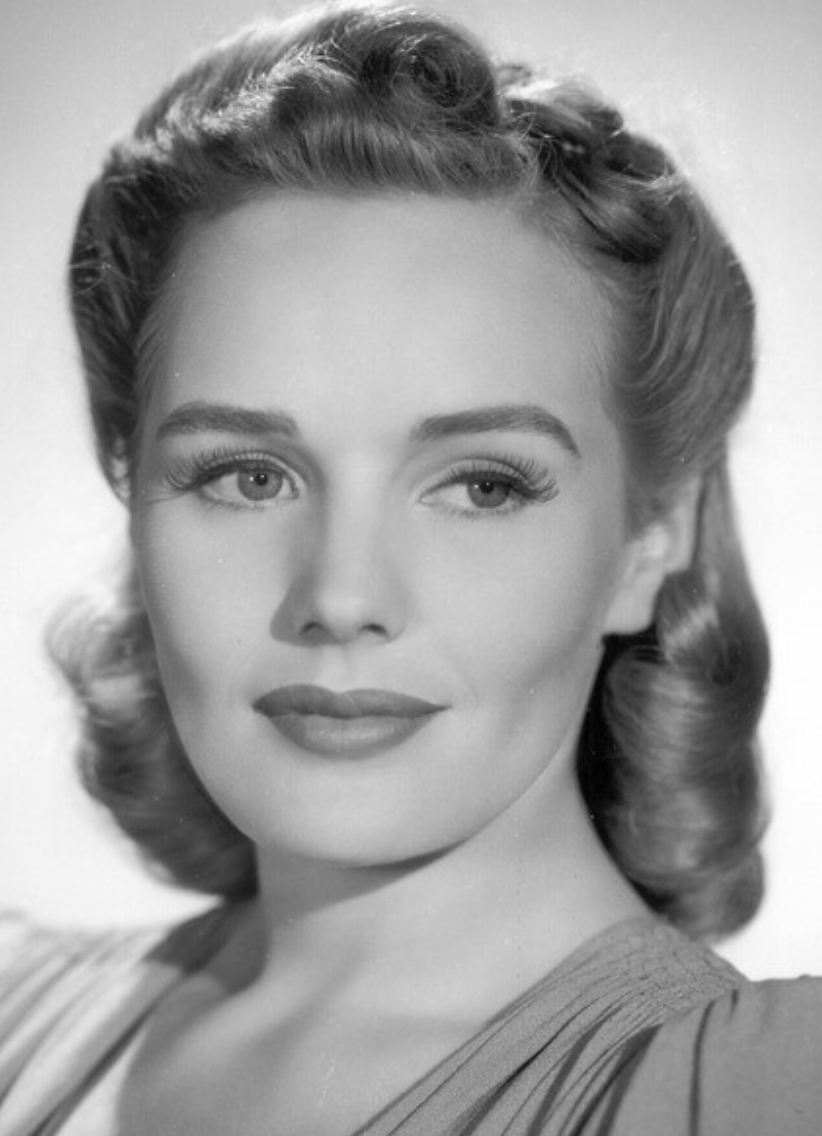
On this date in 1913, Frances Elena Farmer was born in Seattle to Lillian (née Van Ornum), a boardinghouse operator and dietitian, and Ernest Farmer, a lawyer. As a high school junior, Farmer won a creative writing contest with her essay “God Dies,” resulting in a national wire story: “Seattle girl denies God and wins prize.” In the conclusion of the brief essay about becoming an atheist, she wrote, “I felt rather proud to think that I had found the truth myself, without help from anyone. It puzzled me that other people hadn’t found out, too.”
She attended the University of Washington, switching her major from journalism to drama after starring in some college plays. Discovered by a talent scout, she moved to Hollywood and signed a contract with Paramount Pictures in 1936, the same year she married Leif Erickson. Her first film was “Too Many Parents.” She starred opposite Bing Crosby in “Rhythm on the Range” and achieved star status playing the lead in “Come and Get It,” a film based on a novel by Edna Ferber.
Constrained by studio control, Farmer took the lead in Clifford Odets’ play “Golden Boy” in 1937, playing in New York City. A love affair with Odets ended badly and she returned to Hollywood, where she was relegated to supporting roles. In 1942 her life took a downward spiral when she was arrested for drunk driving without a license.
The next year she was arrested for assault and violating probation. Declared mentally ill by a court due to ongoing extremely erratic behavior fueled by alcohol and drugs, she was placed in a sanitarium by her mother, who was appointed her legal guardian. She was institutionalized for eight years, undergoing shock treatment. There’s no evidence she had a lobotomy, as was rumored at the time and later. She was released to her mother in 1950.
Her fortunes improved when a reporter spotted her working as a receptionist in 1953 and wrote a sympathetic profile. She remarried in 1954 (a third marriage followed in 1958) and hosted an afternoon TV show in Indianapolis from 1958-64. She was also a writer-in-residence at Purdue University. Her autobiography Will There Really Be a Morning? (the title from a line by Emily Dickinson) contained horrific details of her long confinement.
Farmer died of cancer of the esophagus at age 56. In 1982, Jessica Lange gave a tour-de-force portrayal of her in the film “Frances.” (D. 1970)
© Freedom From Religion Foundation. All rights reserved.“I wondered a little why God was such a useless thing. It seemed a waste of time to have him. After that he became less and less, until he was … nothingness.”
— Frances Farmer, "God Dies," essay at age 16.
Christopher Reeve
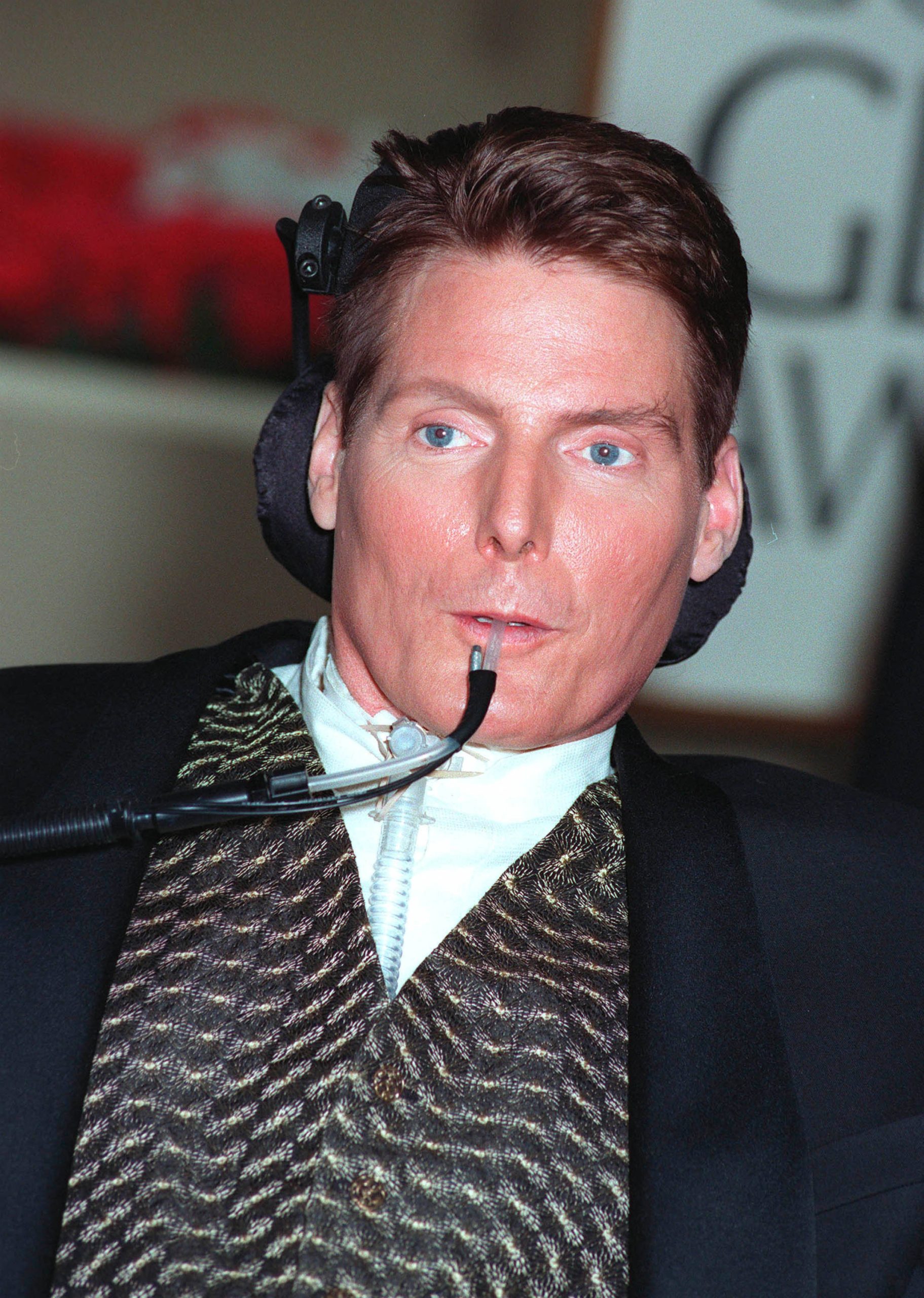
On this date in 1952, Christopher Reeve was born in New York, N.Y. His acting career had an early start at the McCarter Theatre in New Jersey when he was 9. Reeve graduated from Cornell University with a degree in music theory and English, and later attended the Juilliard School of Performing Arts. Reeve became a prolific theater actor, most notably performing in the Broadway play, “A Matter of Gravity” (1976), along with Katharine Hepburn.
Although Reeve acted in about 150 plays, he is most famous for his films — especially the immensely popular “Superman” (1978) and its three sequels, in which Reeve played the title role. His other films include “Somewhere in Time” (1980), “The Aviator” (1985) and “Village of the Damned” (1995).
Reeve appeared in numerous television shows such as “Smallville” and “Sesame Street” and he directed the film “In the Gloaming” (1997). He married Dana Morosini in 1992 and they had one son, William, born in 1992. Reeve also had two children with Gae Exton: Matthew, born in 1979, and Alexandra, born in 1983.
In 1995, he was paralyzed from the neck down after a horseback riding accident that injured his spinal cord. Following his paralysis, he became a disability activist who narrated the documentary “Without Pity: A Film About Abilities” (1996). Reeve was appointed Chairman of the American Paralysis Association in 1996, the same year that he and his wife founded the Christopher and Dana Reeve Foundation, which funds spinal cord research.
“It’s frightening to me, the organized religion,” Reeve told Charlie Rose in a 2002 interview when he spoke about his childhood fear of church and its images of a violent god. Reeve added, “My father was not religious at all, so I really did not bother with questions of faith and spirituality.” He became a Unitarian Universalist after his accident. He died at age 52 after an antibiotic for an infection sent him into cardiac arrest and a coma. (D. 2004)
“[F]amily, friends and well-wishers from around the world assured me that prayers and my faith in God would comfort me. I tried to pray but I didn’t feel any better, nor did I make any kind of connection with God.”
— Reeve's memoir, "Nothing Is Impossible: Reflections On a New Life" (2002)
Tim Minchin
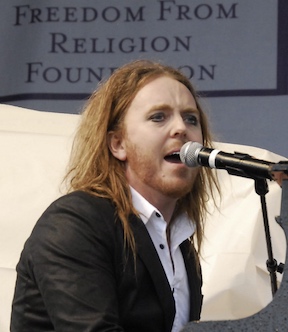
On this date in 1975, Timothy David Minchin was born in Northampton, England, to Australian parents. On his website he describes himself as a “comedian, actor, composer, songwriter, pianist, musical director and huge rock ‘n’ roll megastar.” He grew up in Perth, Australia, where he attended the University of Western Australia and received a bachelor of arts in English and theater in 1995. He went on to obtain an advanced degree in contemporary music at the Conservatorium of Western Australia in 1998.
In 2002 he began his career as a musical comedian in Melbourne in shows where he sang original songs while accompanying himself on piano and incorporating more traditional stand-up elements. Minchin came to prominence at the Melbourne International Comedy Festival in 2005 and went on to win the Perrier Newcomer Award at the Edinburgh Fringe Festival that same year. Living in London, he toured the United Kingdom, Australia, New Zealand and North America. He has also written the book and lyrics for the Royal Shakespeare Company’s adaptation of Roald Dahl’s “Matilda,” which premiered in Stratford-upon-Avon in December 2010.
Minchin is outspoken in his opposition to religion and to nonscientific claims made by New Age groups and others. His comedy and songs cover a wide range of topics, from love and sex to political controversies and language use, but a primary focus is on religion. Many contain strong language but some are safe for radio play, including “Peace Anthem for Palestine,” which Minchin says sums up his views on religious conflict: “We don’t eat pigs, you don’t eat pigs, it seems it’s been that way forever. So if you don’t eat pigs and we don’t eat pigs, why not not eat pigs together?”
He does express fondness for the music of his upbringing in the Anglican Church and the secular and family aspects of Christmas in the Southern Hemisphere in his 2009 single “White Wine in the Sun.” But its hard-hitting lyrics created a firestorm in Australia when the song was released as part of a charitable seasonal album in 2010. Themes of his work include his contempt for unscientific thinking (“If You Open Your Mind Too Much Your Brain Will Fall Out (Take My Wife)” and for the beauty of scientific thinking in the comedy routine “Tony the Fish.”
Minchin returned to touring in 2019 after a seven-year break. The BACK tour visited Australia and New Zealand in March and April, with performances scheduled in October and November in Europe.
PHOTO: Minchin at the 2012 Reason Rally; FFRF photo by Andrew L. Seidel.
“And yes I have all of the usual objections
— Minchin, “White Wine in the Sun,” (2009)
To the miseducation of children who, in tax-exempt institutions,
Are taught to externalize blame
And to feel ashamed and to judge things as plain right and wrong
But I quite like the songs. ”
Joy Behar
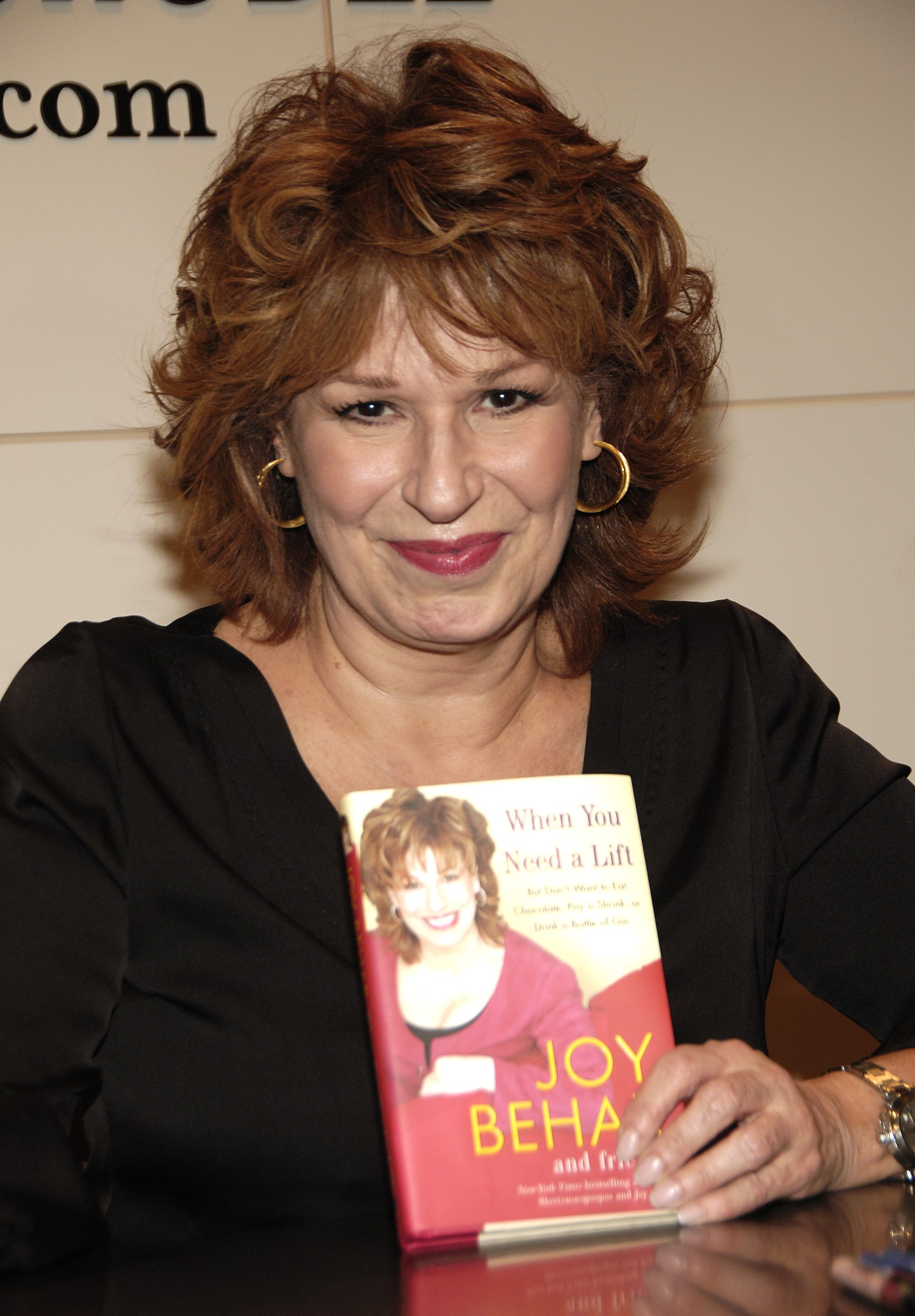
On this date in 1942, Joy Behar (née Josephina Victoria Occhiuto) was born in Brooklyn, N.Y. Behar earned a bachelor’s in sociology from Queens College (1964) and a master’s in English education from the State University of New York at Stony Brook (1966). She taught high school English in the late 1960s and early 1970s before becoming a stand-up comedian and radio talk show host. She appeared in “Manhattan Murder Mystery” with Woody Allen in 1993.
Behar is perhaps best known as an original cast member of the daytime show “The View.” It debuted in 1997 has been nominated for Daytime Emmy Awards for Outstanding Talk Show almost every year since, winning in 2009. Joy Shtick — Or What Is the Existential Vacuum and Does It Come with Attachments? (1999) features her humorous essays. Her children’s book, Sheetzucacapoopoo: My Kind of Dog, was published in 2006. She was a frequent guest host on CNN’s “Larry King Live” from 2007-09.
In 2009 she launched her own evening talk show, “The Joy Behar Show,” on CNN’s HLN network. Behar has one daughter, Eve, from her marriage (1965-81) to Joe Behar. She has been with partner Steve Janowitz since 1982.
Raised Catholic, she now identifies as agnostic. She jokingly said she lost her faith when she “went to the Commie school Queens College.” She told an ABC News’ “Focus on Faith” interviewer in 2011, “I’m sustained by my family, my life, my brain. But I don’t believe there’s an afterlife.” In the same interview, she said, “I never gave [my daughter] any religion, because I felt that I was brainwashed.”
“I’m pathetically pragmatic. … I don’t believe that there’s a higher power that created human beings.”
— Behar interview with Fr. Edward Beck, ABC News "Focus on Faith" (March 17, 2011)
Julia Sweeney
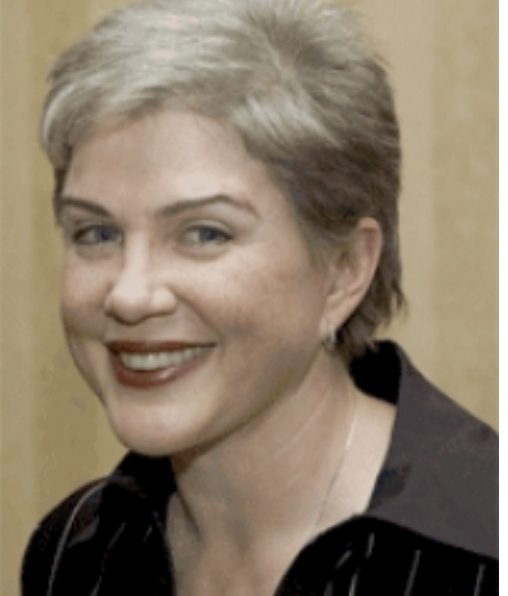
On this date in 1961, comedian and author Julia Anne Sweeney was born in Spokane, Wash., into a devout Catholic family. For much of her childhood she wanted to be a nun. After majoring in economic studies at the University of Washington, she instead became an accountant for Columbia Pictures and United Artists. Having a knack for comedy and mimicry, she signed up for a class with the improvisational comedy troupe “The Groundlings,” where she was discovered by “Saturday Night Live” producer Lorne Michaels. She was on that show from 1990-94 and introduced the popular character “Androgynous Pat.”
In 1994 she made the movie “It’s Pat.” After both she and her brother Michael were diagnosed with cancer, she wrote and starred in the play “God Said, Ha!” The film version won the Golden Space Needle Award for best director and the recording was nominated for a Grammy. She has made frequent TV guest appearances, served as a creative consultant on “Sex and the City” and has appeared in many movies, including “Clockstoppers” (2002), “Beethoven’s 4th” (2001), “Beethoven’s 3rd” (2000), “Stuart Little” (1999), “Pulp Fiction” (1994), “Coneheads” (1993) and “Honey, I Blew Up the Kids” (1992).
Her monologue about adopting her daughter Mulan from China, “In the Family Way,” debuted in 2003. (Sweeney is married to scientist Michael Blum.) In 2004 she debuted her new monologue “Letting Go of God,” about her journey from Catholic schoolgirl to atheist. Since then she’s been busy writing and performing.
She serves on the advisory boards of the Secular Coalition for America and the Richard Dawkins Foundation for Reason and Science. In 2006 she was the recipient of FFRF’s Emperor Has No Clothes Award that celebrates “plain speaking” on the shortcomings of religion by public figures.
“It took me years, but letting go of religion has been the most profound wake up of my life. I feel I now look at the world not as a child, but as an adult. I see what’s bad and it’s really bad. But I also see what is beautiful, what is wonderful. And I feel so deeply appreciative that I am alive. How dare the religious use the term ‘born again.’ That truly describes freethinkers who’ve thrown off the shackles of religion so much better!”— Quote submitted by Julia Sweeney
Kevin Kline
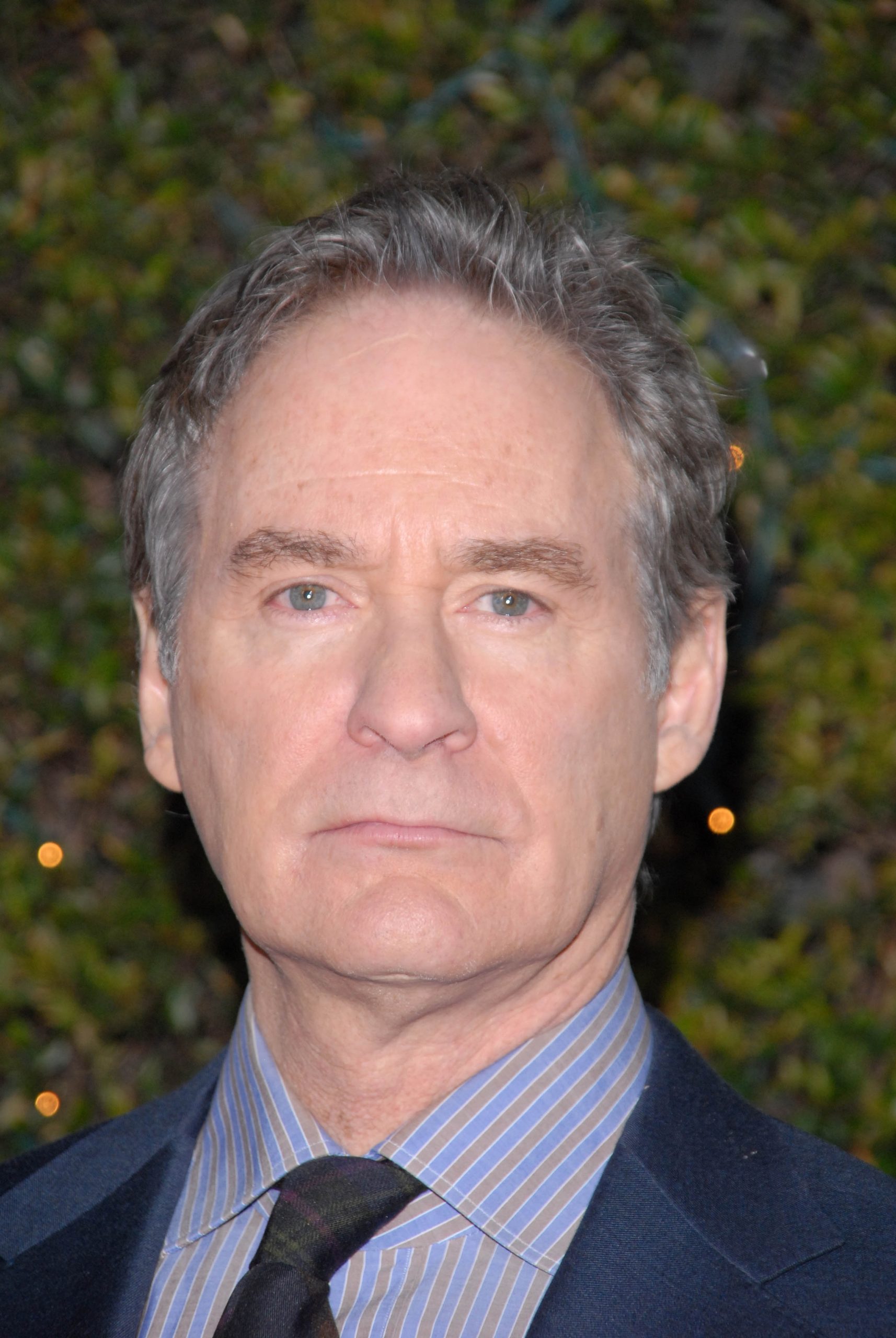
On this date in 1947, actor Kevin Delaney Kline was born in St. Louis, Missouri. Though his father was Jewish and reportedly agnostic, Kline was raised in Catholicism, his mother’s religion, and attended Catholic school. (St. Louis Post-Dispatch, Sept. 7, 1996) Kline graduated from Indiana University at Bloomington in 1970 with a degree in acting. He then attended the Julliard School for Drama in New York City and toured with the prominent City Center Acting Company.
Kline won a Tony Award in 1978 for his performance in the musical “On the Twentieth Century,” one in 1981 for Best Actor in a Musical for “The Pirates of Penzance” and one for Best Actor in a Play for the 2017 revival of “Present Laughter.” His first film, “Sophie’s Choice” (1982) starring Meryl Streep, earned him nominations for a Golden Globe and a BAFTA Award. In addition to “Sophie’s Choice,” Kline was nominated for Golden Globes for “Soap Dish” (1991), “Dave” (1993), “In and Out” (1997) and “De-Lovely” (2004).
Some of his other films include “The Big Chill” (1983), “Silverado” (1985), “I Love You to Death” (1990), “Grand Canyon” (1991), “French Kiss” (1995), “The Ice Storm” (1997), “A Midsummer Night’s Dream” (1999), “Life as a House” (2001), “The Emperor’s Club” (2002), “A Prairie Home Companion” (2006), “Definitely, Maybe” (2008) and “No Strings Attached” (2011), which starred Natalie Portman. Since 2011 he’s had a recurring role on the animated Fox comedy series “Bob’s Burgers.”
Kline won the 1989 Best Supporting Actor Oscar for “A Fish Called Wanda.” Having starred in numerous Shakespeare plays throughout his career, Kline won a Screen Actors Guild Award for his role in the film version of “As You Like It” in 2008.
Kline is an activist for juvenile diabetes research, a condition that afflicts his son. In 2004, Meryl Streep presented Kline with the Juvenile Diabetes Research Foundation’s Humanitarian of the Year Award. Kline married actress Phoebe Cates in 1989 and they have two children.
“You see, I do exist.”
— Kline answering the question “If heaven exists, what would you like to hear God say when you arrive at the pearly gates?” Bravo TV, “Inside the Actor’s Studio” (Oct. 21, 2001).
Seth MacFarlane
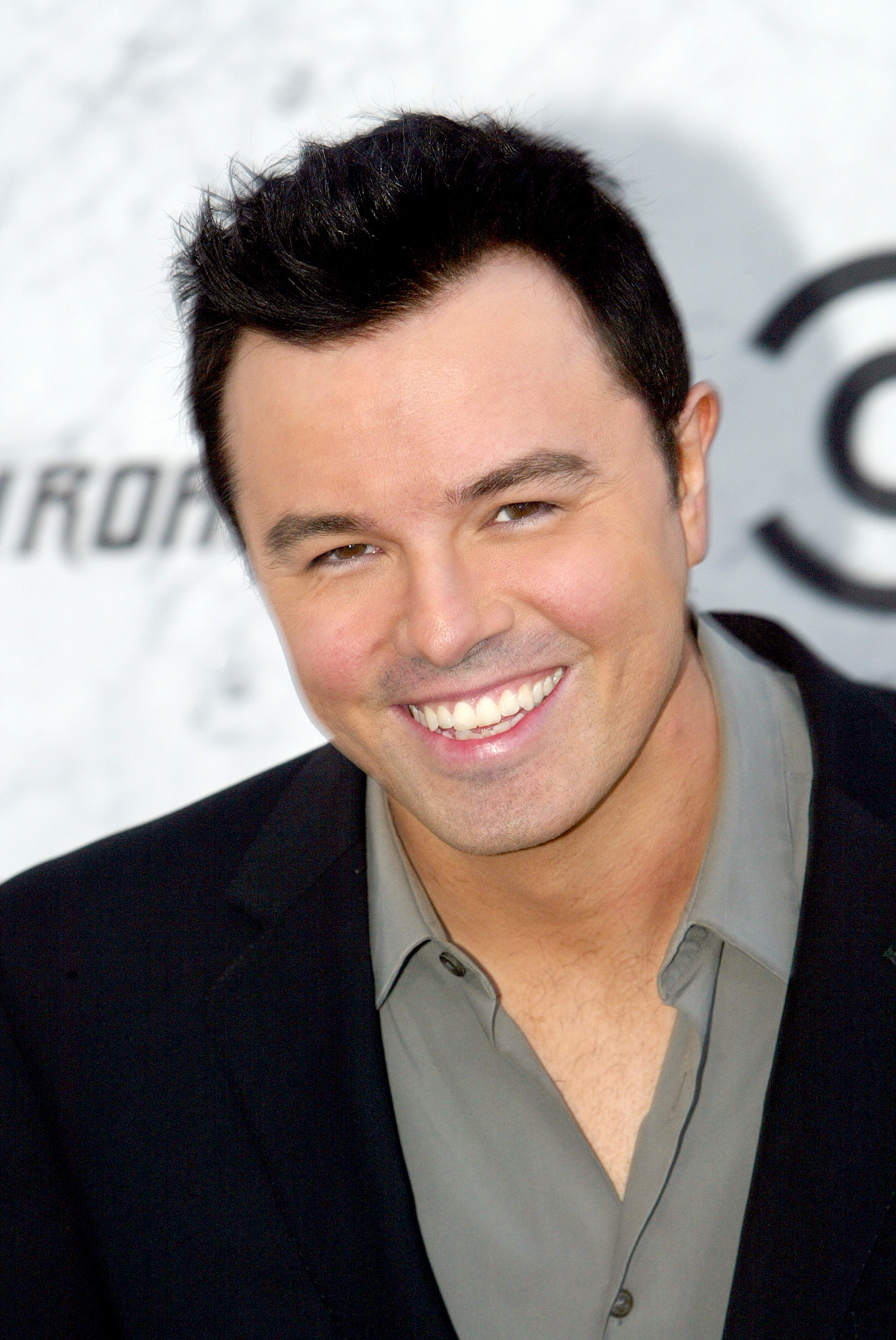
On this date in 1973, comedian, actor and producer Seth MacFarlane was born in Kent, Conn. MacFarlane is best known for creating the popular animated sitcom “Family Guy” and for voicing several of the show’s main and recurring characters. He attended the Rhode Island School of Design, where he earned his undergraduate degree and studied film and animation. He has written and recorded original songs, five albums of American Standards and has garnered five Grammy nominations. He directed, acted in, co-wrote the screenplay for and based his novel of the same name on his film “A Million Ways to Die in the West” (2014), which made a large profit during its opening weekend.
“Family Guy” debuted in 1999 and has won four Primetime Emmys. It features the character Brian Griffin, an anthropomorphic dog who was an out-and-out atheist. Brian was so beloved by fans that after he was killed off in one episode, a petition to bring him back garnered more than 128,000 signatures. He was eventually “resurrected” through use of a time machine. MacFarlane hosted the 2013 Oscars, which contained a lot of the irreverent humor he is known for that is also present in his TV shows.
MacFarlane has a second long-running, successful adult animated series in “American Dad!” that has been in production since 2005. In 2016 Fox picked up his sci-fi comedy-drama series called “The Orville.” MacFarlane co-produced with Ann Druyan “Cosmos: A Space-Time Odyssey,” hosted by Neil DeGrasse Tyson. “Cosmos” was a follow-up to “Cosmos: A Personal Voyage,” an award-winning 1980 science series co-written and presented by Carl Sagan. He has also written and recorded numerous songs and based his 2014 novel A Million Ways to Die in the West on the film.
MacFarlane is vocal in his support for atheism, gay rights and other progressive social and political movements. His frequent mocking of religion has received backlash from some religious and socially conservative groups. Bill Maher, in a CNN interview June 1, 2012, asked him what he thought about atheism gaining credibility. MacFarlane jokingly responded, “I think it’s about fucking time.” His atheism did not falter after he missed his airplane flight on the morning of Sept. 11, 2001; the plane he missed hit the North Tower of the World Trade Center. MacFarlane has said coincidences happen that do not need to be attributed to a deity.
“I do not believe in God. I’m an atheist. I consider myself a critical thinker, and it fascinates me that in the 21st century most people still believe in, as George Carlin puts it, ‘the invisible man living in the sky.’ ”
— MacFarlane, Steppin’ Out magazine (Oct. 18, 2007)
Joaquin Phoenix
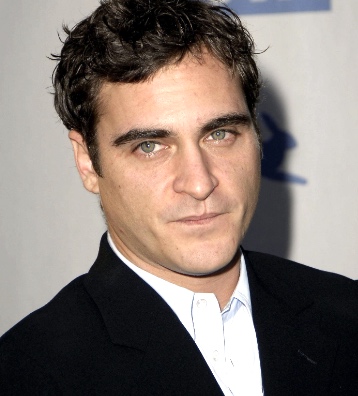
On this date in 1974, Joaquin Phoenix was born Joaquin Rafael Bottom in San Juan, Puerto Rico, to Children of God missionaries. His parents became disillusioned with the cult-like aspects of the Children of God and left the group when he was a small child. At age 4, his family, which included siblings River, Rain, Liberty and Summer, moved to Los Angeles, where the children sang and played music and eventually gained small roles on television.
Phoenix’s film debut was in “SpaceCamp” (1986) but he landed his first successful role in 1989 in the Ron Howard film “Parenthood.” While his brother River was becoming a hot new star in Hollywood, Joaquin decided to leave the business at age 15 to travel around Latin America. At 19 he was by 23-year-old River’s side as he died of an overdose outside an L.A. night club.
He achieved success in the 1990s with the films “To Die For” (1995), “Inventing the Abbotts” (1997) and “Return to Paradise” (1998). His most critically acclaimed roles occurred in the next decade, with his Academy Award-nominated role as Commodus in “Gladiator” (2000), Mel Gibson’s brother in “Signs” (2002), a reporter in “Hotel Rwanda” (2004) and the lead in “The Village” (2004). His most famous role, for which he earned an Academy Award nomination and a Golden Globe, was playing country music legend Johnny Cash in “Walk the Line” (2005).
He then had roles in “Reservation Road” (2007), “Two Lovers” (2009), “I’m Still Here” (2010), “The Master” (2012, for which he was Oscar-nominated), “The Immigrant” (2013), “Inherent Vice” (2014), “You Were Never Really Here” (2017, Cannes Film Festival Best Actor Award), “Mary Magdalene” (2017, playing Jesus) and “The Joker” (2019).
A longtime vegan, he has been a spokesperson for the Lunchbox Fund, which provides healthy meals to needy children, and People for the Ethical Treatment of Animals. He has dated actress Rooney Mara since 2016. Outspoken about his atheism, he told the Sunday Times (UK) in April 1999, “I’m not into organized religion.”
“I don’t believe in God. I don’t believe in an afterlife. I don’t believe in a soul. I don’t believe in anything. I think it’s totally right for people to have their own beliefs if it makes them happy, but to me it’s a pretty preposterous idea.”
— Joaquin Phoenix, Nylon Guys magazine (Winter 2008)
Elsa Lanchester
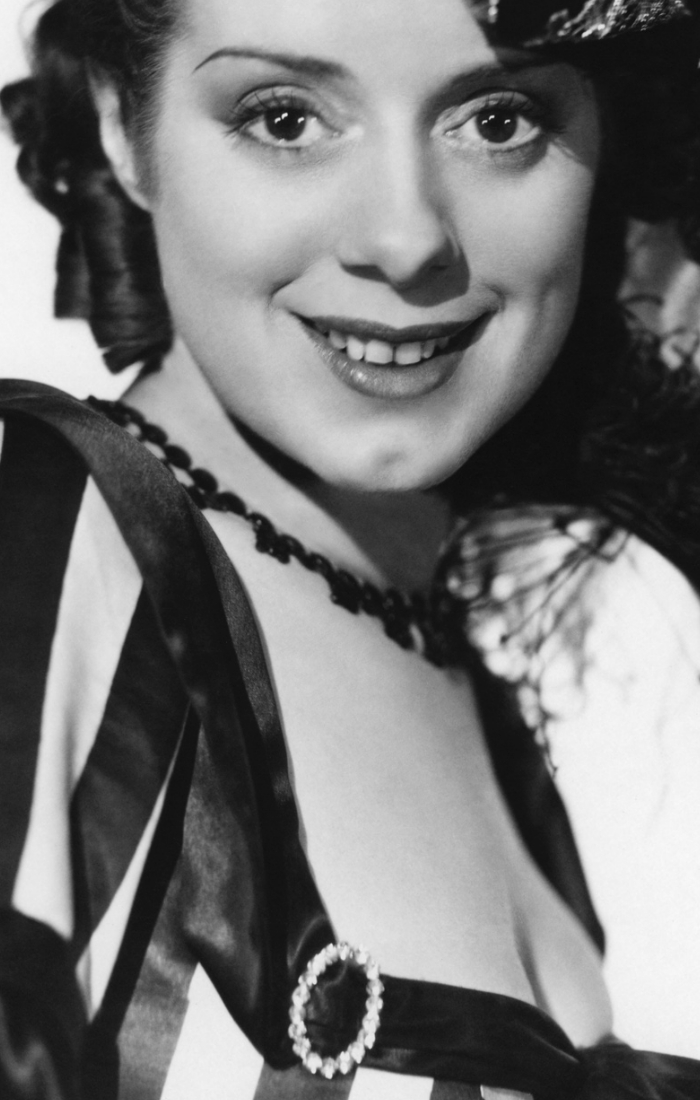
On this date in 1902, actress Elsa Sullivan Lanchester was born In London to atheist parents. She studied to be a dancer with Isadora Duncan, then turned to acting as a teenager, debuting in films in 1924. Routinely described as a “dedicated nonconformist,” she married Charles Laughton in 1929, with whom she had an unorthodox marriage.
Her splashy American debut was as the “Bride of Frankenstein” (1935). She played Anne of Cleves in “The Private Life of Henry VIII” (1933). Her many other films include: “Lassie Come Home” (1946), “The Spiral Staircase” (1947), “The Big Clock” (1949), “Come to the Stable” (1949), “Les Miserables” (1955), “The Glass Slipper” (1958), “Witness for the Prosecution” (1957), “Bell, Book & Candle” and “Mary Poppins” (1964), “Pajama Party” (1965), “That Darn Cat” (1968), “Murder by Death” (1976) and “Die Laughing” (1980).
She was nominated for Best Supporting Actress for her roles in “Come to the Stable” and “Witness for the Prosecution.” She wrote two autobiographies: Charles and I (1938) and Elsa Lanchester Herself (1983). Ultra-religious actress Maureen O’Hara, in her own autobiography, mentioned twice that Lanchester did not believe in God. (D. 1986)
PHOTO: Lanchester in 1935 in “Naughty Marietta.”
© Freedom From Religion Foundation. All rights reserved.“I never understood the changing of her last name from Sullivan to Lanchester because it sounded more elegant. Nor did I understand her hatred of religion of any kind.”
— " 'Tis Herself: An Autobiography" by Maureen O'Hara with John Nicoletti (2004)
Matt Smith
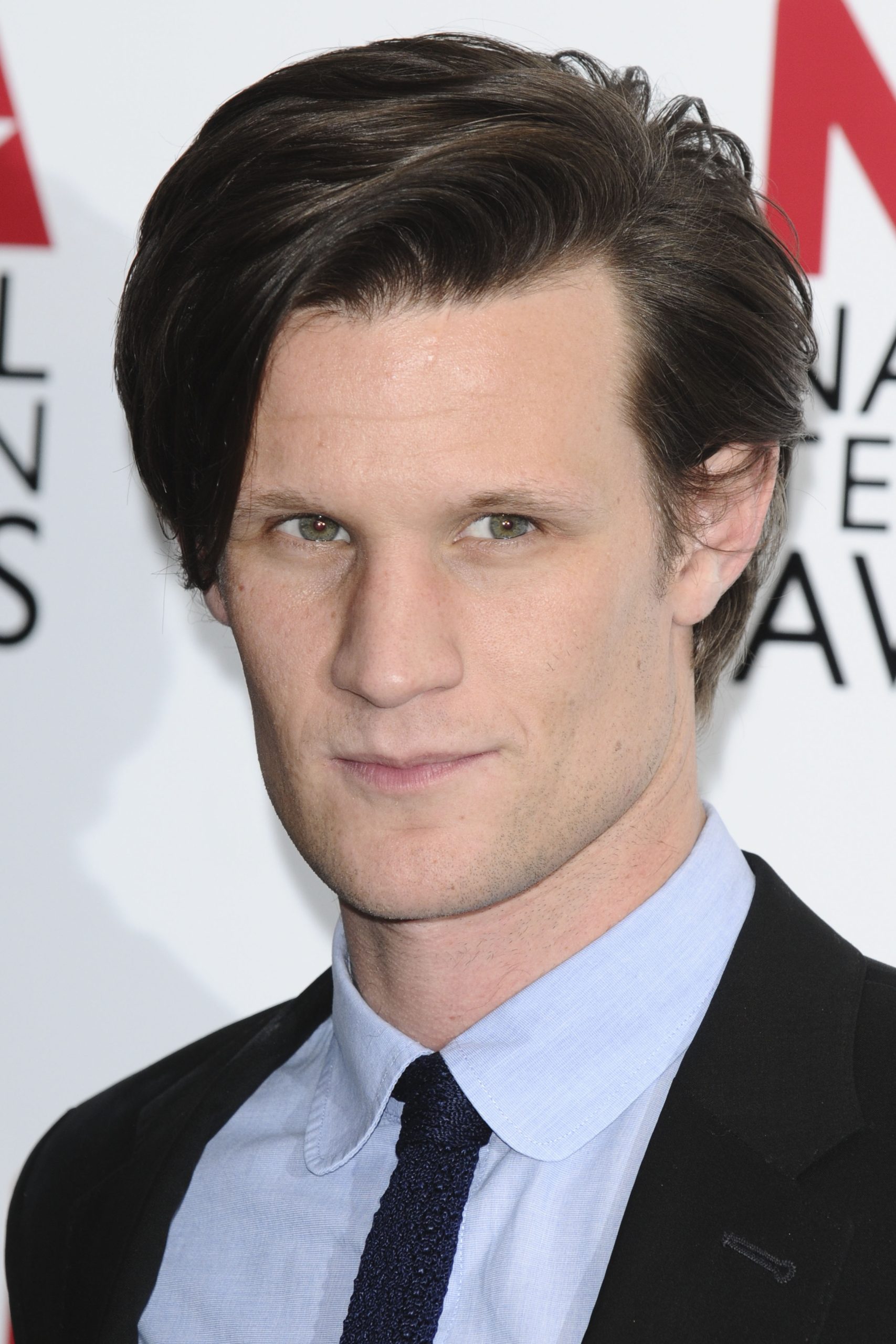
On this date in 1982, actor Matthew Robert Smith was born in Northampton, England. Smith originally intended to be a soccer player, but after suffering from career-ending back injuries and advice from his theater teacher, he turned to acting instead. He joined England’s National Youth Theatre and went on to study creative writing and drama at the University of East Anglia.
Smith is most famous for his portrayal of the 11th reincarnation of The Doctor on BBC’s “Doctor Who,” the longest running science fiction show in history. He was the youngest actor (at 26) to play the role but fans and critics responded most positively to his performance.
He has received many honors and awards, including a BAFTA nomination in 2010 for “Doctor Who.” He has also appeared in the BBC’s adaptations of Philip Pullman’s “The Ruby in the Smoke” and “The Shadow in the North” and had a major role in BBC’s “Party Animals,” a political drama. In film he starred in “Womb” (2010) and “Terminator Genisys” (2015). It was announced in 2019 that he had roles in Sony’s “Spider-Man” spinoff “Morbius” and Edgar Wright’s “Last Night in Soho.”
Smith is active in BBC’s two charities, Children in Need and Sports Relief, which help children and vulnerable people, respectively. In 2015 he was named one of GQ’s 50 Best-Dressed British Men.
“I recently read ‘The God Delusion’ by Richard Dawkins, which ignited my interest in a scientific, mathematical version of the world. No, I’m not religious. At all. I’m an atheist.”
— Smith interview in The Guardian (Dec. 3, 2011)
Burt Lancaster
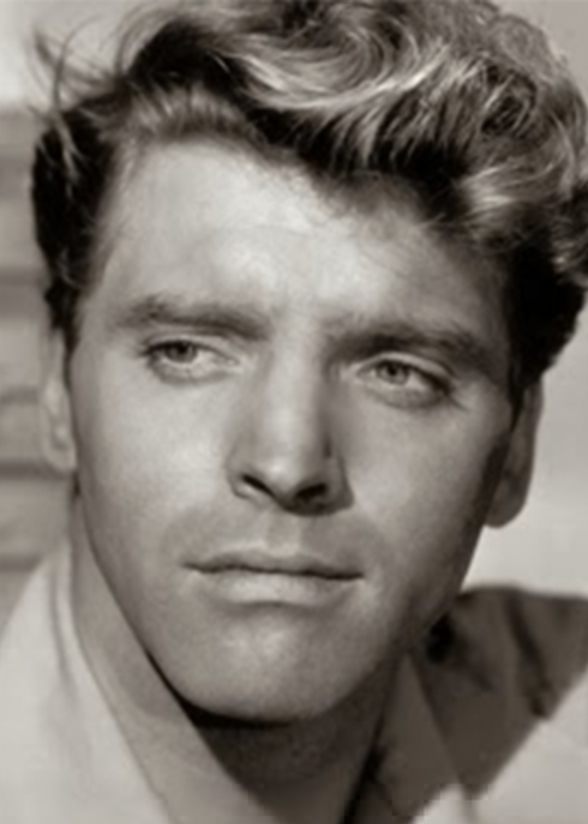
On this date in 1913, Burton Stephen Lancaster was born in New York City into an Irish Protestant family. He was one of five children and grew up in a tough neighborhood. Always intensely physical, he was given an athletic scholarship to attend New York University, where he played basketball and baseball and participated in boxing, track and gymnastics.
He dropped out of college after two years to form an acrobatic team with his boyhood friend Nick Cravat. The act of Lang and Cravat traveled and performed with several circuses, including the Ringling and Barnum troupes, from 1932-39. In 1945, at age 32, he was “discovered” while on furlough. A theatrical producer’s assistant, upon seeing the tall, muscular Lancaster, asked him to try out for a role in a play called “The Sound of Hunting.”
Lancaster starred with Ava Gardner in his first film, “The Killers” (1946), based on a short story by Ernest Hemingway, which was the beginning of a long career that lasted until 1989. He appeared in nearly 80 films. Due to his physical prowess, he performed his own stunts, much to the chagrin of his producers, in that it caused him to become a high insurance risk. He was tough physically and in his religious, ethical and political stances and was willing to risk money and status to stand up for his beliefs.
In 1947 he was nearly blacklisted after signing a letter deploring the Red-baiting witch hunts in Hollywood. The FBI kept a file detailing his activities. An avowed atheist, he turned down the role of Ben-Hur but took on the role of a corrupt evangelist in “Elmer Gantry” (1960) because he wanted to make an anti-Billy Graham statement. He won the Best Actor Oscar for his performance as the oily preacher.
Lancaster participated in Martin Luther King’s March on Washington in 1963, actively campaigned for George McGovern in the 1972 presidential election and was one of 575 people named on President Nixon’s 1973 “Enemies List.” He publicly associated himself with AIDS research in 1985. In 1988, in response to George H.W. Bush’s comment deriding presidential opponent Michael Dukakis as a “card-carrying member of the ACLU,” Lancaster was featured in a TV ad “confessing” that he, too, carried an ACLU card.
He was married three times. His first two marriages, to June Ernst from 1935-46 and Norma Anderson from 1946-69, ended in divorce. His third, to Susan Martin, was from September 1990 until his death in Los Angeles at age 80 after his third heart attack. All five of his children were with Anderson.
As he had requested, no memorial or funeral service was held for him. His ashes were scattered under a large oak tree in Westwood Village. (D. 1994)
“The Ten Commandments, he said, were fine — but not for him.”
— Kate Buford, "Burt Lancaster: An American Life" (2000)
Thandiwe Newton
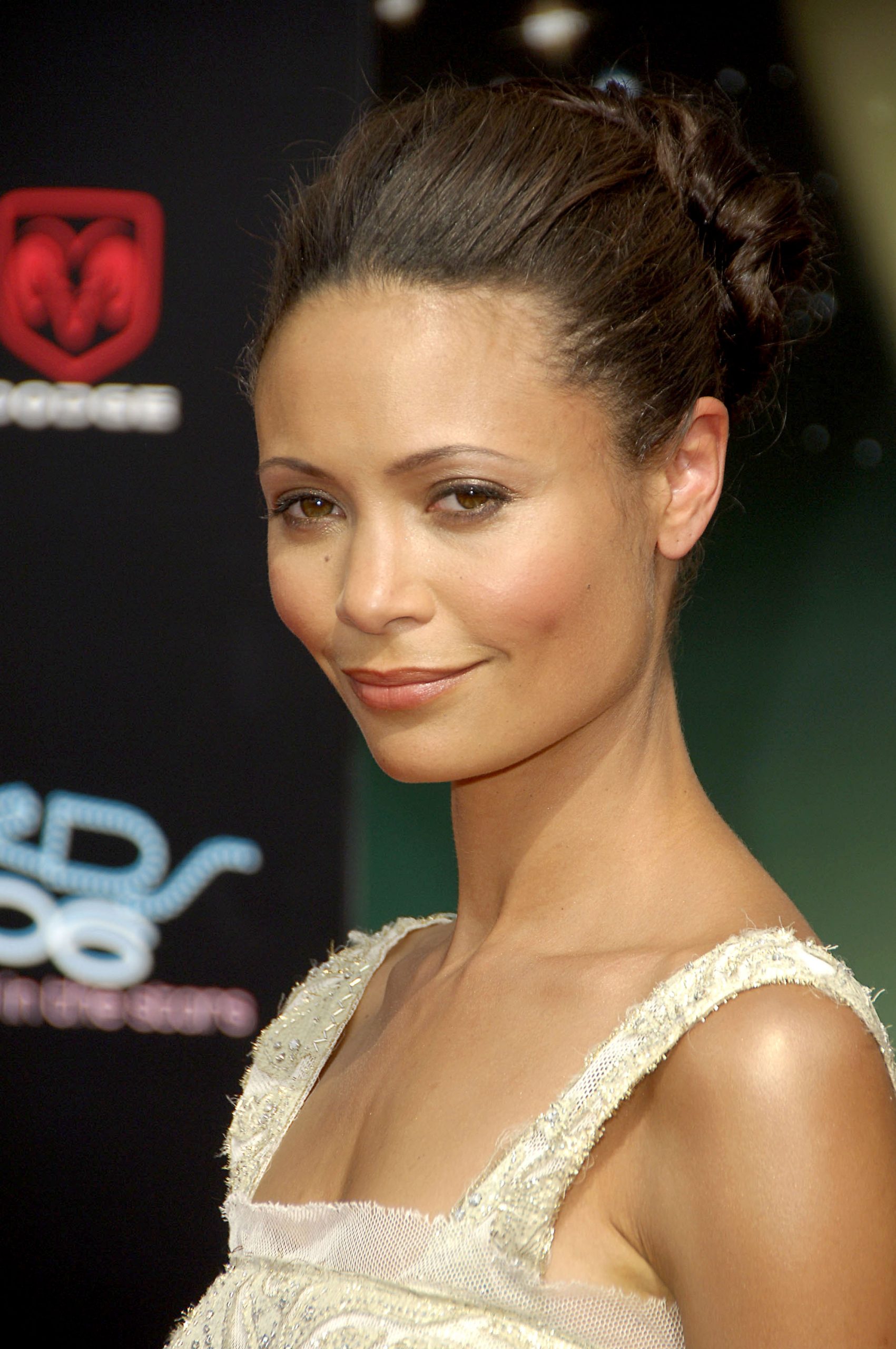
On this date in 1972, a film star was born in London. Thandiwe Newton, a culturally diverse British woman with a flair for the arts, spent her early days living in Africa and England. Her parents had met in a hospital in Zambia. Her mother, a Zimbabwean health care worker, and her father, a British lab technician, moved back to Zambia after Newton was born and remained there until they were forced to seek political refuge.
In the UK, Newton pursued a career in dance while attending the University of Cambridge. She earned a degree in social anthropology in 1995. A back injury prevented her from attaining her dream of becoming a famous dancer. Her film debut was in 1991 in the Australian movie “Flirting.” She then had roles in “Interview with a Vampire” (1994), “Beloved” (1998), “Mission Impossible: II” (2000), “Crash” (2004), “The Pursuit of Happiness” (2006), “Norbit” (2007), “Vanishing on 7th Street” and “For Colored Girls” (2010), “Good Deeds” (2012), “Half of a Yellow Sun” (2013), “Solo: A Star Wars Story” and “The Death and Life of John F. Donovan” (2018).
In 2006 she received BAFTA, London Critic Circle Film and Empire awards for her performance in “Crash.” Her portrayal of Condoleezza Rice in “W” (2008) also earned her accolades. In 2016, she started portraying Maeve Millay in the HBO science fiction drama series “Westworld,” for which she won the Primetime Emmy Award for Outstanding Supporting Actress in a Drama Series.
Newton married English writer, director and producer Ol Parker in 1998. They have three children: daughters Ripley (b. 2000) and Nico (b. 2004) and son Booker Jombe (b. 2014). Asked what spiritual path she follows during an interview about her film “For Colored Girls,” she answered “Buddhism.”
“I grew up on the coast of England in the ’70s. My dad is white from Cornwall and mum is black from Zimbabwe. Even the idea of us as a family was challenging to most people, but nature had its wicked way and brown babies were born. But from about the age of 5 I was aware that I didn’t fit, I was the black atheist kid in the all-white Catholic school run by nuns, I was an anomaly.”
— Newton, "Embracing otherness, embracing myself," TEDGlobal 2011, Edinburgh, Scotland (July 14, 2011)
George Hahn
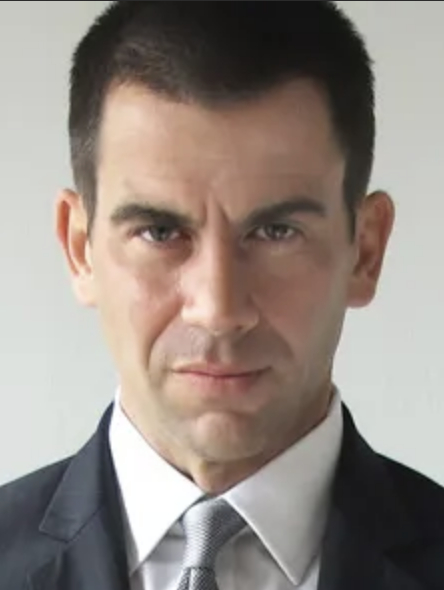
On this date in 1970, media personality George Hahn — fashion maven, writer and former actor — was born to Lynda and George Hahn in the Cleveland suburb of Lakewood, Ohio, where he grew up and attended Catholic grade school and a Jesuit high school.
He studied advertising design and layout at Boston College, another Jesuit school, where he got involved in theater and decided to accept and stop hiding that he was gay. “I was a classic Catholic closet case, tightly wrapped in fear, guilt and shame. If anything or anyone came close to exposing me and my proclivity, I’d do what many do: run and shun.” (blog, April 29, 2020)
After graduation he worked in Boston and New York as a hair salon receptionist, night club personality and actor. “My cousin Kathryn Hahn eventually joined me behind the reception desk where we both charged New York’s wealthiest Prozac-stoned women thousands of dollars for highlights, bang trims and manicures that didn’t make them look any younger.” (Ibid.) Kathryn went on to star as grief counselor Lily Lebowski in the NBC crime series “Crossing Jordan,” launching a successful acting career.
Hahn garnered connections forged in salons, as a waiter and on “both sides of the bar” into landing minor TV roles in episodes of “Sex and the City” and “Law and Order: Criminal Intent” and in the 2001 movie “Kate & Leopold.” From 2004 to 2012, he owned and operated a graphics and web design business focusing on entertainment. He used his comedy skills to work as social media director for Joan Rivers. In 2011 he had launched georgehahn.com “as the blog that I wanted to read: a journal designed for men who weren’t millionaires, but who also wanted to look good and live well.”
“How George Hahn, Urban Raconteur, Spends His Sundays” said the headline on a New York Times feature story (April 16, 2021), detailing that he has over 128,000 followers on Twitter, including entertainers Jane Lynch and Wanda Sykes. “But he still has his day job — as a patient concierge for a cosmetic dermatologist,” the story said, adding that Hahn lives with his dogs Smokey and Lenore in a 360-square-foot converted hotel room in Manhattan. He became a correspondent for the syndicated TV newsmagazine “Extra” in 2021.
Hahn, who is gay, mused in one blog about how his father would have come to terms with his sexuality: “He was a somewhat conservative guy, and I always sought his pride and approval. But if the Catholic construct of heaven does exist, then he is in an enlightened and loving state of grace with everything.”
He got tougher on religion in a tweet about a petition drive to remove U.S. Rep. Marjorie Taylor Greene from Congress: “If I believed in god, I’d pray for this freak’s removal. My belief in freedom *from* religion (and cults) leaves me to rely on people with reason to get their shit together and get rid of this nut bag so we can get on with a more effective government.” (Twitter, Jan. 29, 2021)
“Can we get back to the fight against religious psychos who think it’s appropriate to impose their will and their reign of terror onto women?”
— Hahn tweet after a SCOTUS draft opinion on abortion was leaked (May 4, 2022)
Jodie Foster
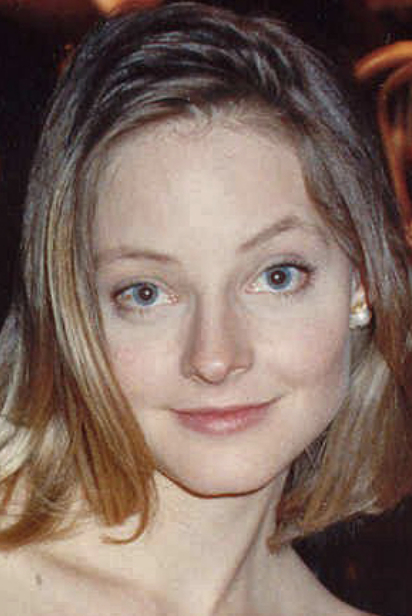
On this date in 1962, actress Alicia Christian “Jodie” Foster was born in Los Angeles. Her parents divorced before she was born and she never established a relationship with her father. Her professional debut was at age 3 in a Coppertone Suntan lotion commercial. Foster made a series of TV appearances and movies as a child, the first on “Mayberry R.F.D., and was once mauled by a lion while making a Disney film. Her breakthrough role was as a preteen prostitute in “Taxi Driver” (1976).
She graduated from a French-language prep school, the Lycée Français de Los Angeles, in 1980. During her freshman year at Yale, John Hinckley Jr., obsessed with her in “Taxi Driver,” started stalking her. Hinckley tried to assassinate President Ronald Reagan in a warped paean to Foster in 1981. She graduated magna cum laude with a degree in literature in 1985.
She has earned two Academy Awards as best actress, for “The Accused” (1988) and for “The Silence of the Lambs” (1991). Her many movies include “Nell” (1994), and “Contact” (1997), in which she memorably portrayed the atheist astronomer protagonist based on Carl Sagan‘s novel. She has also directed movies, including “Little Man Tate” (1991) and “Home for the Holidays” (1995). Her latest role as of this writing in 2019 was in “Hotel Artemis” (2018).
Foster’s sexual orientation became a subject in 1991 when activists protesting alleged homophobia in “The Silence of the Lambs” claimed she was a closeted lesbian. While she had long been in a relationship with Cydney Bernard, Foster first publicly acknowledged her orientation in 2007. She and Bernard split in 2008 after 15 years together, with joint custody of sons Charles and Kit (ages 20 and 17 in 2019). Foster married photographer Alexandra Hedison in 2014. She has said she would tell Charles who his biological father is when he turned 21.
“People are always surprised when I say that I’m an atheist,” Foster told Esquire magazine (“What I’ve Learned,” Dec. 14, 2010). “In my home, we ritualize all of them. We do Christmas. We do Shabbat on Fridays. We love Kwanzaa. I take pains to give my family a real religious basis, a knowledge, because it’s being well educated. You need to know why all those wars were fought.”
Photo: Foster at the 1989 Academy Awards; photo by Alan Light.
“I absolutely believe what Ellie [the atheist astronomer in the movie ‘Contact’] believes — that there is no direct evidence, so how could you ask me to believe in God when there’s absolutely no evidence that I can see? I do believe in the beauty and the awe-inspiring mystery of the science that’s out there that we haven’t discovered yet, that there are scientific explanations for phenomena that we call mystical because we don’t know any better.”
— Foster, interview with The Georgia Straight weekly (July 10, 1997)
Bjork
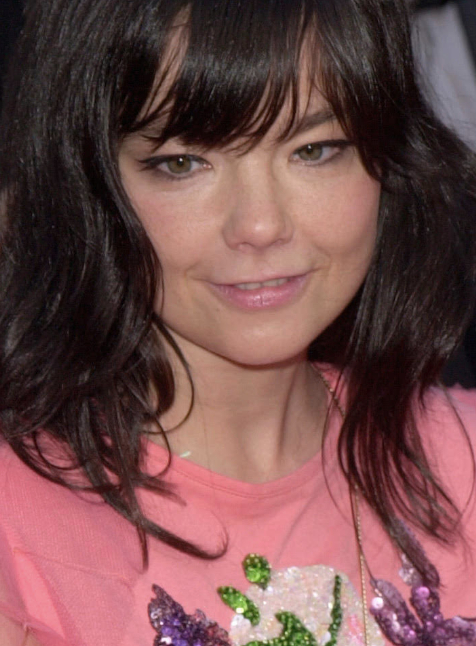
On this date in 1965, recording artist Björk (née Björk Gudmundsdottir) was born in Reykjavík, Iceland. Her mother, an environmental activist, and her father, a union electrician, divorced when she was 6. She moved with her mother to a commune. She studied classical piano as an elementary student. When her teachers submitted a tape of her singing “I Love to Love” to Iceland’s Radio One, it became a hit.
Her first album was released when she was 11. She had formed two bands by age 14. She sang with an avante-garde pop band, The Sugarcubes, in 1986, which became successful internationally. Bjork ventured on a solo career in 1993, which has encompassed the dance and club culture, punk, jazz standards and ballads. She won the 2000 Best Actress Award at Cannes for playing the lead role in “Dancer in the Dark,” for which she also composed the score. “Dancer” also won Best Picture at Cannes.
Several of Björk’s albums have reached the top 20 on the U.S. Billboard 200 chart, the most recent being “Vulnicura” (2015). “Utopia” was released in 2017. She has had 31 singles reach the top 40 on pop charts around the world, with 22 top 40 hits in the UK, including the top 10 hits “It’s Oh So Quiet.” “Army of Me” and “Hyperballad.” She is reported to have sold between 20 and 40 million records as of 2015.
Björk met guitarist Þór Eldon in the early ’80s. They married in 1986 and had a son, Sindri, that same year but divorced soon after his birth.
When asked if she believes in God, she replied, “I do not believe in religion, but if I had to choose one, it would be Buddhism.” (Les Inrockuptibles No. 14, June 16, 1995.) Earlier she told the Irish magazine Hot Press, “If I get into trouble, there’s no God or Allah to sort me out. I have to do it myself.” (“Björk on the Wild Side,” 1994)
PHOTO: Björk at the premiere of “Dancer in the Dark” at the Cannes Film Festival; Paul Smith/Featureflash Photo.
“I was sure that I was an atheist, but as I matured I realized nature is my religion.”
— Björk Facebook post (Dec. 9, 2012)
Billy Connolly
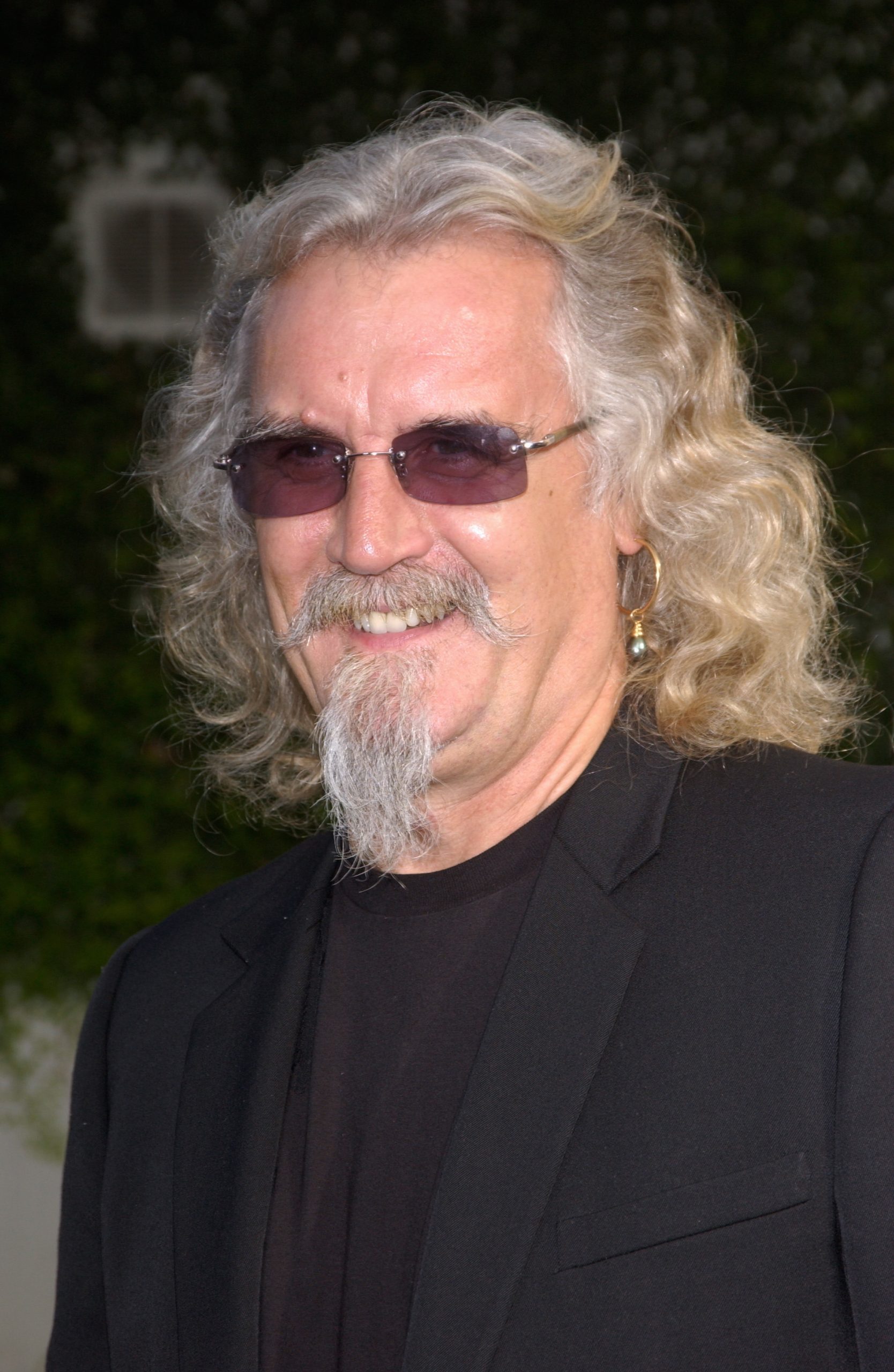
On this date in 1942, Billy Connolly was born in Glasgow, Scotland. His early years were difficult; his mother abandoned him and his sister Florence when Connolly was 4 and their father was away with the army. In the 2001 biography Billy, written by Connolly’s second wife, Pamela Stephenson, Connolly described being sexually abused by his father between the ages of 10 and 15. Connolly was raised Catholic and blames the Catholic Church’s prohibition of divorce, at least in part, for his sexual abuse. After high school graduation he worked as a welder in a shipyard.
In the mid-1960s he started performing as a folk singer in the duo “The Humblebums.” After the breakup of the duo, Connolly began to perform solo and transitioned from a singer who told long comedic stories to a comedian who sometimes sang funny songs. Connolly’s comedy became very popular throughout Britain in the mid-1970s. In 1969 he had married Iris Pressagh and they had two children. Connolly’s involvement with show business and his problems with drugs and alcohol ended the marriage in 1985. He married Stephenson in 1989 after they had three daughters together.
In 1990, after featuring in an HBO standup special with Whoopi Goldberg, his popularity in America grew. He was cast in the sitcom “Head of the Class” in the 1990-91 season and moved with his family to Los Angeles. Connolly has since been featured as a character actor in many television and movie productions, as well as continuing his career as a comedian. Much of his comedy is idiosyncratic and irreverent. He uses profanity freely and jokes about many of the more difficult, abusive experiences of his childhood. He also takes many potshots at religion, especially Catholicism.
“I don’t like religion. I think religion is a con.”
— Connolly to The SunBreak online magazine in Seattle (March 18, 2010)
Bruce Lee
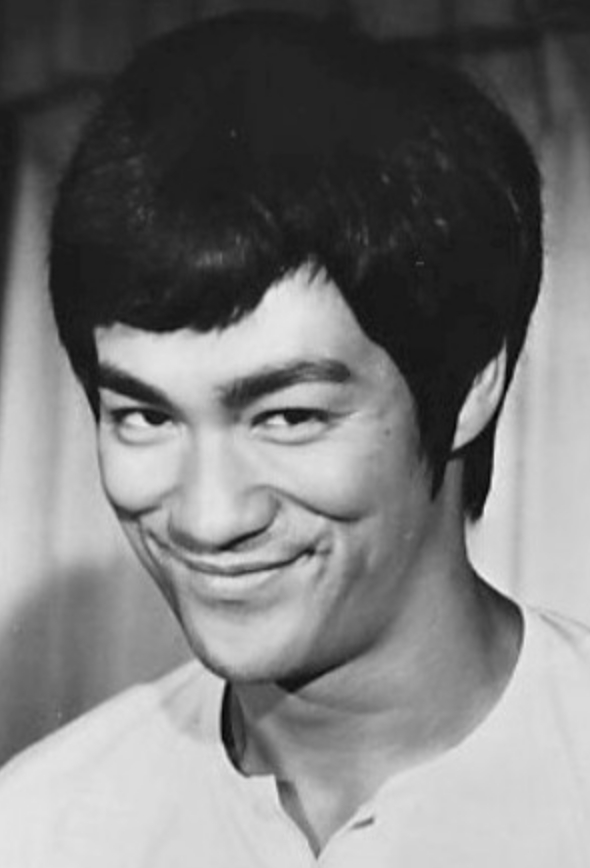
On this date in 1940, philosopher and martial artist Lee Jun-Fan, better known by his English name Bruce Lee, was born in San Francisco while his parents were on tour with the Chinese Opera. Lee was raised in Hong Kong, where he studied martial arts and worked as a child actor. He was raised by a Catholic mother and a Buddhist father and was not personally religious. When he was 18 he emigrated to the U.S to study drama and philosophy at the University of Washington-Seattle, eventually becoming a citizen.
Lee opened his first martial arts school, where he taught the traditional Chinese gung fu method. Lee married one of his students, Linda Emery, in 1964. His big break into acting came with the role of Kato in the TV series “The Green Hornet” (1966-67). Five feature-length martial arts films followed: “The Big Boss” (1971), “Fist of Fury” (1972), “The Way of the Dragon” (1972), “Enter the Dragon” (1973) and “The Game of Death” (1978).
Although he never received his degree in philosophy, his interest in the subject continued throughout his life and he wrote extensively about it while seeking to “infuse the spirit of philosophy into martial arts.” (Lee’s essay “Me and Jeet Kune Do,” reprinted in Words of the Dragon, ed. John Little, 1997.) He combined influences from various schools into his personal martial arts philosophy, which he dubbed Jeet Kune Do (The Way of the Intercepting Fist). Lee was named by Time magazine in 1999 as one of the 100 most influential people of the 20th century.
Lee and his wife had two children: Brandon, born in 1965, and Shannon, born in 1969. Brandon died in 1993 during filming of “The Crow” when another actor fired blank ammunition at him “which in turn propelled into Mr. Lee’s abdomen a lethal obstruction that had been lodged in the barrel of the gun during the filming of another scene several weeks earlier,” according to Linda Lee’s lawsuit.
He died at age 32 in Hong Kong on July 20, 1973, of cerebral edema, which he had been treated for in May. An autopsy determined pain medication for a headache fatally exacerbated the condition, a determination that was contested by others. Biographer Matthew Polly wrote in 2018 that Lee had had his underarm sweat glands removed in 1972 because he thought underarm sweat was unphotogenic and that heat stroke during workouts may have contributed to the cerebral edema. He was buried in Seattle. (D. 1973)
PHOTO: Lee in 1971 during filming of “The Big Boss.”
“When asked by journalist Alex Ben Block in the summer of 1972 what his religious affiliation was, Lee answered: ‘None whatsoever.’ Block then pressed him further, asking him if he then believed in God: ‘To be perfectly frank, I really do not.’ ”
— John Little, "The Warrior Within: The Philosophies of Bruce Lee" (1996)
Gael García Bernal
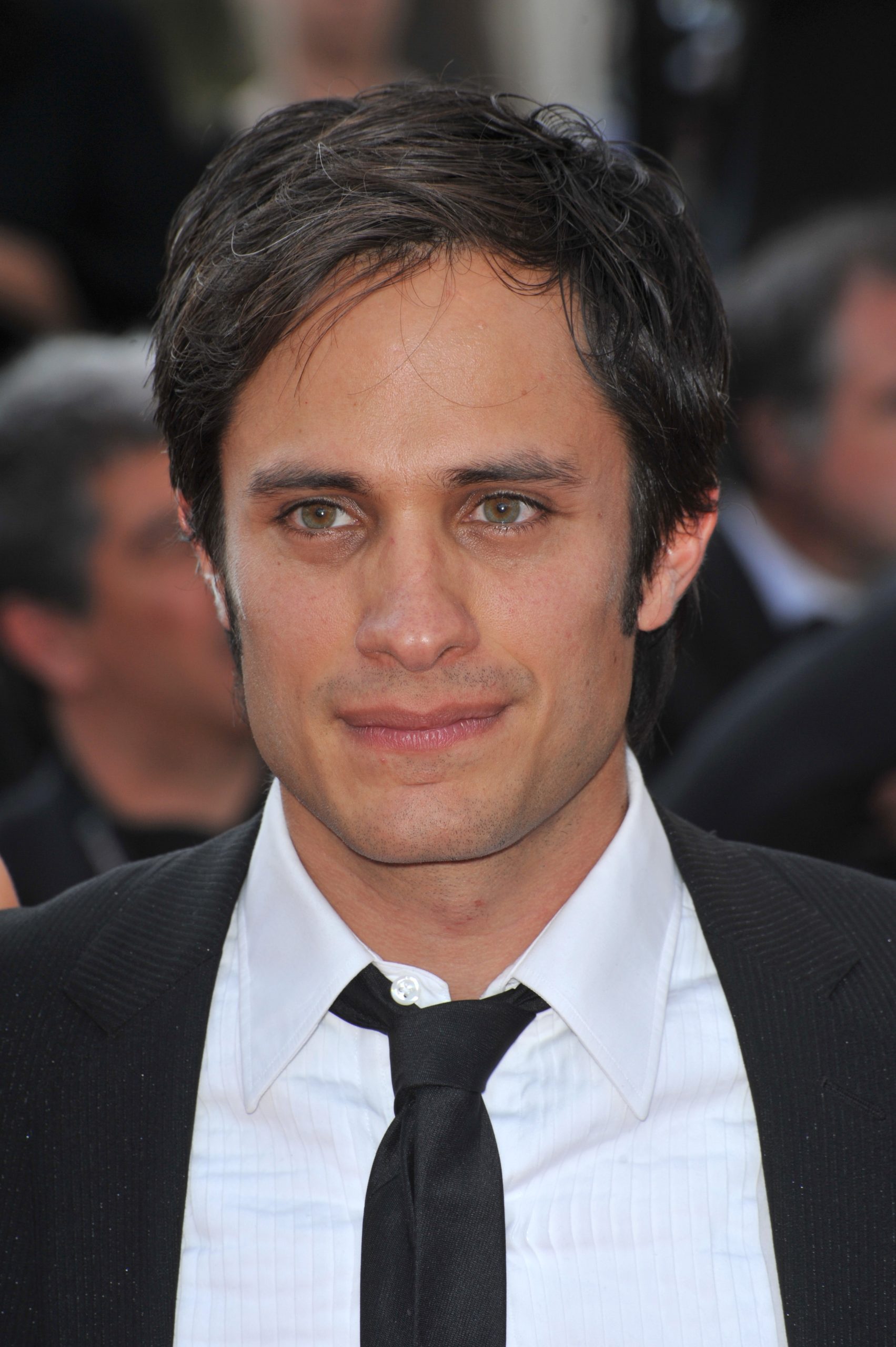
On this date in 1978, actor Gael García Bernal was born in Guadalajara, Mexico. He became the first Mexican accepted into London’s prestigious Central School of Speech and Drama, where he studied drama. He appeared as a teen in telenovelas (soap operas) and has appeared in many films, including “Amores perros” (2000), “Y tu mama tambien” (2001), “El Crimen del padre Amaro” (2002), “The Motorcycle Diaries” (2004), “Bad Education” (2004), “Babel” (2006), “Even the Rain” (2010), “Casa de Mi Padre” (2011) and “No” (2012).
García Bernal was nominated for a BAFTA Best Actor Award for “The Motorcycle Diaries” and “No” received a nomination for Best Foreign Film at the Oscars. He continued to land acting, directing and voice roles in the mid- to late-2010s. He won a 2016 Golden Globe for Best Actor — Television Series Musical Or Comedy for “Mozart in the Jungle,” Amazon Studios’ web TV series. Time magazine in 2016 named him a Most Influential person.
In the movie “El Crimen del padre Amaro,” García Bernal plays a young priest who forms a relationship with a teen girl whom he impregnates. He pressures her to get an abortion and the unregulated procedure kills her. The Catholic Church attempted to stop its release in Mexico.
He married Argentinean actress Dolores Fonzi in 2009. They have two children, Lazaro and Libertad.
“I am … culturally Catholic, but spiritually agnostic.”
— García Bernal, interview with El Universal newspaper, Mexico City (Feb. 2, 2003)
“Yo soy … culturalmente Católico, pero espiritualmente agnóstico.”
Sarah Silverman
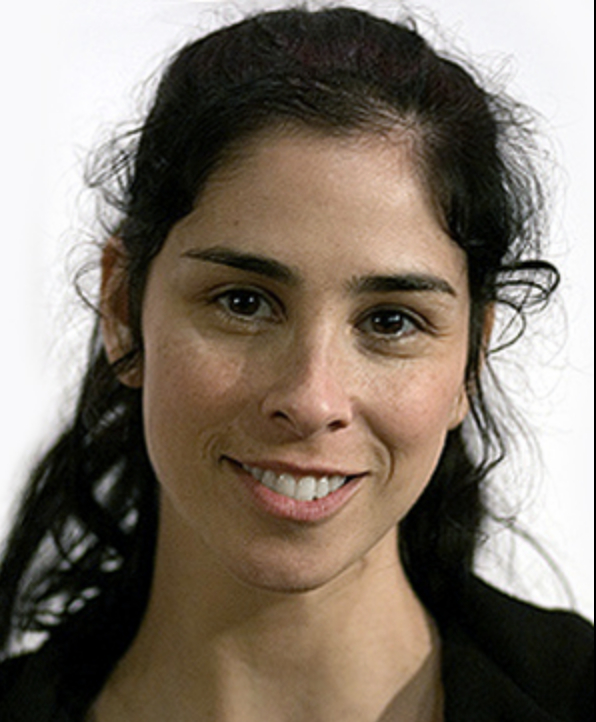
On this date in 1970, Sarah Kate Silverman was born in Manchester, New Hampshire, into a secular Jewish home. Silverman acted in plays as a teen and first performed stand-up comedy at age 17. She attended New York University for a year and dropped out to work in New York City comedy clubs. Silverman worked as a writer and featured player on “Saturday Night Live” for the 1993-94 season when she was only 21. She was featured on “Mr. Show,” a sketch comedy show on HBO, from 1995-97.
Silverman appeared in films such as “There’s Something About Mary” (1998), “Heartbreakers” (2001), “The School of Rock” (2003), “Rent” (2005) and “The Muppets” (2011). Her film based on her stand-up, “Sarah Silverman: Jesus is Magic,” got positive reviews in 2005. “The Sarah Silverman Program” aired on Comedy Central between 2007 and 2010 and was one of the network’s highest rated shows.
Silverman was nominated for an Emmy for her acting on the show in 2009. She won an Emmy for Outstanding Original Music and Lyrics in 2008 for the short video she also starred in called “I’m Fucking Matt Damon,” which first aired on “Jimmy Kimmel Live.” (She and Kimmel were in a relationship from 2002-08.) Her memoir, The Bedwetter: Stories of Courage, Redemption and Pee (2010), was a New York Times best-seller.
In a comic video first seen on “Real Time with Bill Maher,” Silverman suggests to the pope: “Sell the Vatican, take a big chunk of that money, build a gorgeous condominium for you and all of your friends to live in, all the amenities, swimming pool, tennis court, water slide. And with the money left over, feed the whole fucking world. You preach to live humbly, and I totally agree. So now maybe it’s time for you to move out of your house that is a city.”
In an interview on “CNN Larry King Live,” King asked her if she was agnostic, to which she replied, “Yes, I’m agnostic. I don’t know. I just don’t know. I think people need religion because they need to know. They need to get their head around it. But you know, I don’t know. I don’t know what the answers are.” (April 20, 2010)
PHOTO: Silverman at the 2007 Tribeca Film festival. Joan Garvin public domain photo.
“I just think of myself as a comedian, really. I mean, I talk about being Jewish a lot. It’s funny because I do think of myself as Jewish ethnically, but I’m not religious at all. I have no religion.”
— Silverman in an interview with Slate online (Nov. 10, 2005)
Julianne Moore
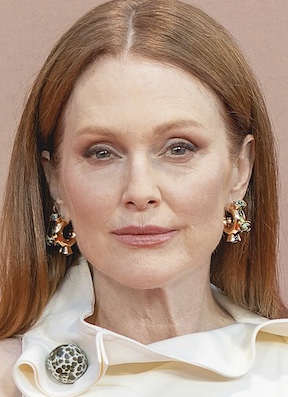
On this date in 1960, actress Julianne Moore (née Julie Anne Smith) was born in Fayetteville, N.C. Her mother was a Scottish social worker and her father an American military judge. She traveled around the world with her parents, graduating from Frankfurt American High School in Germany in 1979. Julianne earned her bachelor of fine arts degree from the School of the Performing Arts in Boston University in 1983.
After appearing in theater, TV soaps, miniseries and TV movies, she caught directors’ eyes when appearing in supporting roles in several movies, including “The Fugitive” (1993). Her breakthrough role was in “Safe” (1995), followed by movies such as “Nine Months” (1995), “Assassins” (1995), “Surviving Picasso” (1996), playing Dora Maar, “Boogie Nights” (1997), “The Big Lebowski” (1998), “An Ideal Husband” (1999), “Magnolia” (1999), “End of the Affair” (1999), “Evolution” (2001), “The Hours” (2002), “Far From Heaven” (2002), “The Kids Are All Right” (2010) and “Crazy, Stupid, Love” (2011).
Moore went on to give an Academy Award-winning Best Actress performance in 2014 as an Alzheimer’s patient in “Still Alice” and was named Best Actress at the Cannes Film Festival for “Maps to the Stars,” also in 2014. She also appeared in the final two films of “The Hunger Games” series and starred in the spy film “Kingsman: The Golden Circle” (2017). She is a pro-choice advocate who is active with Planned Parenthood.
She co-starred with Tilda Swinton in “The Room Next Door” in 2024, Pedro Almodóvar‘s first English-language feature film which won the Golden Lion at the 2024 Venice Film Festival.
Moore married actor and stage director John Gould Rubin in 1986, and after a 1995 divorce started a relationship in 1996 with Bart Freundlich, her director on “The Myth of Fingerprints.” They have a son, Caleb, born in 1997, and a daughter, Liv, born in 2002. Moore and Freundlich married in August 2003.
PHOTO: Moore in London at the premiere of “The Room Next Door” in 2024; photo by Raph_PH under CC 2.0.
“She says she doesn’t believe in God and has a strong sense that meaning is imposed on a chaotic world. ‘I learned when my mother died five years ago that there is no there there.’ ”
— Interview, "Julianne Moore Believes in Therapy, Not God," The Hollywood Reporter (Jan. 28, 2015)
Fred Armisen
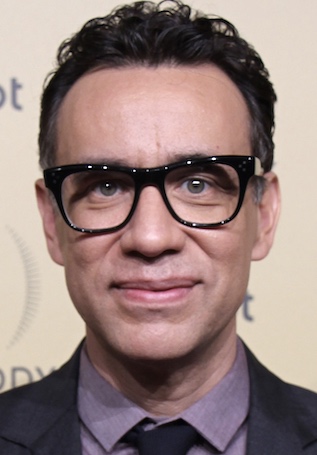
On this date in 1966, Fereydun Robert “Fred” Armisen was born in Hattiesburg, Miss., to Hildegardt Mirabal Level, a teacher, and Fereydun Herbert Armisen, who worked for IBM. His mother was born in Venezuela and his father was born in Germany to a German mother and Korean father.
His parents met at the University of Southern Mississippi and moved to New York shortly after he was born. They spent two years in Rio de Janeiro before settling on Long Island, where the skills Armisen would later exhibit as an actor, comedian, writer, producer and musician were nurtured.
His first forays into entertainment were in music as a drummer with the punk rock group Trenchmouth and then the Blue Man Group. He joined “Late Night with Seth Meyers” in 2014 as music director and frequent leader of the house band 8G (named after an NBC studio). As of this writing in 2023, he is still show music director and drummer.
Armisen joined the cast of “Saturday Night Live” in 2002 and was a cast member for 11 years. Only Meyers and Darrell Hammond have had longer tenures on the show as of 2023. He landed what one interviewer called roles as “feral foreigners” in comedy films such as “Deuce Bigalow: European Gigolo,” “Anchorman: The Legend of Ron Burgundy,” “Deck the Halls,” “The Rocker,” “Tenacious D in The Pick of Destiny” and “Confessions of a Shopaholic.”
He co-created and co-starred with Carrie Brownstein of the Sleater-Kinney band in the sketch comedy series “Portlandia” that spoofed the reputation of Portland, Ore., as a haven for eccentric hipsters. It debuted in 2010 and ran for eight seasons on the Independent Film Channel. It won a Peabody Award and a Writers Guild of America Award. He and Brownstein also collaborated on ThunderAnt comedy projects.
He has directed music videos for various groups and has had numerous voice-acting roles. He was the recipient in 2015 of Smithsonian magazine’s American Ingenuity Award for Performing Arts.
Armisen was married to English singer-songwriter Sally Timms from 1998-2004 and to “Mad Men” actress Elisabeth Moss from 2009-11. Moss described their time together as “extremely traumatic, awful and horrible.” According to Us Weekly, “They had issues,” one of which was her ties to the Church of Scientology. “Her religion was as important to her as their marriage, if not more,” one person told Us. “He could not get with it.” (Us Weekly, Sept. 21, 2010)
PHOTO: Armisen at the 2015 Peabody Awards in New York City, which he emcee’d; public domain photo.
BILL MAHER: What religion are you?
— "Real Time With Bill Maher" (March 23, 2012)
ARMISEN: I’m an atheist.
John Malkovich
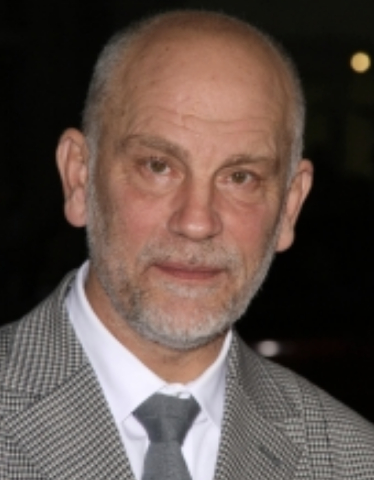
On this date in 1953, actor John Gavin Malkovich was born in Christopher, Ill., to Daniel and Joe Anne (née Choisser) Malkovich. His father was a state conservation director and publisher of Outdoor Illinois, a conservation magazine. His mother owned the Benton Evening News. He attended Eastern Illinois University and Illinois State University, majoring in theater. Malkovich joined Chicago’s Steppenwolf Theater in 1976. He won an Obie for his role in the 1983 play “True West.” He appeared in the Broadway revival of “Death of a Salesman” with Dustin Hoffman in 1984 and won an Emmy for the TV movie version.
Malkovich has made over 70 movies. His first film work was as an extra in Robert Altman’s “A Wedding” (1978). His real screen debut was as a blind man in “Places in the Heart” (1984). Other films include “The Killing Fields” (1984), “The Glass Menagerie” (1987), “Dangerous Liaisons” (1988), “Portrait of a Lady” (1996), “Con Air” (1997), “The Man in the Iron Mask” (1998), “Being John Malkovich” (1999), “Johnny English” (2003), “Burn After Reading” (2008) and “Changeling” (2008), which starred Angelina Jolie.
More recently he appeared in “Transformers: Dark of the Moon” (2011), “Warm Bodies” (2013), “Zoolander 2” (2016), “Unlocked” (2017), “Supercon” (2018) and “Velvet Buzzsaw” (2019). He also wrote and starred in “100 Years: The Movie You Will Never See” (2016), directed by Robert Rodriguez. The movie is locked in a vault in the south of France, not to be seen before 2115.
Malkovich was married to actress Glenne Headly from 1982-88. They divorced after Malkovich became involved with Michelle Pfeiffer on the set of “Dangerous Liaisons.” He met his long-term partner Nicoletta Peyran on the set of “The Sheltering Sky” in 1989. They have two children, Amandine and Loewy.
“I’m an atheist. I wouldn’t say I’m without spiritual belief particularly, or rather, specifically. Maybe I’m agnostic, but I’m not quite sure there’s some great creator somehow controlling everything and giving us free will. I don’t know; it doesn’t seem to make a lot of sense to me.”
— Toronto Star interview (Sept. 11, 2008)
Hermione Gingold
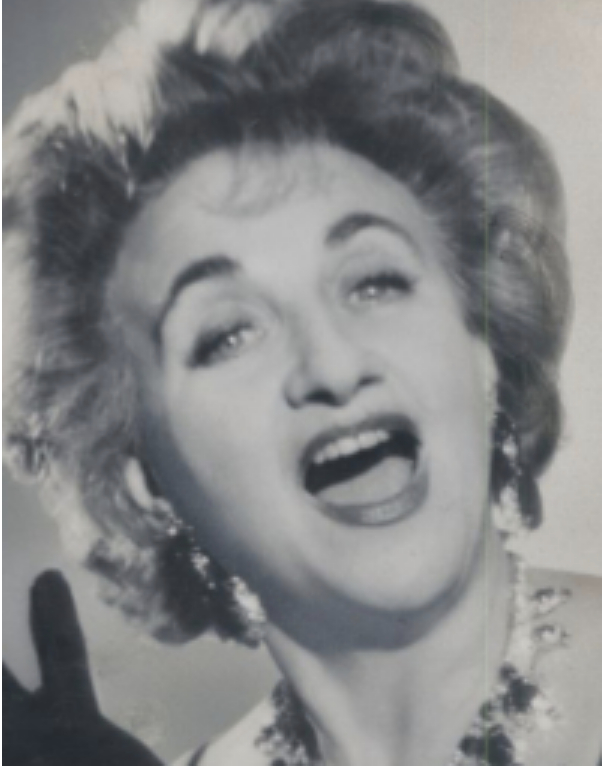
On this date in 1897, Hermione Ferdinanda Gingold, once dubbed “the funniest woman in the world,” was born in London. Her first name came from the queen of Sicily in Shakespeare’s “The Winter’s Tale.” Her career started with childhood appearances on the stage with a young Noel Coward. (Her mother, not impressed with Coward after inviting him to tea, warned Gingold, “You are never to ask that boy to tea again — he’ll come to a bad end.”) Gingold’s first stage role as a child was in the company of legendary stage actress Ellen Terry.
Gingold performed Shakespeare at London’s Old Vic and made her name in comedic revues for the BBC and on Broadway. She often wrote her own material. A critic once observed, “She can turn a melting smile into a baring of fangs more outrageously than anyone I know except Groucho Marx.” She perfected a withering stare and deadpan delivery and had a voice that was once described as “powdered glass in deep syrup.”
She is best known for the unforgettable duet with Maurice Chevalier in “Gigi” (captured in only two takes) and for portraying Eulalie Shinn, the mayor’s wife, in the film version of “The Music Man.” Gingold originated the role of Madame Armfelt in “A Little Night Music” by Stephen Sondheim. Director Hal Prince told her his only concern in casting her was whether she could pull off acting like a 74-year-old woman. “But Mr. Prince,” she told him, “I am 74.”
The ageless Gingold became the belle of Broadway at age 81 in “Side by Side with Sondheim.” In Walt Disney’s animated film, “Gay Pureee,” she and Judy Garland provided the voices of the female cats (lyrics by Yip Harburg). She was the postmistress of one-liners, recounted her friend Anne Clements Eyre in the prologue of Gingold’s autobiography. When a young man introduced himself to Gingold by saying he was in public relations, she quipped, “Oh I prefer to keep my relations private.” Eyre asked Gingold to be a godmother: “It’s only Anne,” Gingold wrote, “who would choose a godmother who isn’t religious, hates children, and lives three thousand miles away.” She mentioned several times in her autobiography that she didn’t believe in God.
She was married to the publisher Michael Joseph from 1918-26 and had two sons with him. The younger, Stephen, pioneered theater in the round in Britain. She was married to Eric Maschwitz from 1926-45. She died at age 89 in New York City. (D. 1987)
PHOTO: Gingold in the 1950s. CC 3.0
© Freedom From Religion Foundation. All rights reserved.“Although we weren’t brought up to be any particular religion, we were taught to say our prayers. I remember one that ended, ‘Thy glorious kingdom, which is for ever and ever. Amen.’ These words made me scream, “I don’t want to be anywhere for ever and ever. It’s too much.”
— Gingold in her posthumous autobiography "How to Grow Old Disgracefully" (1988)
Christopher Plummer
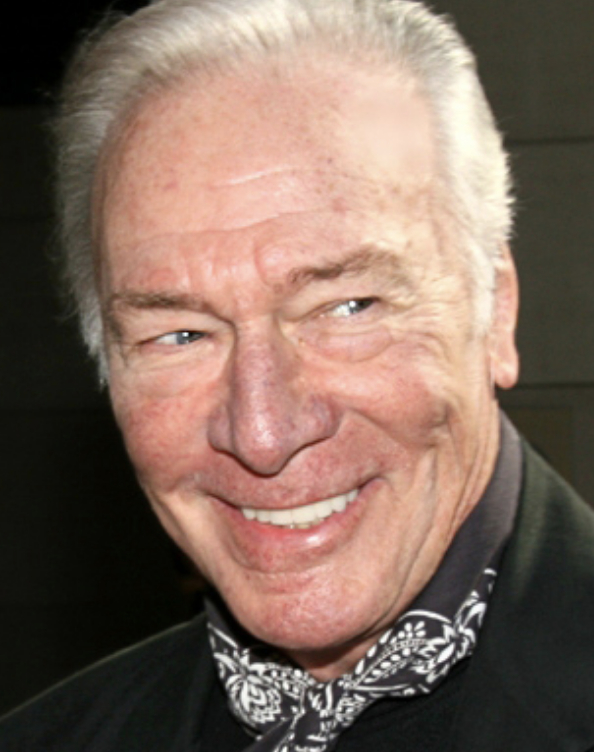
On this date in 1929, Canadian actor Arthur Christopher Orme Plummer was born in Toronto, the only child of stockbroker John Orme Plummer and Isabella Mary Abbott, who worked as secretary to the dean of sciences at McGill University. His parents separated shortly around the time of his birth.
Not until he was 17 did Plummer meet his father again, when he came to see him in a play. “Our paths would cross once or twice again in our lifetimes and then no more,” he wrote in his 2008 memoir “In Spite of Myself.” He grew up in Montreal with his mother — the granddaughter of a prime minister and a railroad president — and her extended family in what he called “a colony of fading social aristocracy.” The family attended a Church of England congregation.
He started acting in high school and then apprenticed to the Montreal Repertory Theatre, as did William Shatner. After his Broadway debut in 1953, he appeared in his first hit opposite Julie Harris in Jean Anouilh’s “The Lark” (1955). He was nominated for his first Best Actor Tony in Elia Kazan’s production of Archibald MacLeish’s Pulitzer Prize-winning “J.B.”
He won a Tony for the title role of “Cyrano,” a 1973 Broadway musical. His other Best Actor Tony was for “Barrymore” (1996). He won one Oscar, for Best Supporting Actor in 2012 for “Beginners,” also starring Ewan McGregor. In the bittersweet “Beginners,” Plummer played a man who comes out as gay after a long marriage and the death of his wife. At 82, he was the oldest person ever to win an Oscar in a competitive category until being supplanted by 83-year-old Anthony Hopkins in 2021.
He had 217 acting credits for movies, television and videos in addition to his many stage performances. If there’s one role he’s known for, it’s likely as the Austrian naval officer Georg von Trapp opposite Julie Andrews in the 1965 musical “The Sound of Music.” It won two Golden Globes and five Oscars and became the third highest-grossing American film of all time, behind “Gone With the Wind” and “Star Wars.”
In his 2008 memoir, he wrote that he avoided calling the film by name, referring to it instead as “the movie,” “S&M” or “The Sound of Mucus.” That assessment had softened by the time of its 50th-anniversary celebration in 2015: “I do respect it, even though I’ve been very naughty about it over the years,” he said. “I think it’s a marvelous family movie, and we need a family movie in these rough times.” (Newsweek, Feb. 5, 2021)
He played Hamlet, Macbeth, Richard III, Mark Antony and other Shakespeare protagonists on prominent stages to consistent acclaim, according to an obituary. “But he also accepted roles in a fair share of clinkers, in which he made vivid sport of some hoary clichés — as Reverend Carlyle, a bigot hiding behind religiosity in ‘Skeletons’ (1997), for example, one of his more than 40 television movies.” (New York Times, Feb. 5, 2021)
In a 2007 Broadway revival of “Inherit the Wind,” which was loosely based on the Scopes trial and ran for 100 performances, Plummer played a lawyer based on Clarence Darrow. “I think it’s more timely now, more universally timely,” Plummer said about religious fundamentalism and creationism in an interview. “Nobody’s learned anything at all.” In the 2005 Showtime movie “Our Fathers,” he played Boston Cardinal Bernard Law, “rewarded with a promotion” to the Vatican, noted Plummer, after it was proven Law covered up sexual abuse of children by clergy for years. (Playbill, March 16, 2007)
Plummer married three times, first to actress Tammy Grimes (1956-60), with whom he had his only child, Amanda, who became an actress. He married journalist Patricia Lewis in 1962 and divorced in 1967. His final marriage, to actress Elaine Taylor, lasted from 1970 till his death at age 91 in Weston, Conn. (D. 2021)
PHOTO: Plummer at the 2007 Toronto International Film Festival; photo by GDC Graphics under CC 2.0.
“My sort of religion is one of romance. I think the arts are the best thing to hang on to. Arts and science. I can’t join the rest of the world in the religions because they have become so bigoted and so dangerous. I just don’t believe in them.”
— Interview, The Guardian (May 7, 2011)
Paul Winchell
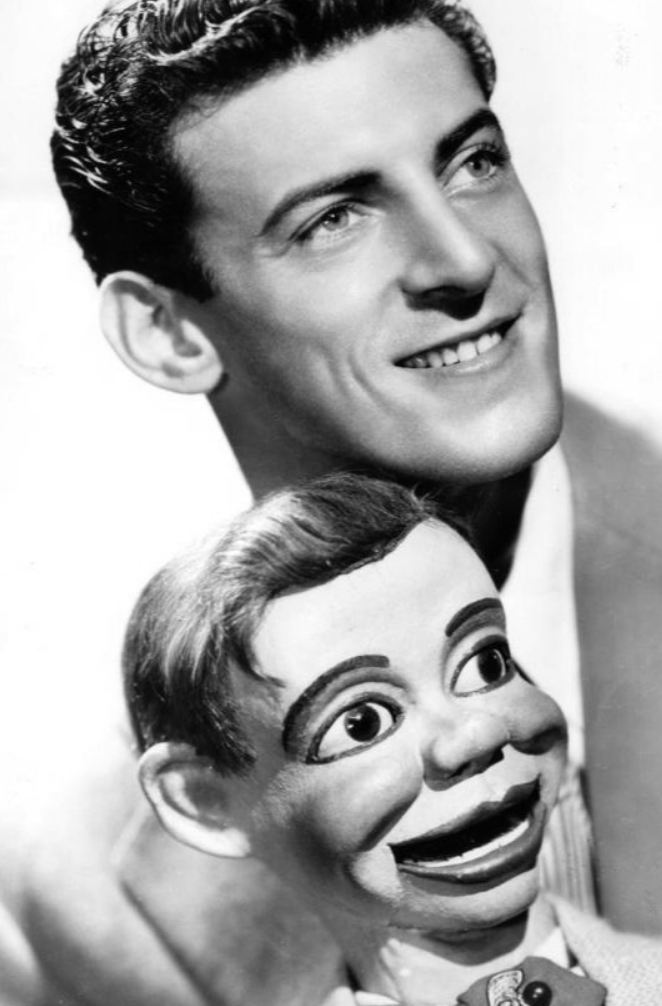
On this date in 1922, Paul Winchell (né Wilchinsky) was born to Jewish parents in New York City. He contracted polio at age 13 and became interested in ventriloquism, a field in which he showed considerable talent, appearing on popular children’s television shows “The Paul Winchell Show” (1950-54) and “Winchell-Mahoney Time” (1965-68). He was also a voice actor, most notably providing the voice of Tigger for the television show “Winnie the Pooh” (1968-99).
Winchell’s voice was also used in “The Fox and the Hound” (1981) and “The Smurfs” (1984-86) and he appeared as a guest on shows such as “The Beverly Hillbillies” (1962) and “The Brady Bunch” (1971). In 1974 he won a Grammy for best children’s recording for his voice acting in “Winnie the Pooh and Tigger Too.”
Winchell was also an inventor with 30 patents, including a prototype of the first artificial heart in 1963, which was used for research at the University of Utah. His books include Ventriloquism for Fun and Profit (1954) and his autobiography Winch (2004). He was married three times and had three children.
In 1982 he published God 2000: Religion Without the Bible, which discussed bible contradictions and disputed the existence of a biblical god. He wrote, “It is essential to understand that true freedom of Religion must include freedom from Religion.” But he also expressed deist views in his 2004 book Protect God, published the year before his death at age 82. (D. 2005)
PHOTO: Winchell with puppet Jerry Mahoney in 1951; James Kriegsmann public domain photo.
“It is my contention that no other invention of man has brought greater chaos to humanity than the practice of religion.”
— Winchell, "God 2000: Religion Without the Bible" (1982)
Marlene Dietrich
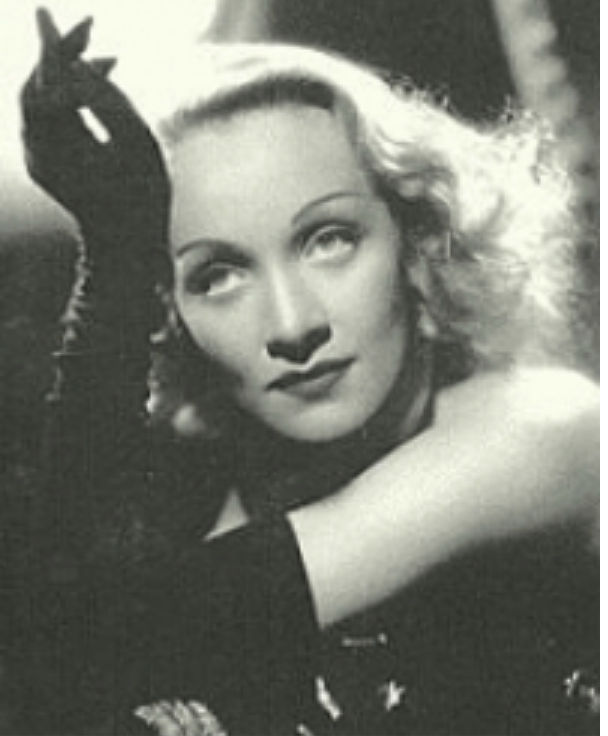
On this date in 1901, entertainer and actress Marlene Dietrich, née Maria Magdalena Dietrich, was born in Schoneberg, Germany, near Berlin. She became a cabaret singer in the 1920s, worked in silent films, then was typecast as a cabaret singer in the memorable “The Blue Angel” film (1930) directed by Josef von Sternberg. She was invited to Hollywood, where her first role was opposite Gary Cooper in “Morocco” (1930). She played a prostitute in “Shanghai Express” (1932).
For a time, she was Hollywood’s most highly paid actress, although unhappy over the casting. After several failed films, she returned to Europe to work. Dietrich became a U.S. citizen in 1937. Her comeback came in “Destry Rides Again” (1939) with Jimmy Stewart. A noted critic of Nazism, she toured in arduous conditions with the Allies during World War II and was awarded medals by the U.S. and France for her efforts. She worked in nightclubs and Las Vegas and periodically appeared in films, notably “Judgment at Nuremberg” (1961). She made over 50 movies, including silents, during her career.
Dietrich was married only once, to director Rudolf Sieber from 1923-76. She had many affairs in between, often to his knowledge. They had a daughter, Maria Elisabeth, in 1924. As of this writing in late 2019, Maria Riva was 94 and living in Los Angeles. Dietrich died of renal failure at age 90 in Paris in 1992.
© Freedom From Religion Foundation. All rights reserved.“I lost my faith during the war and can’t believe they are all up there, flying around or sitting at tables, all those I’ve lost.”
— Dietrich, quoted in "Marlene Dietrich: Life and Legend" by Steven Bach (2011)
Danny McBride
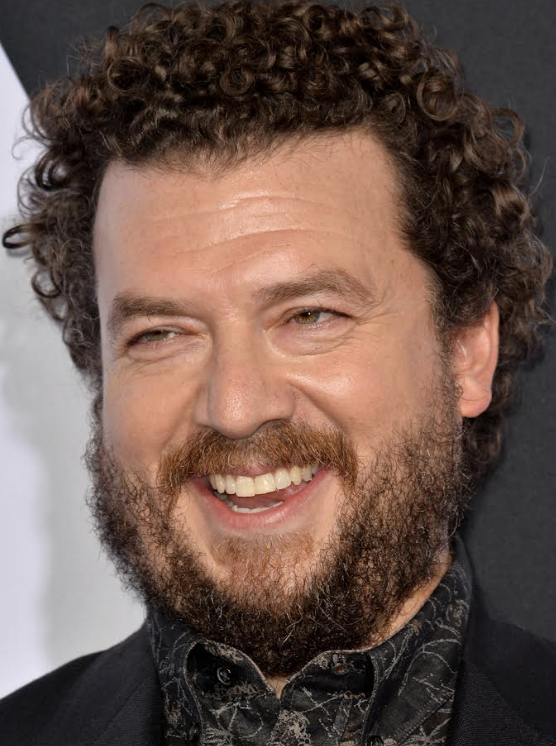
On this date in 1976, actor-writer-filmmaker Daniel Richard McBride was born in Statesboro, Ga., to Kathleen (Chaby) and Richard McBride. His father worked for the Federal Bureau of Prisons and McBride grew up in Fredericksburg, Va., before attending the University of North Carolina School of the Arts in Winston-Salem to learn the business of moviemaking.
Hollywood eventually beckoned, where his acting and writing chops soon blossomed, often in collaboration with fellow UNC film school alums Jody Hill, David Green and Ben Best. He also worked as a night manager at a Holiday Inn in Burbank. “The Foot Fist Way,” their 2006 martial arts comedy, financed on credit cards for $80,000, earned plaudits at Sundance.
His next movies were “Hot Rod” (2007), “Pineapple Express” (2008), “Tropic Thunder” (2008) and “Up in the Air” (2009). Four seasons on HBO-TV’s “Eastbound & Down” (2009-10, 2012-13) playing a washed-up major league pitcher reduced to physical education teacher brought him wide exposure as the star, executive producer, co-creator and co-writer of all 29 episodes.
His character Kenny Powers longs to return to the big leagues: “There have been many great leaders throughout history,” Kenny declaims. “Jesus was dead, but then came back as an all-powerful god-zombie.” (Rolling Stone, March 1, 2012) He was also a jack-of-all-trades on HBO’s dark comedy “Vice Principals” in 2016-17 for two seasons and 18 episodes.
“The Righteous Gemstones,” another dark comedy McBride created for HBO, premiered in 2019 and was renewed in 2022 for a third season. It follows the Gemstone family of megachurch pastors and televangelists, including McBride and John Goodman as the patriarch. Deviant behavior, murder and financial corruption abound, set amid opulent lifestyles.
“We’re not trying to comment on the bible,” McBride said. “We’re commenting on these hypocrites who are basically fronting this operation and basing all their values on these morals and these ideals but then not adhering to any of them themselves.” (Armchair Expert With Dax Shepard and Monica Padman podcast, Aug. 19, 2019)
Goodman, asked about his own religious background, said, “I would go to church with my mom and my sister, and she was Southern Baptist, so there was a lot of hollering going on. But we’d go to Vacation Bible School. A little later on, I started going Wednesday nights. And then I didn’t. (Vox, Aug. 16, 2019)
McBride’s religious animus stems from how their Baptist church tried to shame his mother after his father left the family. They divorced when he was in sixth grade. She’d had a puppet ministry for children and taught Sunday school for years. “We expected the church would help us out. Instead, it was people wanting dirt on my mom and talking about the divorce. She stopped going and was like, ‘I’ll still take you and your sister.’ For a few months, she would drop us off. Then finally, it was like, ‘What are we doing? Fuck church!’ ” (Rolling Stone, Jan. 17, 2018)
McBride married Gia Marina Ruiz in 2010 after an eight-year relationship. Cheech Marin of Cheech and Chong comedy fame is her uncle. They have a son Declan (b. 2011) and a daughter Ava (b. 2015) and as of this writing live in Charleston, S.C., where McBride’s film studio Rough House Pictures is based. They were honored in 2020 for their $45,000 donation to the Medical University of South Carolina Children’s Hospital.
PHOTO: McBride at “The Righteous Gemstones” Hollywood premiere in 2019; Paul Smith/Featureflash Photo Agency
“My family’s religious. As I got older, the church didn’t appeal to me and I went my own way.”
— Interview, Vox (Aug. 16, 2019)
